Thirteen fast food workers were arrested during a civil disobedience action in Hartford yesterday, seven of them were from Rhode Island. Here’s my story:
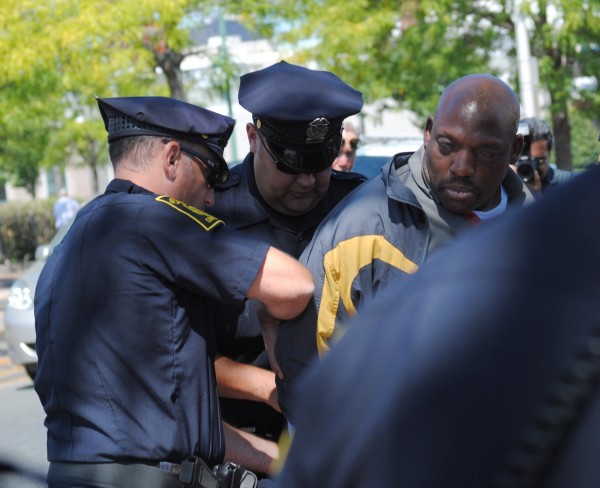
“Do you have any sharp items in your pocket?” asked the police officer.
“No,” said Charles, a forty year old black man wearing his Burger King uniform. Charles, who I had met long before he was involved with the fight to secure a living wage for fast food workers, is always polite.
“Do you have any medical issues?”
“No.”
“Okay. I’m placing you under arrest.”
Charles stood up, placed his hands behind his back and, after the plastic cuffs were fastened, was escorted to the waiting police van. With that, the Fight for a $15 minimum wage officially entered it’s civil disobedience phase.
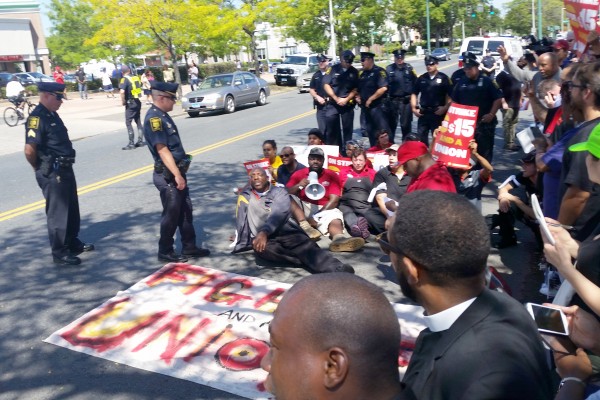 Some variation of this routine played out 12 more times around noon on Thursday in front of a McDonald’s restaurant in Hartford. More than half of those arrested were from Rhode Island. Six of the Rhode Islanders work in the same Wendy’s in Warwick. The rest were from Hartford, and at least two of them worked in the same McDonalds they were protesting.
Some variation of this routine played out 12 more times around noon on Thursday in front of a McDonald’s restaurant in Hartford. More than half of those arrested were from Rhode Island. Six of the Rhode Islanders work in the same Wendy’s in Warwick. The rest were from Hartford, and at least two of them worked in the same McDonalds they were protesting.
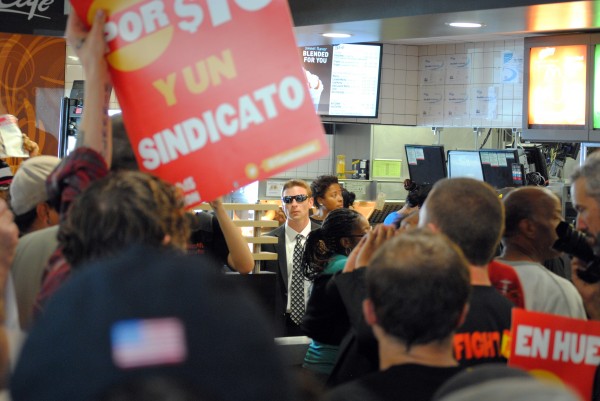 “I’ve never seen security guards at that McDonalds before,” said a worker at the discussion held after the action was over, “they were wearing black suits and sunglasses and everything.” I had to agree. They looked more like the Men in Black than mall-level rent-a-cops.
“I’ve never seen security guards at that McDonalds before,” said a worker at the discussion held after the action was over, “they were wearing black suits and sunglasses and everything.” I had to agree. They looked more like the Men in Black than mall-level rent-a-cops.
“Shows that they have money…” said someone.
“…and they don’t know how to spend it,” laughed another.
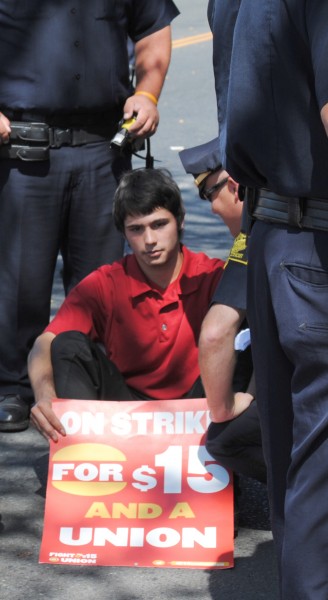 McDonalds left the actual arresting of the protesters to the Hartford cops, not private security. One by one the thirteen fast food workers were loaded into a hot and stuffy police van. Despite not having any medical issues of which he was aware, Stacey, a twenty something black man and Providence native in a Wendys uniform, started having a seizure. By the time the police van arrived at the makeshift booking site a couple blocks away, Stacey needed an ambulance, and was taken to the hospital.
McDonalds left the actual arresting of the protesters to the Hartford cops, not private security. One by one the thirteen fast food workers were loaded into a hot and stuffy police van. Despite not having any medical issues of which he was aware, Stacey, a twenty something black man and Providence native in a Wendys uniform, started having a seizure. By the time the police van arrived at the makeshift booking site a couple blocks away, Stacey needed an ambulance, and was taken to the hospital.
—
The Fight for a $15 minimum wage has been slowly gaining traction and scoring significant victories over the last year. Seattle recently passed a $15 minimum wage and San Francisco and Chicago may soon follow. The National Labor Relations Board (NLRB) ruled that the McDonalds Corporation is a “joint employer” with its franchisees, making the restaurant corporation responsible for “illegally firing, threatening or otherwise penalizing workers for their pro-labor activities,” according to the New York Times, a decision that may make unionizing fast food workers easier.
Not bad for a nascent movement that has so far relied on one day strikes and picket lines to get its message across, but corporate interests are starting to hit back. The deep-pocketed McDonalds Corporation, a longtime opponent of unions, claims the NLRB ruling goes against “decades of established law” and is expected to appeal the ruling all the way to the Supreme Court, if need be. Meanwhile, several states, including Oklahoma and Rhode Island, have passed measures preventing cities from setting their own minimum wage ordinances.
Recognizing that the battleground is shifting, the largest gathering of fast food workers to date met outside Chicago in late July, and unanimously decided “to conduct a wave of civil disobedience actions.” Sponsored by the Service Employees International Union (SEIU), the driving theme of the meeting was that the Fight for $15 was the latest in a long line of civil rights battles that prioritized economic justice. Representative Keith Ellison, (D-MN), no stranger to civil rights battles as the first Muslim American in Congress, explicitly spelled this out when he said to the crowd, “What you are doing right now is the most important workers’ movement in America today.”

“‘We talked a lot about civil disobedience,’ Samuel Velez, a McDonalds employee from Hartford, said. “What we’re doing; fighting for our rights is really important. It was very good that a whole bunch of workers came together as one and spoke about what we’re going to do next, and that we got feedback about how we’re doing.’”
—-
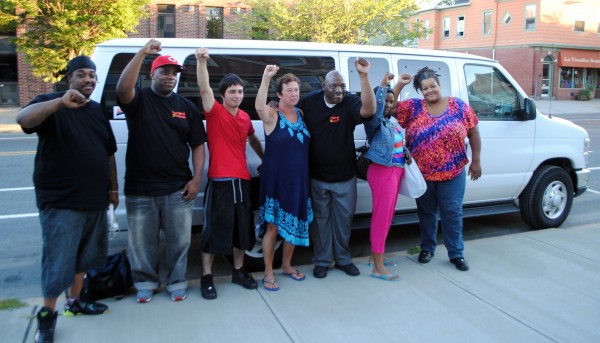
The drive from Providence to Hartford is nearly silent. There are seven fast food workers in the rental van with me and the mood is contemplative. In addition to Charles and Stacey, I’m driving with Jo Ann, Staria, Reggie, Kenya and Corey.
“Everybody’s so quiet,” says Jo Ann, a Wendys worker.
“Maybe people are nervous about being arrested,” I suggest. I also suspect that the group is being less boisterous in the presence of media.
“Maybe,” says Jo Ann, “but most of us just finished a full day of work and we’re just tired.”
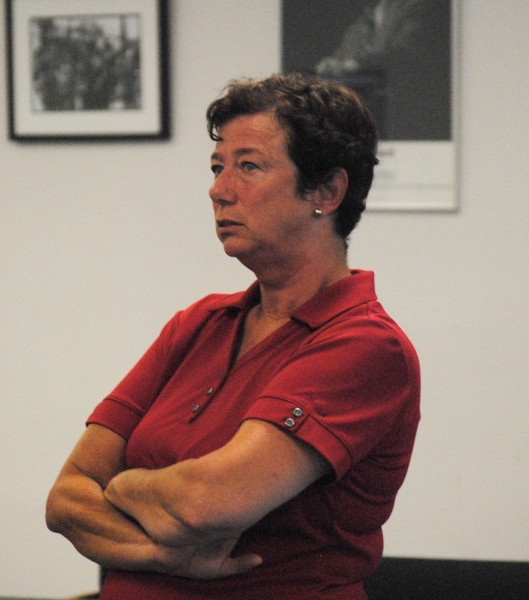
Jo Ann has the heart of an activist, and she’s a natural leader. She became involved in this effort because at her job, everyone received a ten cents per hour raise, “whether they deserved it or not. Good worker or bad, you got ten cents. It wasn’t fair, and it meant hard work was meaningless.” Then, shortly after the raise, and adding injury to insult, the employees all had their hours cut by a third. Jo Ann went from just over thirty hours a week to just over twenty. The cut in hours obliterated the paltry pay increase.
Unhappy with the treatment she and her fellow fast food workers were receiving Jo Ann went online and started to look up her rights as a fast food employee living in Rhode Island. She quickly learned that the laws in Rhode Island had almost nothing to say about her right to be treated fairly by her employer. At this point she began searching the internet for alternatives. This is how she discovered the nascent Fight for $15 movement and the SEIU. It wasn’t long before Jo Ann was talking about fair treatment and fair pay to her co-workers, and not long after that she found herself walking the picket line.
Early on, Jo Ann could have left her job at Wendys. “I was looking around, and found a job as a manager at a McDonald’s. I was offered the job over the phone, but I turned it down, because even though it meant more pay and more hours, I would have been leaving behind all the friends I had made at my Wendys.”

Jo Ann likes her job. She likes meeting people, likes her co-workers and likes serving food to hungry customers, but she isn’t being paid enough to live on, and as tough as the low pay is for her, it can be much worse for her co-workers. Jo Ann stays because she feels a sense of responsibility to her co-workers, and its obvious that her co-workers think a lot of her. “How could anyone not like Jo Ann,” says Staria, a young black woman and co-worker, “she’s like the nicest person ever.”
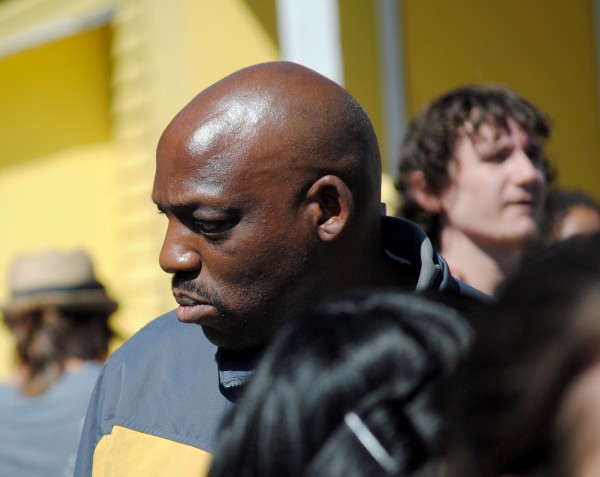
Charles often has to decide between buying medicine or paying his rent. This despite the fact that Charles has a job, albeit one that doesn’t pay him enough to live on. “I’ve been working at Burger King for ten years, and I’m still making minimum,” says Charles. Meanwhile, some of the managers, claims Charles, make $25 an hour plus benefits. Charles is one of the nicest people you could meet. I ask him if he’s nervous about being arrested. He’s not.
“When it happens it happens,” says Charles.
—
The fast food workers will get some training in nonviolence and civil disobedience before the first action, scheduled for 10:30 at a nearby Burger King. They will learn how to be arrested in a way that will prevent them from getting hurt or incurring charges of resisting arrest as they are (hopefully) booked and released. During their training the workers will be encouraged to express themselves freely, without fear of judgement.
“I’ve been getting arrested every month since 1972,” jokes Steve, who will be training the workers on how to get arrested. When asked about the cops, Steve is reassuring, “These guys here in Hartford are very cool. They have a lot of experience and they don’t mess with us.”
Ben, the SEIU organizer running the action in Hartford, doesn’t want me at the training, because the workers should be free to express their concerns with some measure of privacy. I’m cool with that, but I also get the impression that he doesn’t trust the press. “We’ve been attacked from the left,” says Ben, confirming my hunch. I don’t argue for access, I’m sure I’ll have plenty to write about.
Appearing at the Comfort Inn breakfast buffet, where the Providence contingent is gathered, Ben enthuses, “Today is going to be fucking awesome!” He has just heard from his people in Rhode Island that a strike notice has been delivered through the drive thru window of the Warwick Wendys to the manager on duty. Upon hearing what that it was a strike notice, the manager reportedly refused to touch the paper. Pretty much the entire lunch crew is in Hartford, leaving Wendys in Warwick with no workers for the afternoon.
The two most important things these workers need for today’s actions are their uniforms, which will instantly mark them as fast food workers, and their identification cards, to make it easier for the police to process them after their arrest.
Getting arrested is the plan. One day strikes have had the impact they’re going to have, and it’s time to take the Fight for $15 to the next level, goes the logic. There’s no reason for the police to be angry or agitated. This should be a simple book and release, but of course the ongoing scandal of Ferguson is all over the news, and good number of the fast food workers involved in these actions are people of color.
“The majority of people in Hartford are black or Puerto Rican,” says Steve, explaining that the cops are wary of coming off like Ferguson. Hartford has its own police brutality controversy currently making its way through the courts in the tasering of teenager Luis Anglero. Police across the country know that the world will be watching them during these civil disobedience actions. There are reportedly 150 cities involved today and it will be covered by all the news channels, so the cops will be on their best behavior.
As if to confirm the attention being focused on today’s actions, the Today Show runs a short piece as the workers make there way to their training.
—
 At 10am about thirty fast food workers and supporters march inside the Burger King next door to the Comfort Inn, chanting and waving signs. The manager on duty says, “if you come in here I’m calling the police,” but she is ignored. The protesters ask the staff of the restaurant to join them in their chants, but none do. Mostly they look nervous as they try to fill customer orders.
At 10am about thirty fast food workers and supporters march inside the Burger King next door to the Comfort Inn, chanting and waving signs. The manager on duty says, “if you come in here I’m calling the police,” but she is ignored. The protesters ask the staff of the restaurant to join them in their chants, but none do. Mostly they look nervous as they try to fill customer orders.
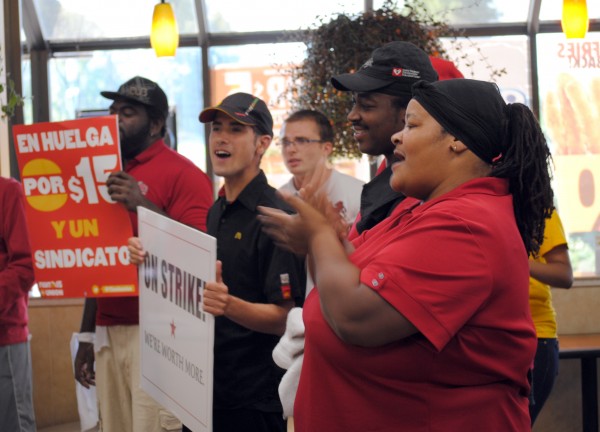 A few customers evidence annoyance at the protest, but most seemed pleased by the show. At least one customer joined in with the chants. The protesters quieted only long enough to catch the tail end of a CNN report about today’s planned civil disobedience actions. There was laughter at this. The protesters exited the restaurant chanting, “We’ll be back!” As the vans pulled out of the Burger King parking lot, the police arrived.
A few customers evidence annoyance at the protest, but most seemed pleased by the show. At least one customer joined in with the chants. The protesters quieted only long enough to catch the tail end of a CNN report about today’s planned civil disobedience actions. There was laughter at this. The protesters exited the restaurant chanting, “We’ll be back!” As the vans pulled out of the Burger King parking lot, the police arrived.
 Unlike the contemplative ride from Providence the night before, the atmosphere in the van as we traveled from the Burger King near the hotel to the McDonalds in Hartford was electric. The first taste of protest had energized the group and they were ready for more. I found out that Jo Ann had attended the big meeting in Chicago where fast food workers had decided to engage in civil disobedience. Today’s actions are the first since she helped to decide on the direction this cause is going to take in the future. Staria is sorry to have missed the Chicago meet. She enjoys the unity and community this drive for fair wages has provided her..
Unlike the contemplative ride from Providence the night before, the atmosphere in the van as we traveled from the Burger King near the hotel to the McDonalds in Hartford was electric. The first taste of protest had energized the group and they were ready for more. I found out that Jo Ann had attended the big meeting in Chicago where fast food workers had decided to engage in civil disobedience. Today’s actions are the first since she helped to decide on the direction this cause is going to take in the future. Staria is sorry to have missed the Chicago meet. She enjoys the unity and community this drive for fair wages has provided her..
—
 As we pulled into the parking lot that would serve as the staging area for the march to the McDonalds, everyone noticed that the cops were already out in force. Across the street were about seven cops, huddled together in conversation. More joined them. Local community leaders, labor leaders and labor friendly politicians had announced the fast food workers’ intentions to the police, and the cops were there to direct traffic ahead of the march.
As we pulled into the parking lot that would serve as the staging area for the march to the McDonalds, everyone noticed that the cops were already out in force. Across the street were about seven cops, huddled together in conversation. More joined them. Local community leaders, labor leaders and labor friendly politicians had announced the fast food workers’ intentions to the police, and the cops were there to direct traffic ahead of the march.
Speeches were given and there were rallying cries for solidarity. The best speeches, as usual, came from the workers themselves.
“I’m fighting for 15 for my son but not only for my son but for everyone else who is scared to come out and fight with us,” said Samuel Velez to the crowd.
Salvador Lopez spoke of being fired for his unionization efforts, and getting his job back with the help of union representatives. Both Samuel and Salvador work at the McDonalds they are planning to protest.
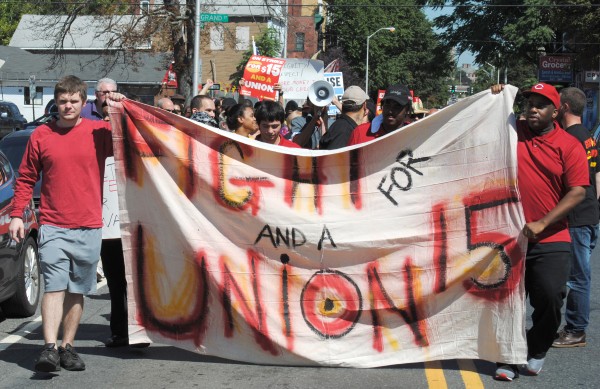 I followed the quarter mile march and was pleased to see the positive reaction from many on the street. Many people joined the march, including a young mother pushing a baby stroller. There were drummers and chants lead by the Reverend A.J. Johnson, who seemed to be giving a crash course in how to energize a crowd. The man was tireless and his energy was infectious.
I followed the quarter mile march and was pleased to see the positive reaction from many on the street. Many people joined the march, including a young mother pushing a baby stroller. There were drummers and chants lead by the Reverend A.J. Johnson, who seemed to be giving a crash course in how to energize a crowd. The man was tireless and his energy was infectious.
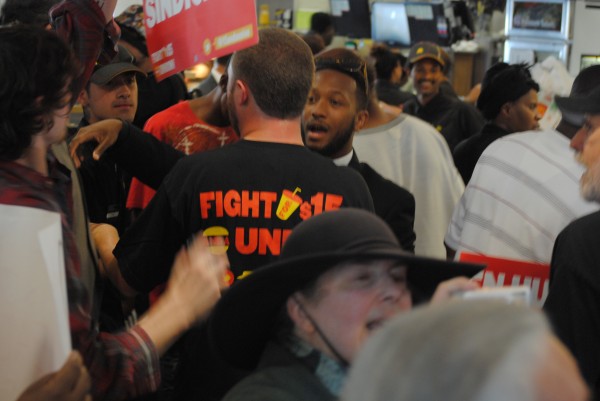 When we arrived at the McDonalds, the chanting crowd pushed its way into the restaurant, taking over the space for a good amount of time before moving outside, marching around the building and finally stopping at the front of the store, where the thirteen brave volunteers sat down to be arrested in an act of civil disobedience.
When we arrived at the McDonalds, the chanting crowd pushed its way into the restaurant, taking over the space for a good amount of time before moving outside, marching around the building and finally stopping at the front of the store, where the thirteen brave volunteers sat down to be arrested in an act of civil disobedience.
The officer in charge listened to the chanting crowd, and then asked the seated protesters to get out of the street. Politely, the protesters refused. The crowd cheered the arrestees on in various call and respond chants. Twice more the officer in charge asked the volunteer arrestees to get out of the street. Twice more they refused.
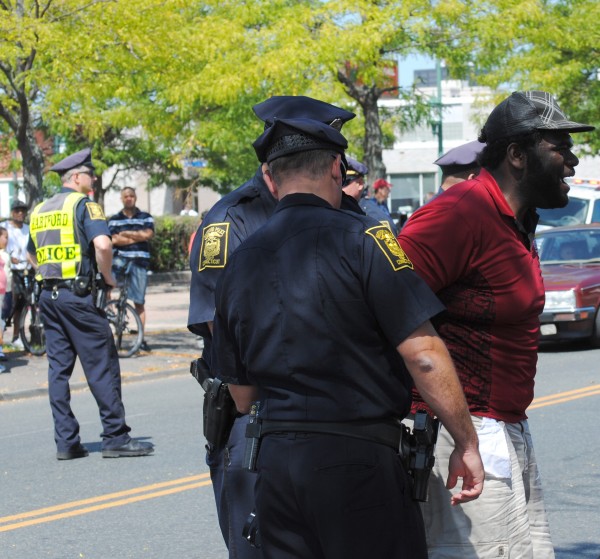 Calmly, one by one, the thirteen protesters were told that they were under arrest, asked to stand, and taken to the waiting police van. When the van was full the last three of the thirteen were taken away by police cars. The action over, the crowd dispersed.
Calmly, one by one, the thirteen protesters were told that they were under arrest, asked to stand, and taken to the waiting police van. When the van was full the last three of the thirteen were taken away by police cars. The action over, the crowd dispersed.
I went to the staging area a few blocks away where the police were booking and releasing the protesters. Most of them were already free, a few were still receiving their tickets for “disorderly conduct.” It was when I got there that I learned about Stacey, and that he had suffered a seizure in the police van. Kenya had accompanied him to the hospital.

I learned later that Stacey was suffering from dehydration. The entire event had been outside in the hot sun, and in truth none of us had taken the time to eat much of anything since breakfast. Being locked inside the hot and stuffy police van was enough to send Stacey over the edge, but ultimately he was fine and the hospital released him that afternoon.
—
In the aftermath of the day’s events, the workers and the organizers gathered to review their efforts. On the TV, Fox News reads a statement from the National Restaurant Association, (the other NRA) which declares that the nationwide protests are “a national, multi-million dollar campaign engineered, organized and funded by national labor groups. The activities have proven to be orchestrated union PR events where the vast majority of participants are activists and paid demonstrators.”
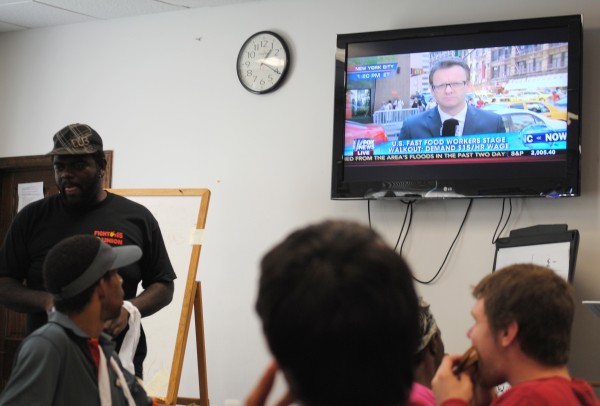 There were certainly allies and organizers at the events Hartford, but the majority were clearly fast food workers. I look at Jo Ann, who found this movement on the Internet while working at a tiny fast food joint in Warwick, Rhode Island. She isn’t a paid activist, she’s someone committed to fighting for fair wages and a decent working environment for everyone. To everyone in the room, the NRA statement is obvious baloney.
There were certainly allies and organizers at the events Hartford, but the majority were clearly fast food workers. I look at Jo Ann, who found this movement on the Internet while working at a tiny fast food joint in Warwick, Rhode Island. She isn’t a paid activist, she’s someone committed to fighting for fair wages and a decent working environment for everyone. To everyone in the room, the NRA statement is obvious baloney.
The workers, those who were arrested and those who cheered them on, enjoyed the air conditioning and the pizza as they listened to reports coming in from bigger actions in Chicago and Detroit. Over 100 protesters were arrested in Detroit. Rumor has it that the police ran out of handcuffs.
This was a big action, and the publicity and the exposure, plus the positive experiences of the participants, has everyone eager to do more. Future actions are being planned, and the contingent from Rhode Island is eager to be involved. They don’t want to just fight for $15, they want to win it.
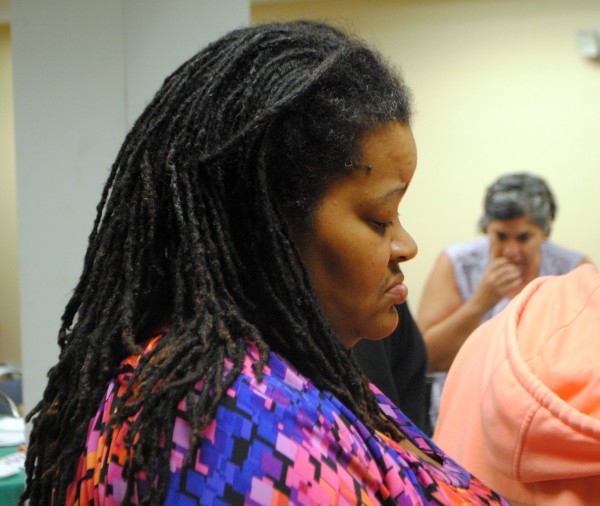
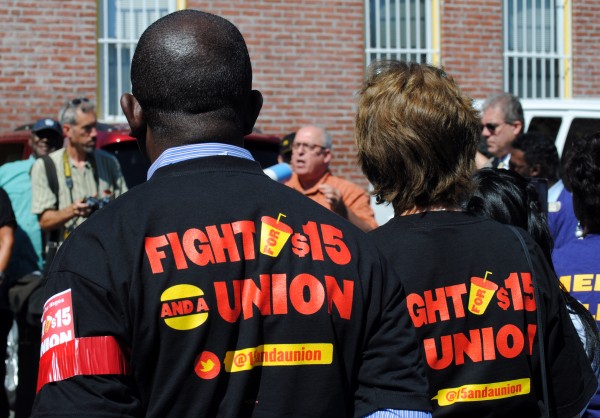
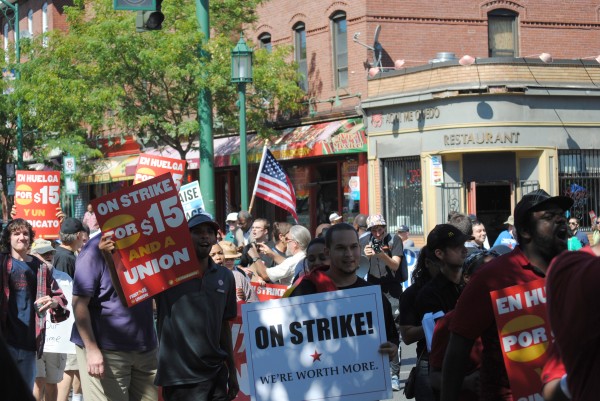
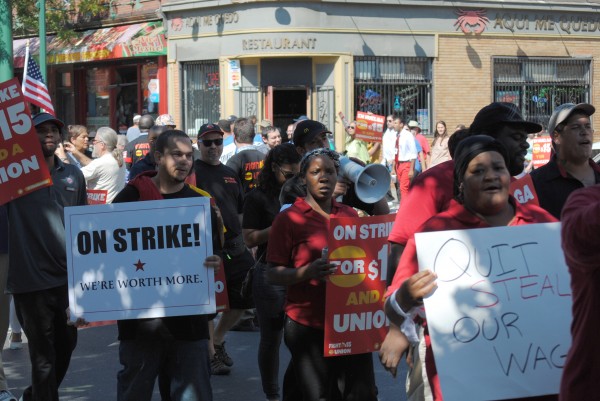
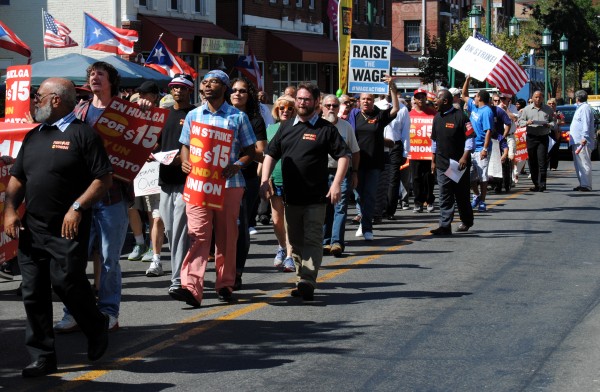
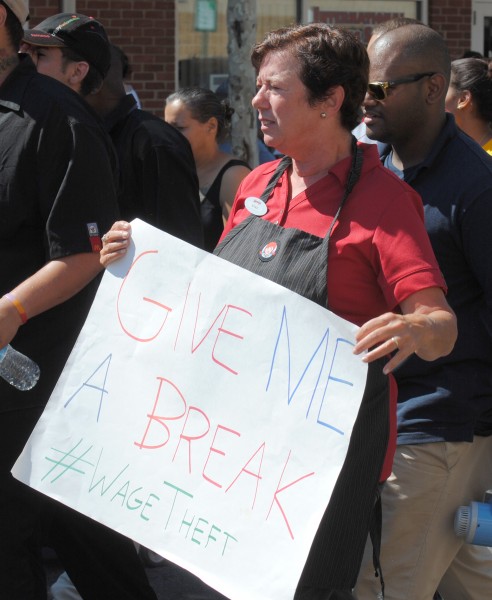
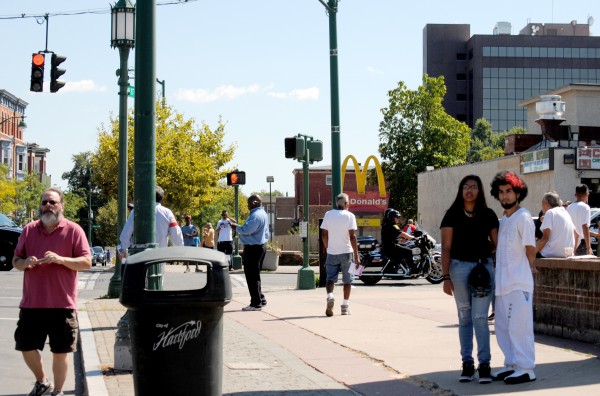
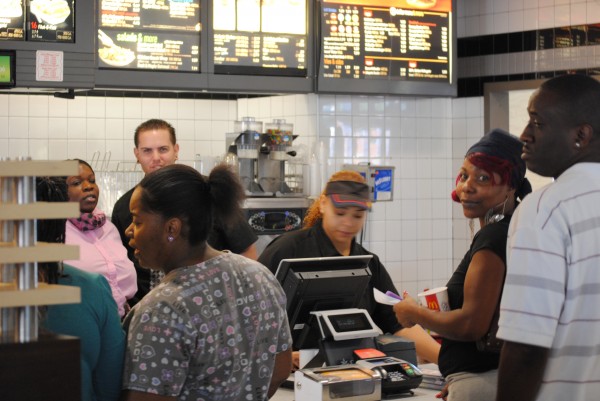
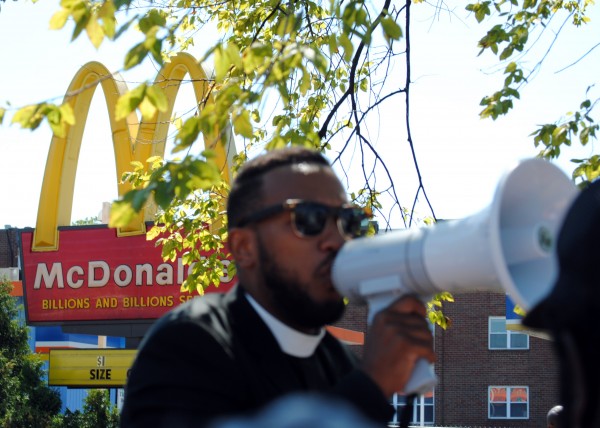
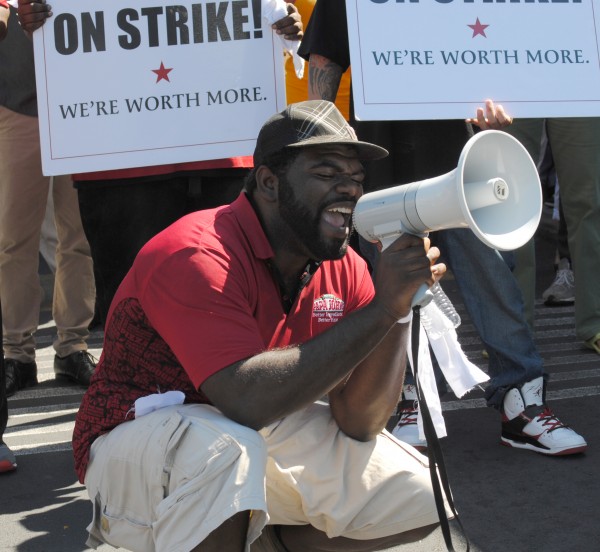
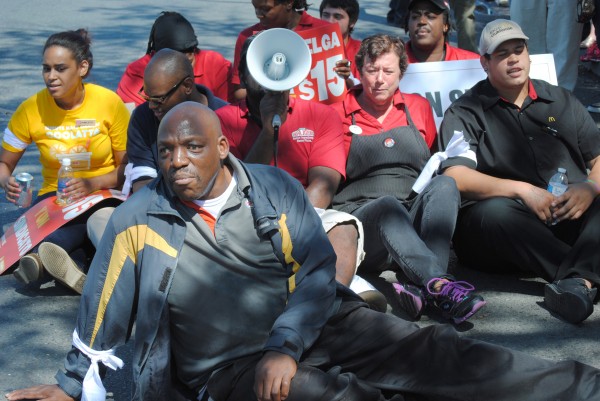
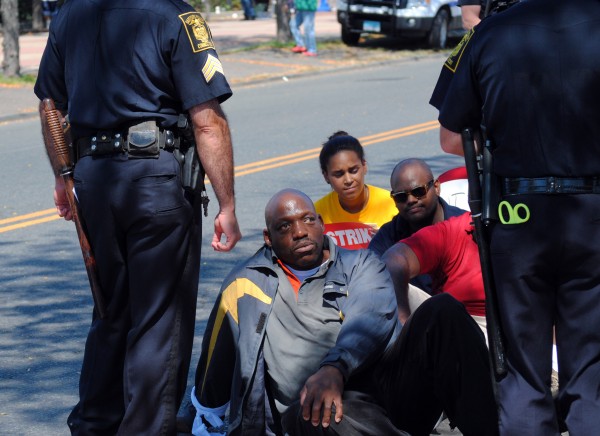
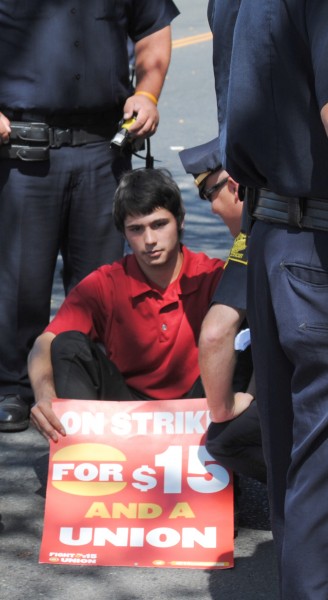

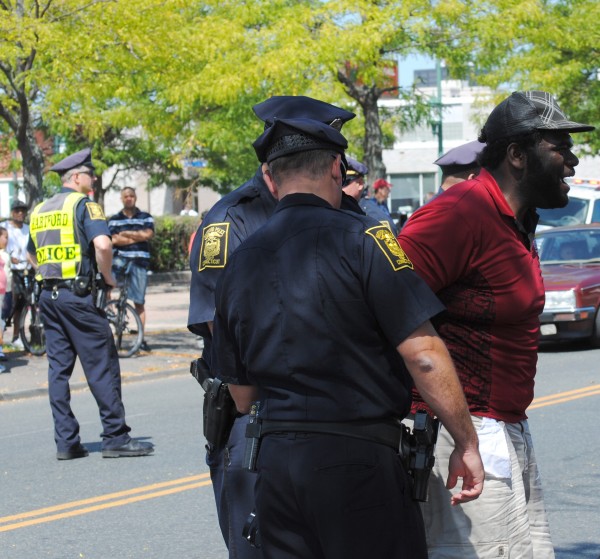
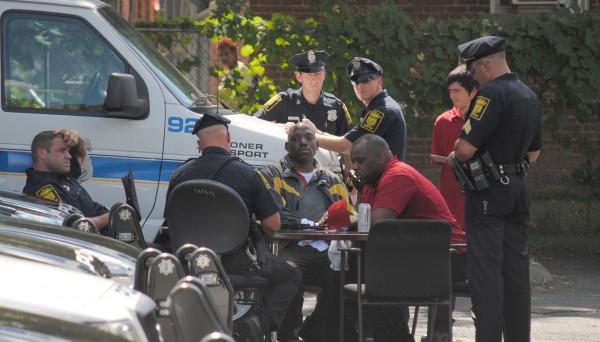
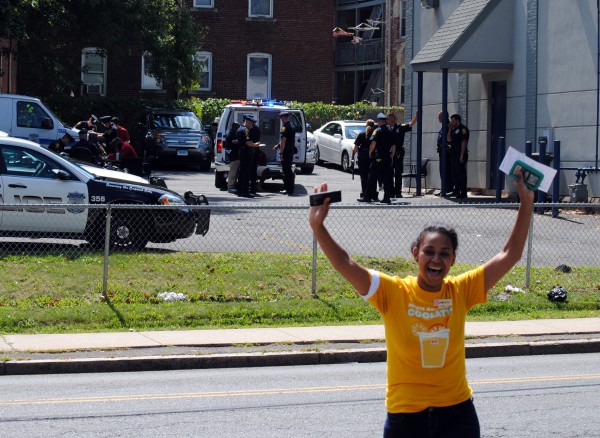
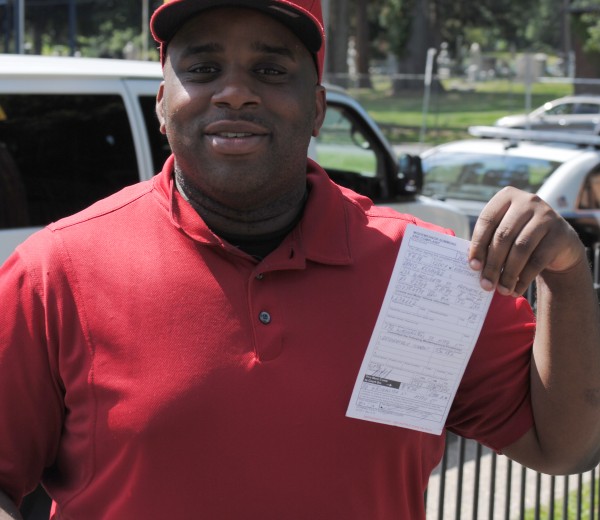
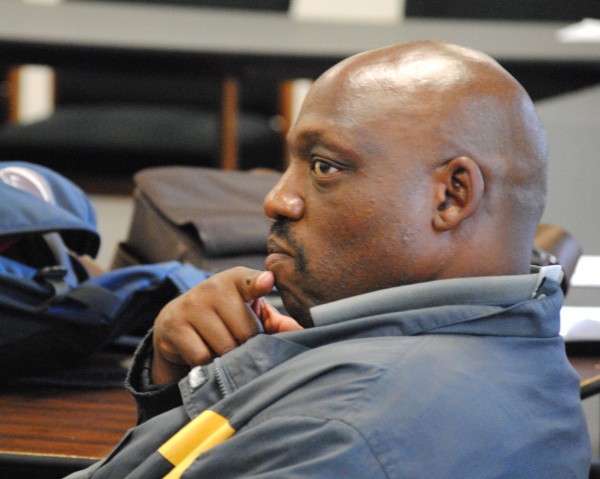

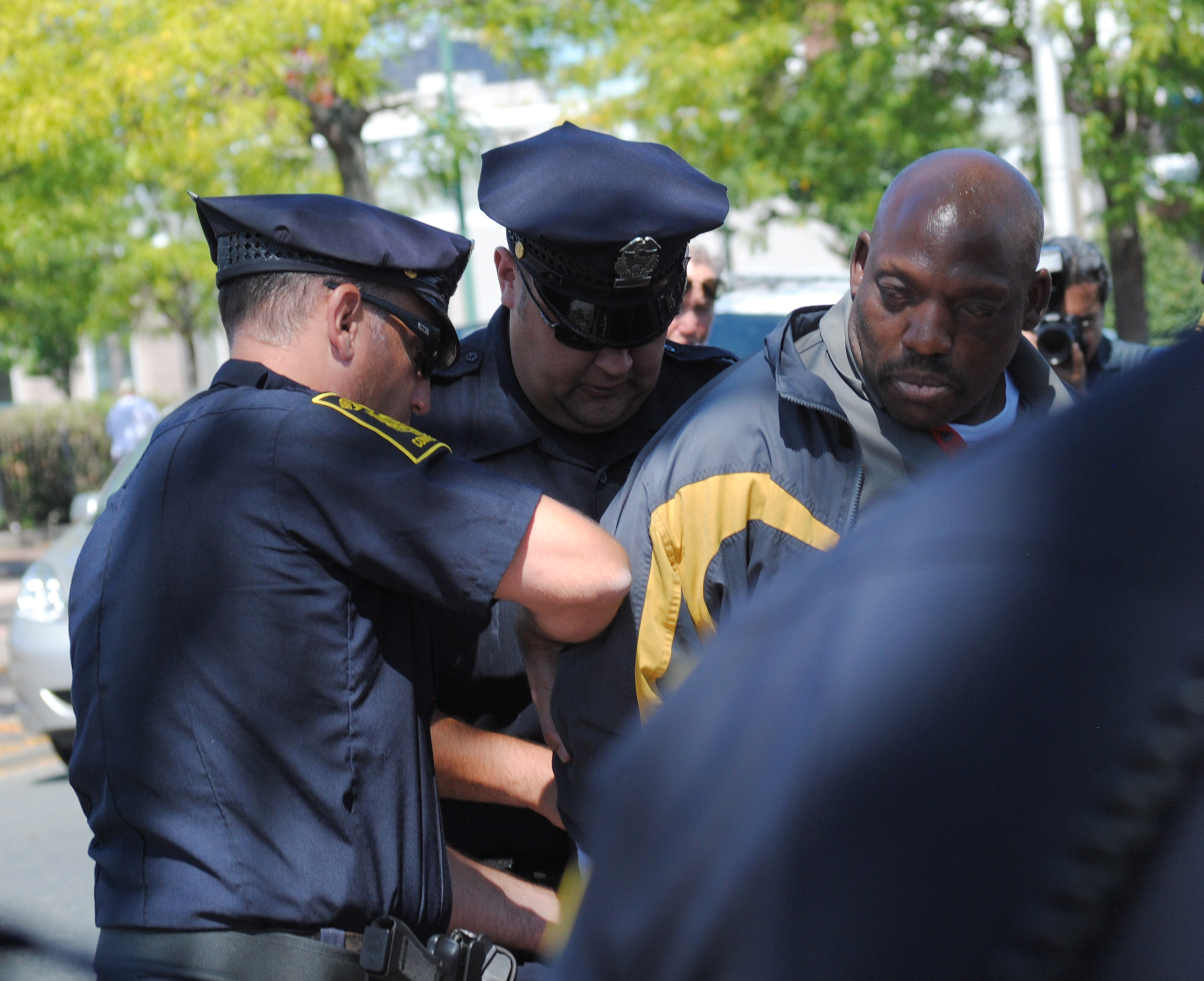
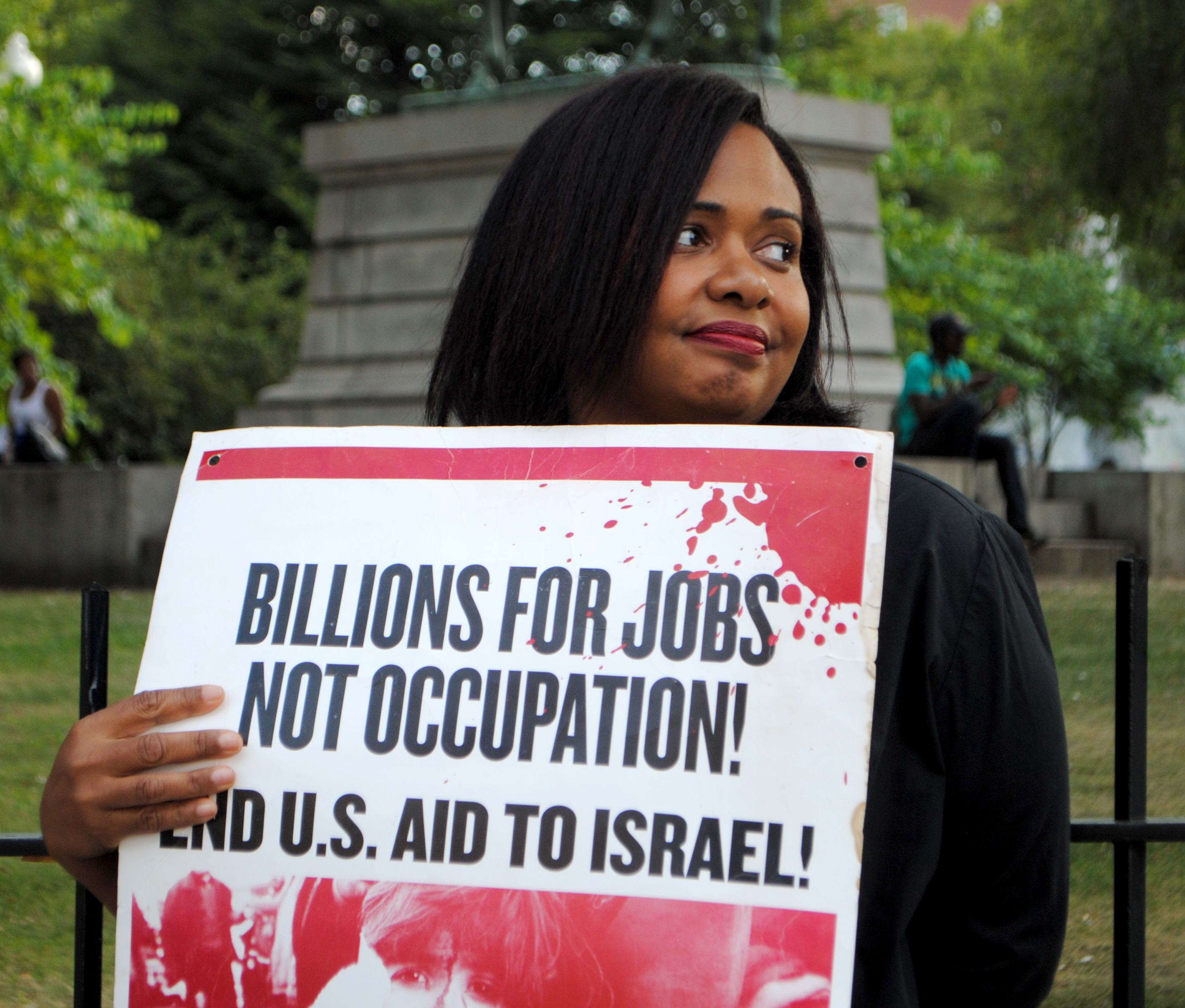
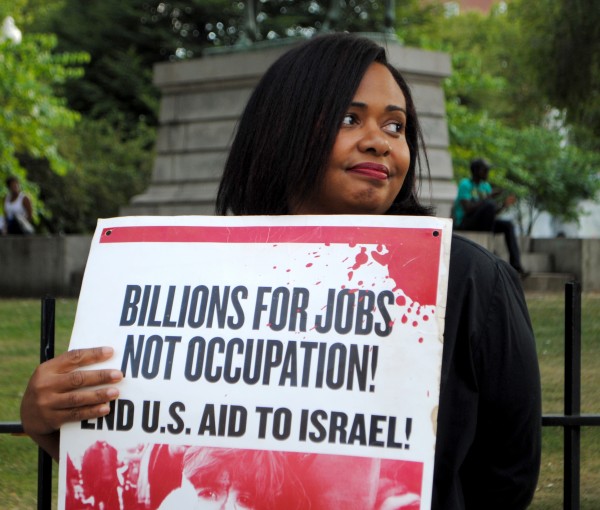 Since no one interested in social, economic or environmental justice was getting anywhere near the mansion in Newport where President Obama is attending a
Since no one interested in social, economic or environmental justice was getting anywhere near the mansion in Newport where President Obama is attending a 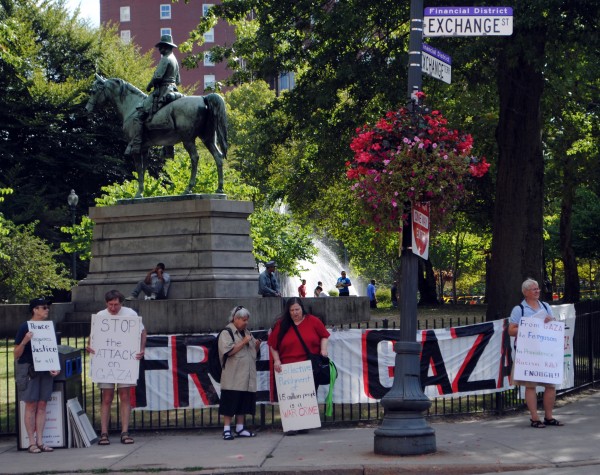
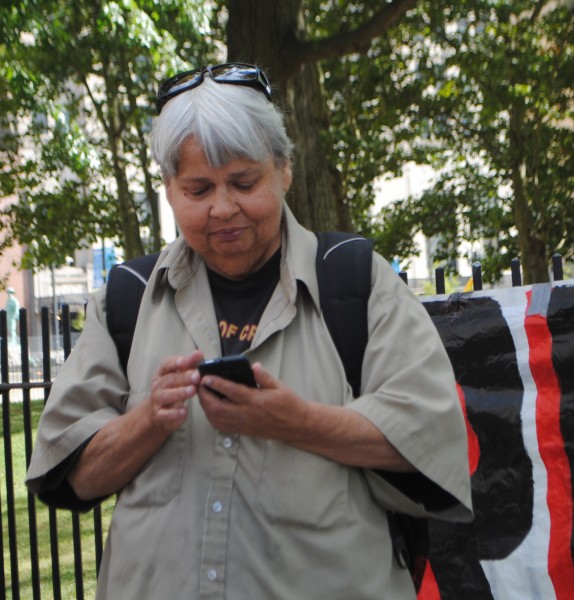
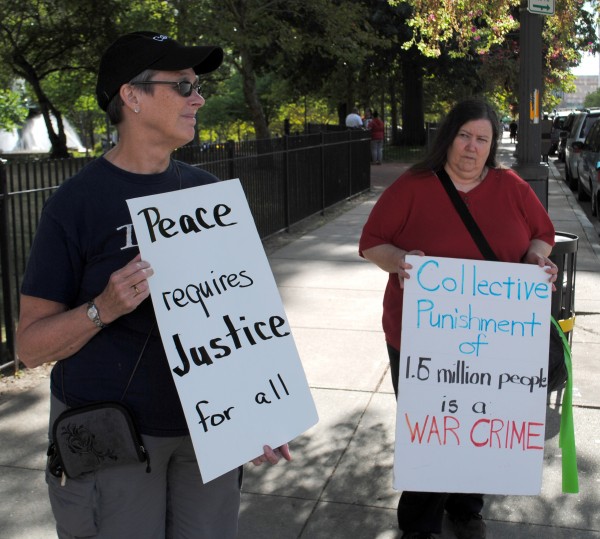


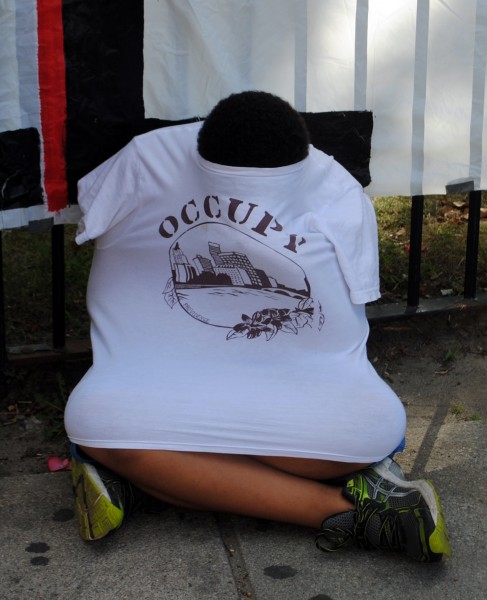


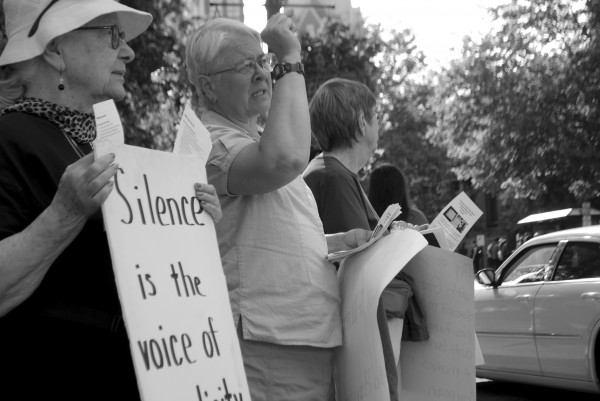
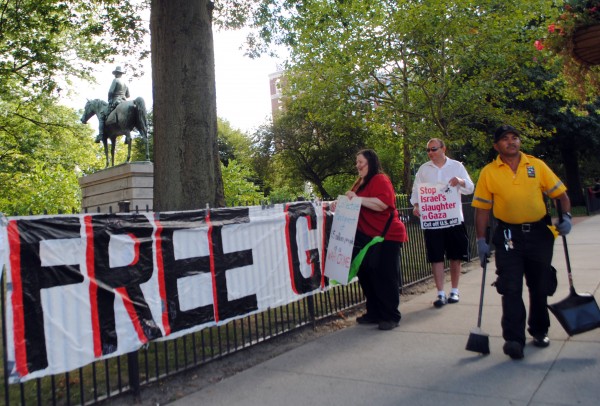

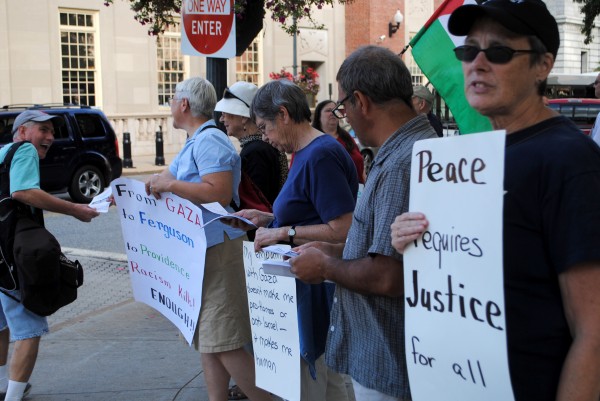

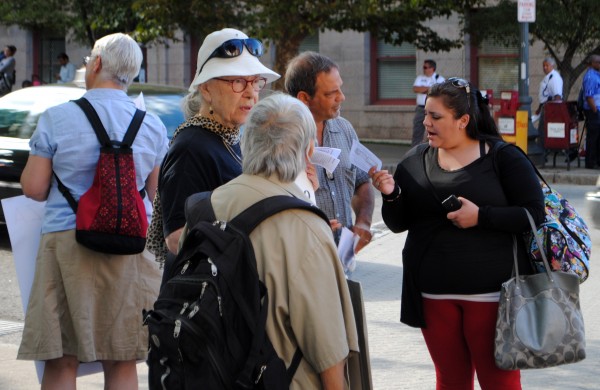
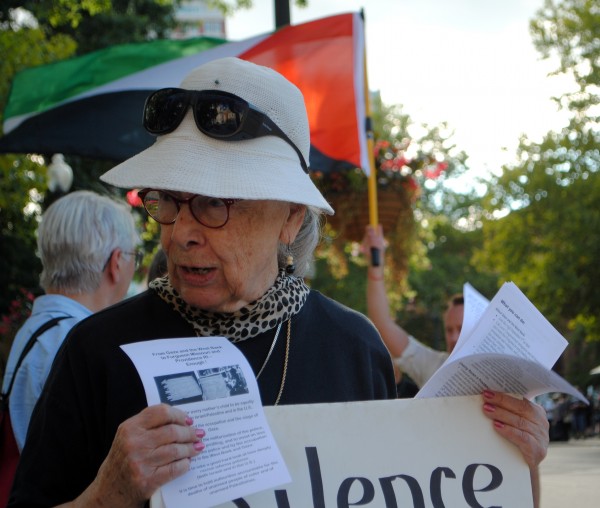
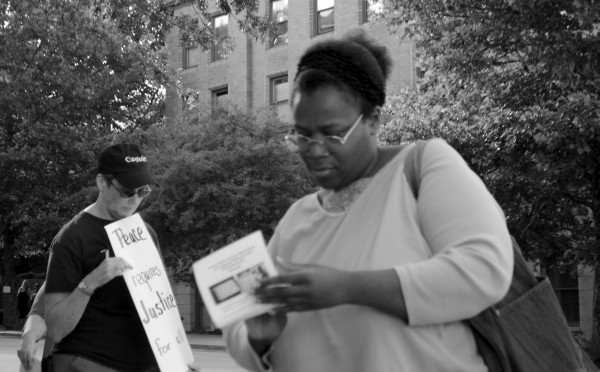
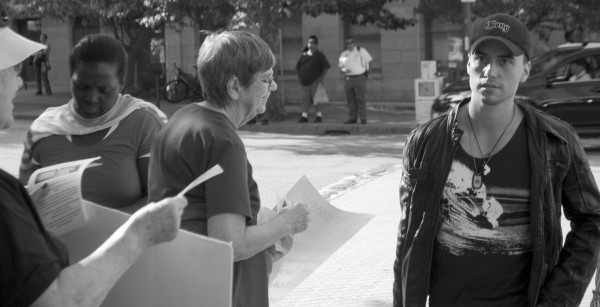
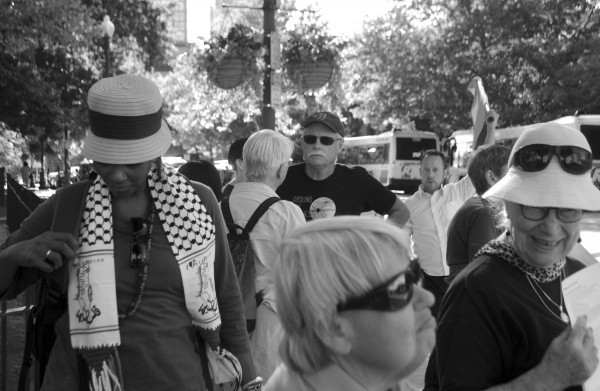











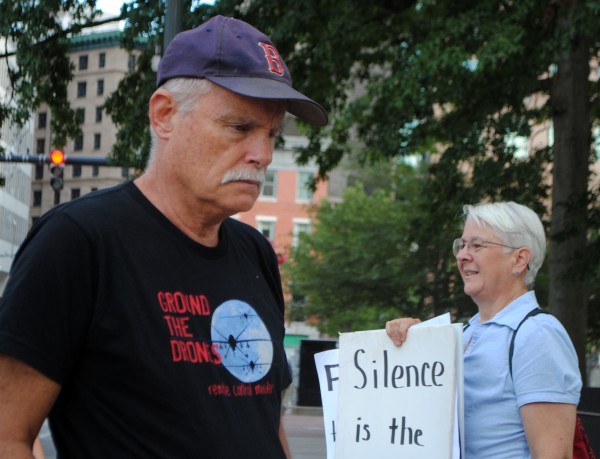


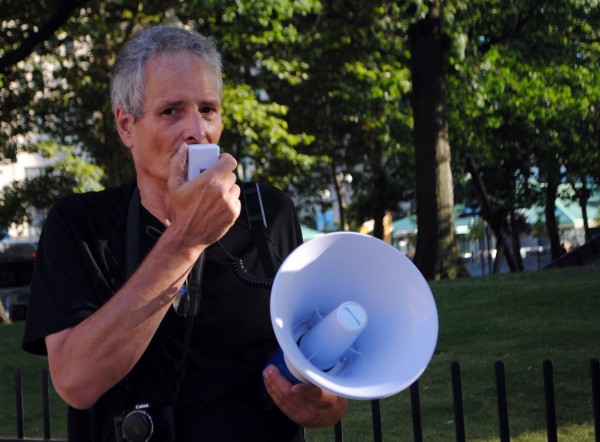
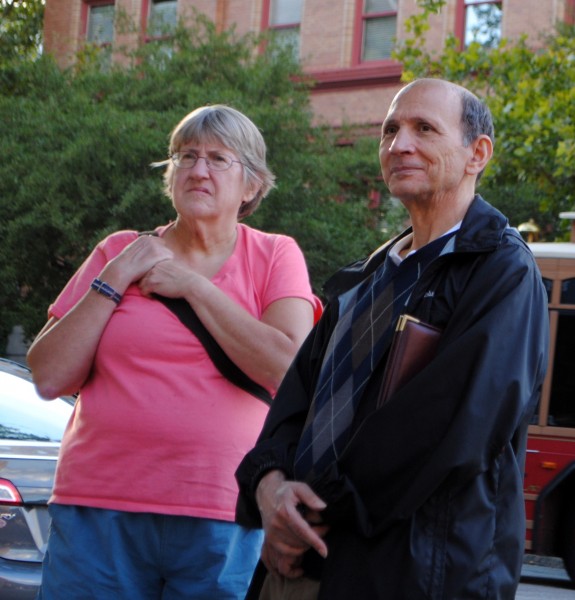

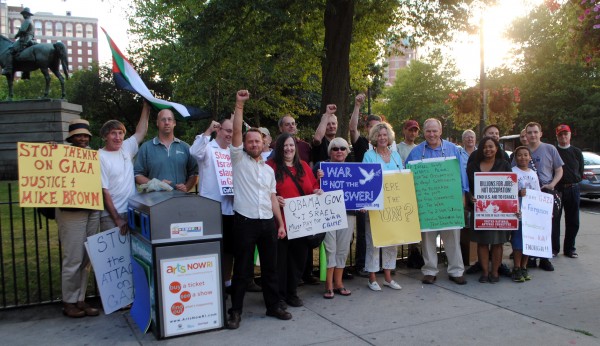
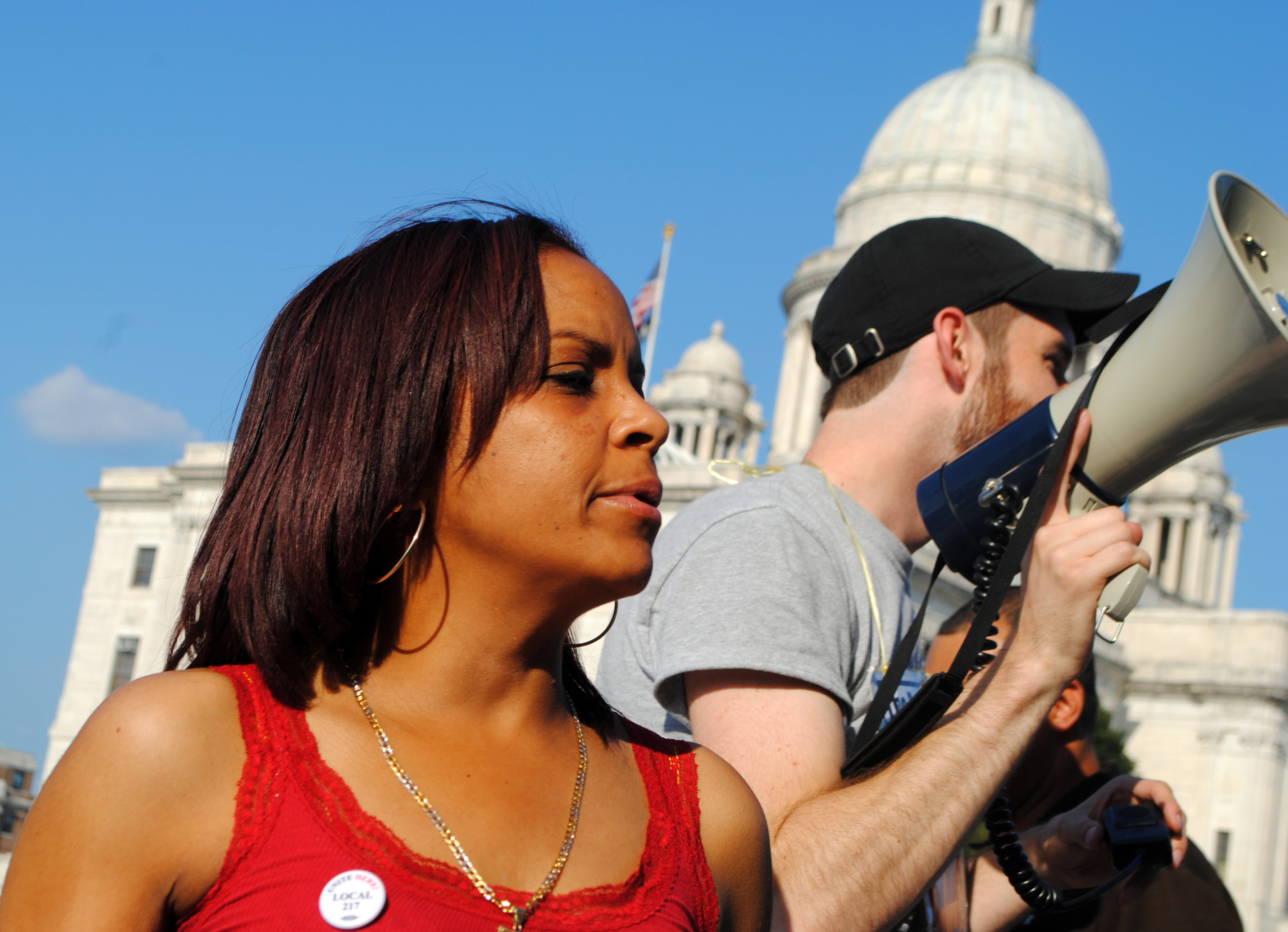
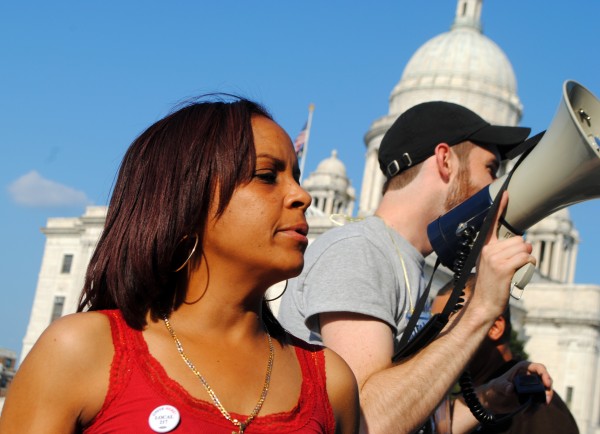
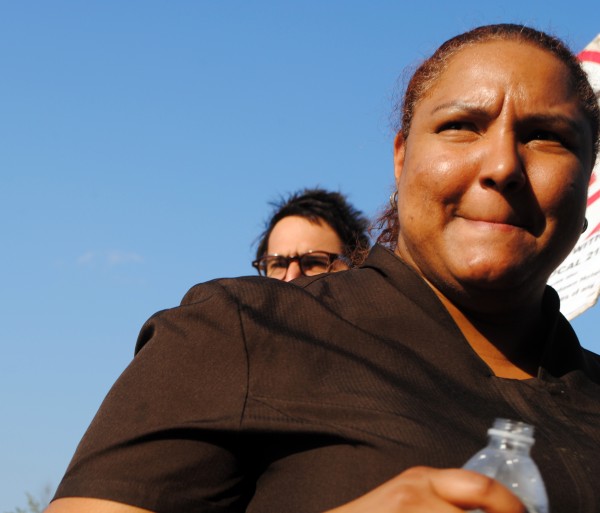
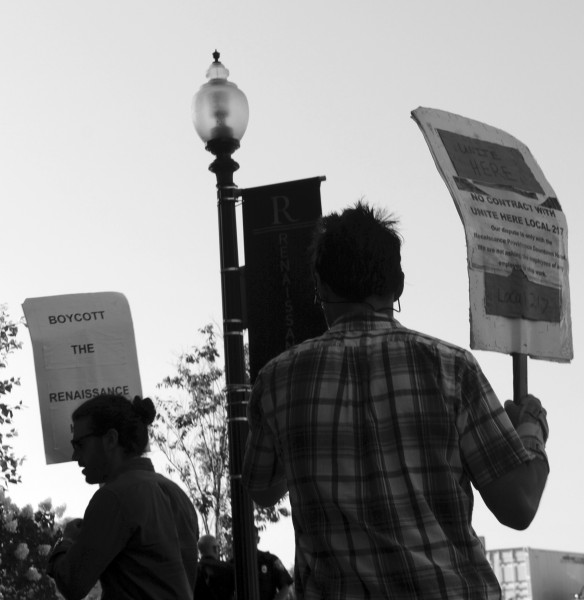
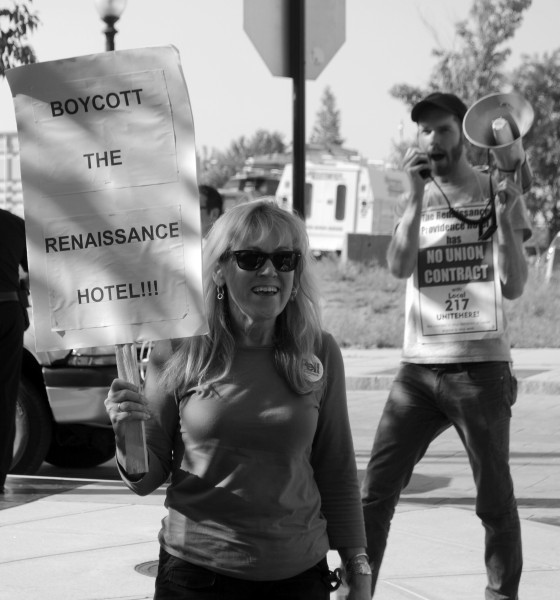
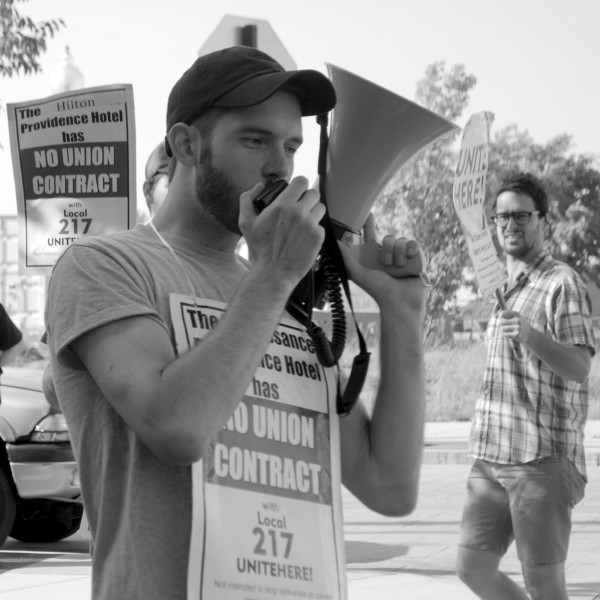
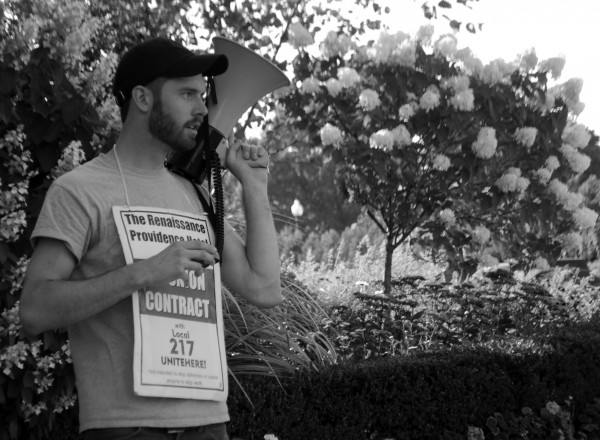
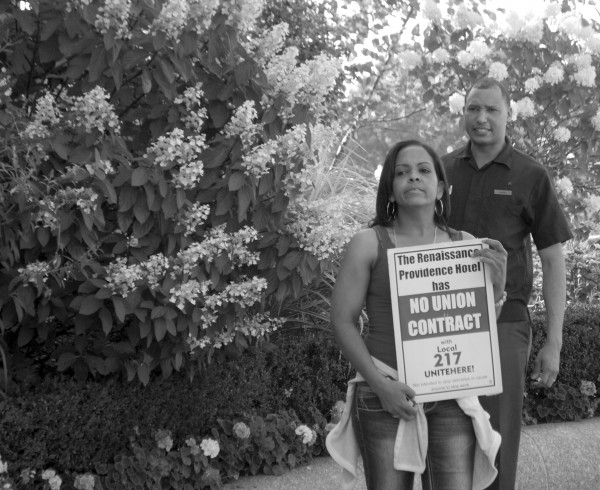
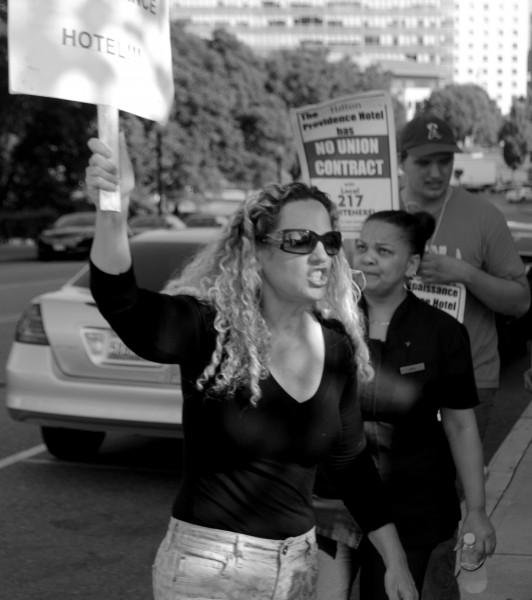
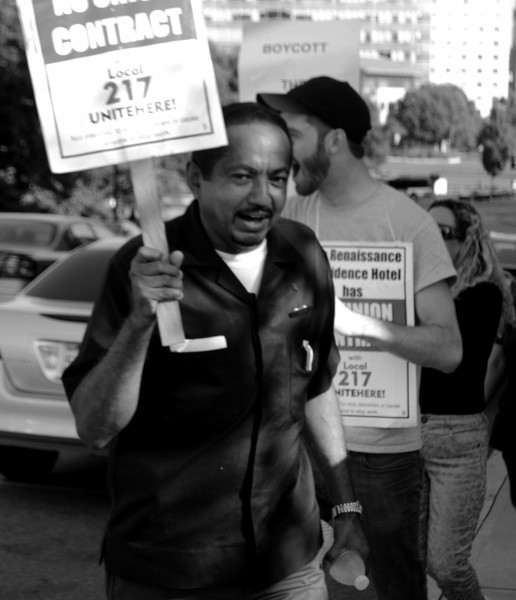
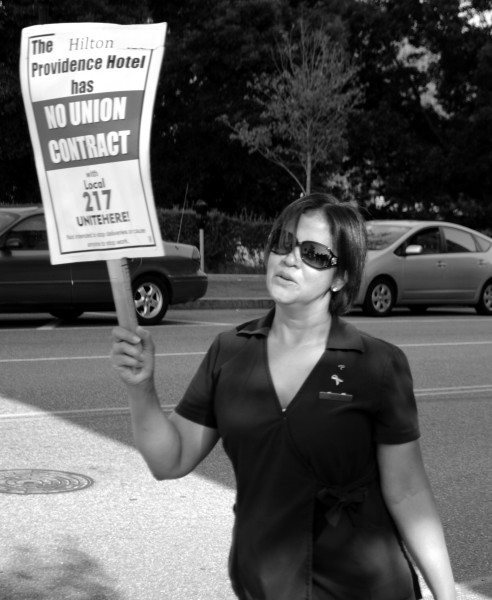
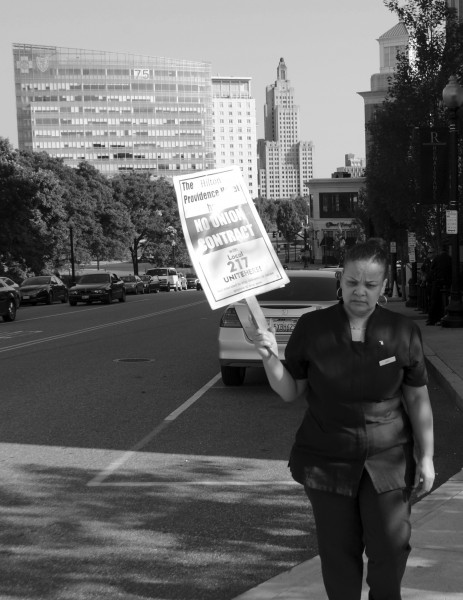
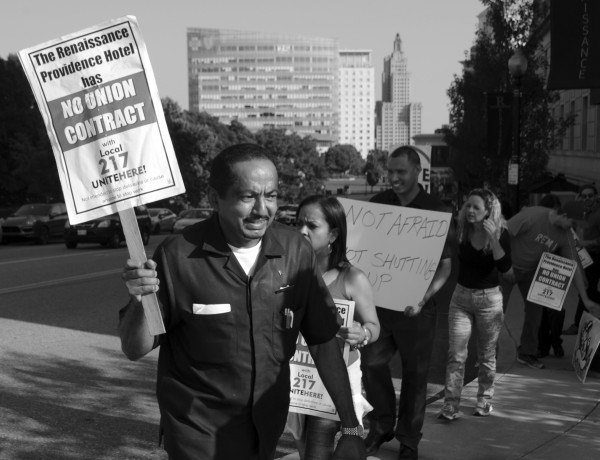
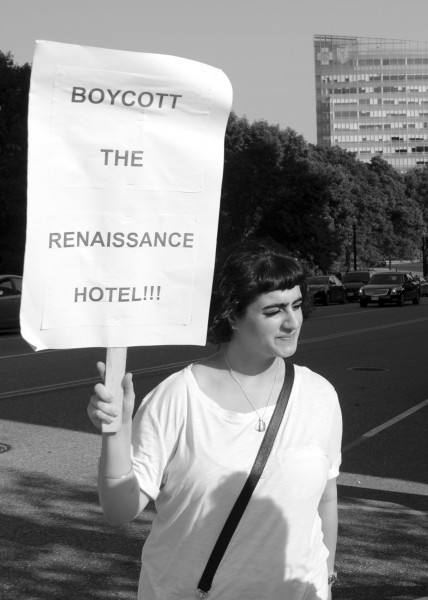
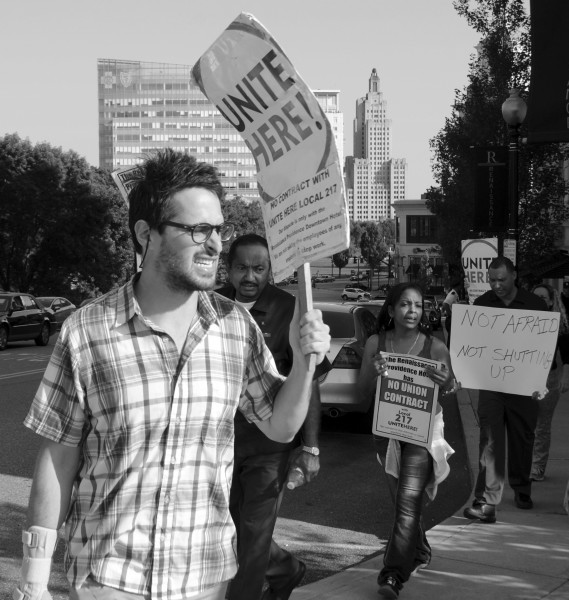
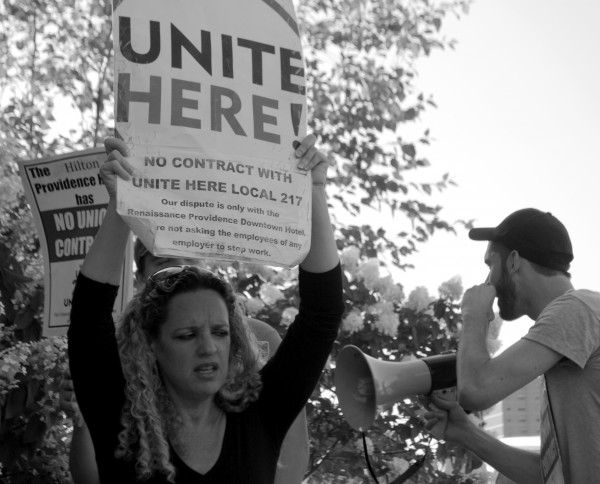
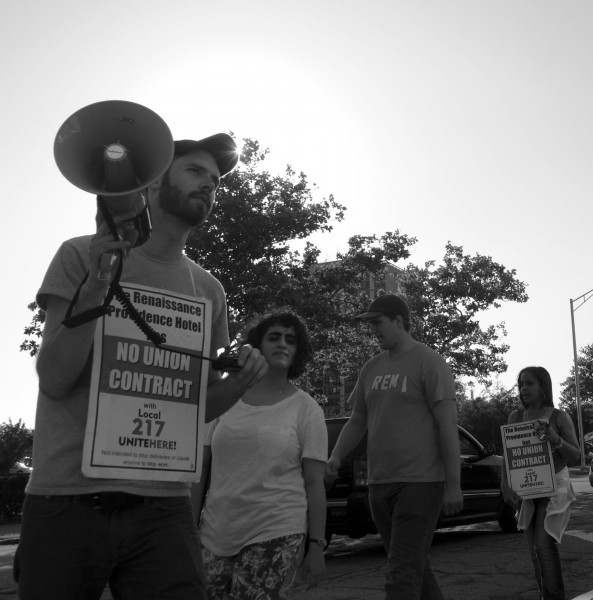
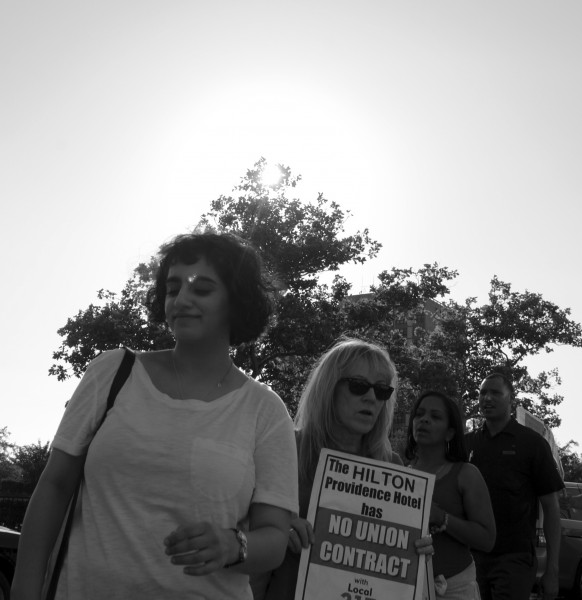
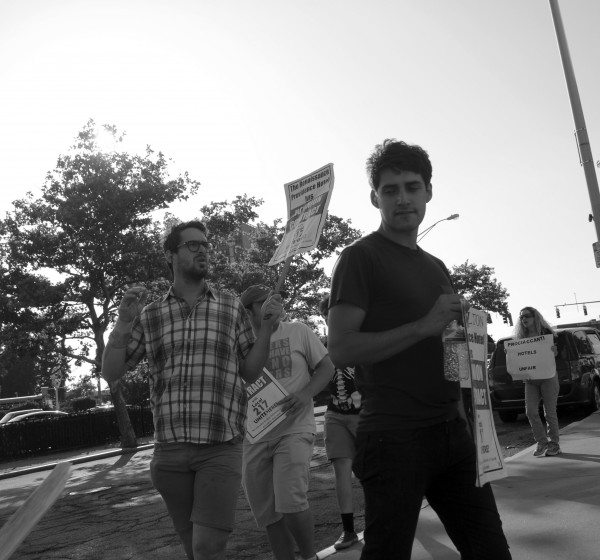

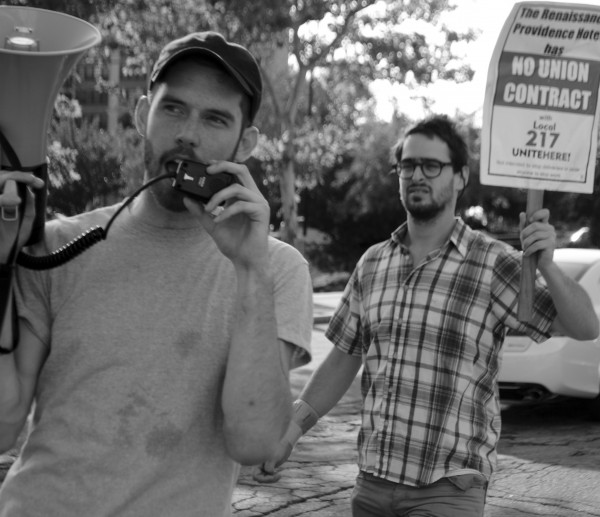

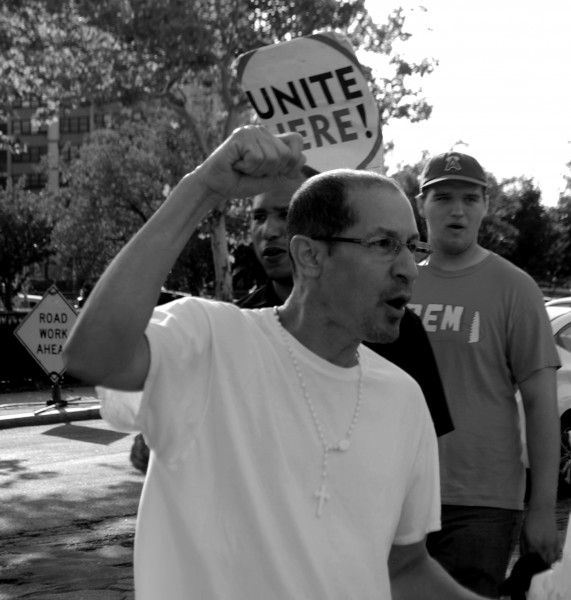
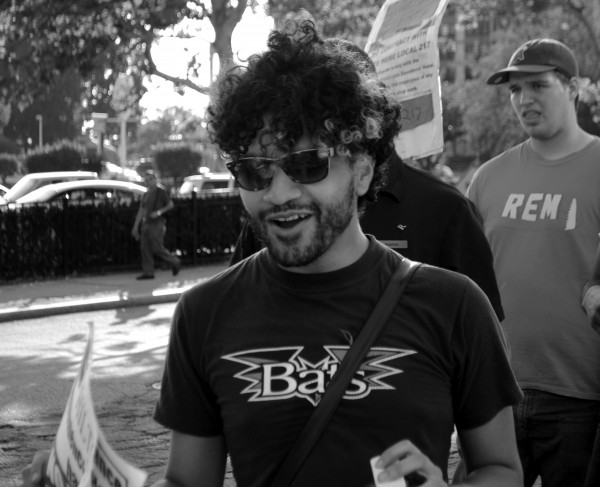
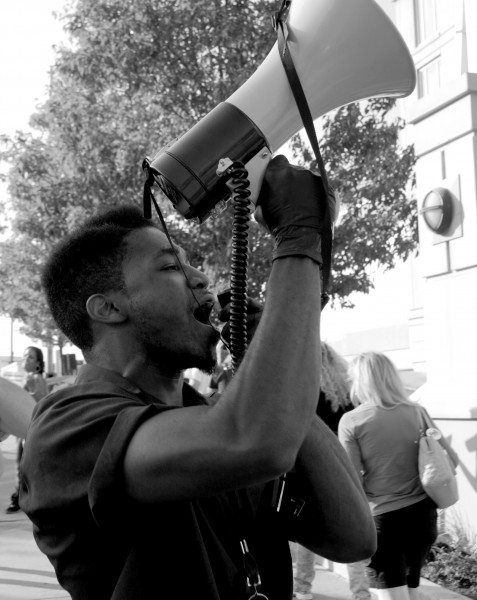
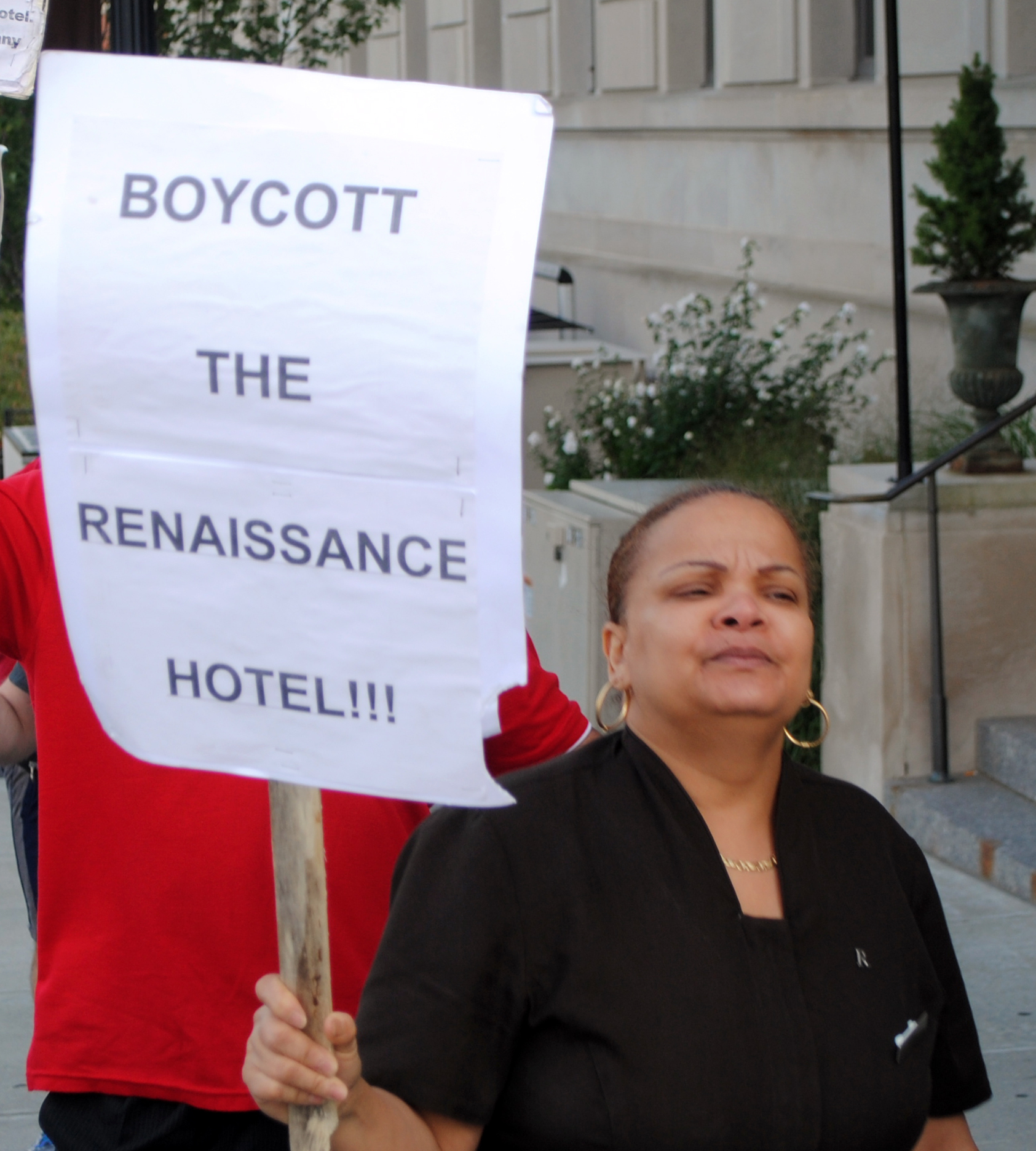
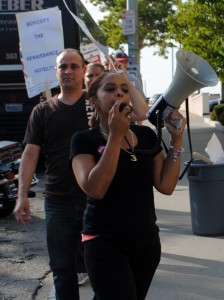 One of the few bright spots on the Rhode Island economic landscape is tourism, but should our economic successes be built on the backs of women scraping by on minimum wage?
One of the few bright spots on the Rhode Island economic landscape is tourism, but should our economic successes be built on the backs of women scraping by on minimum wage?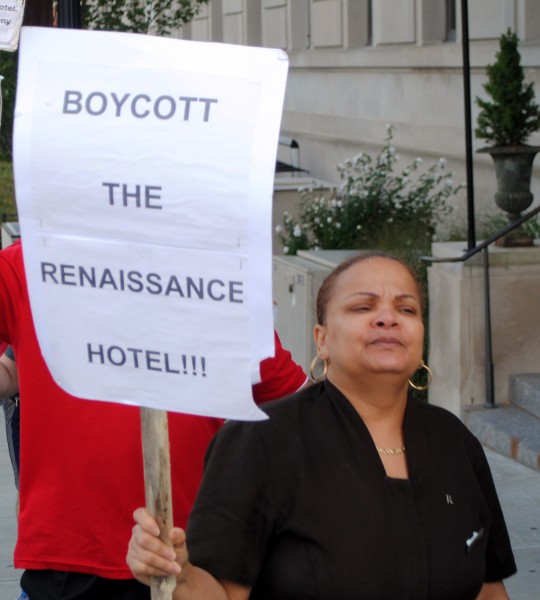
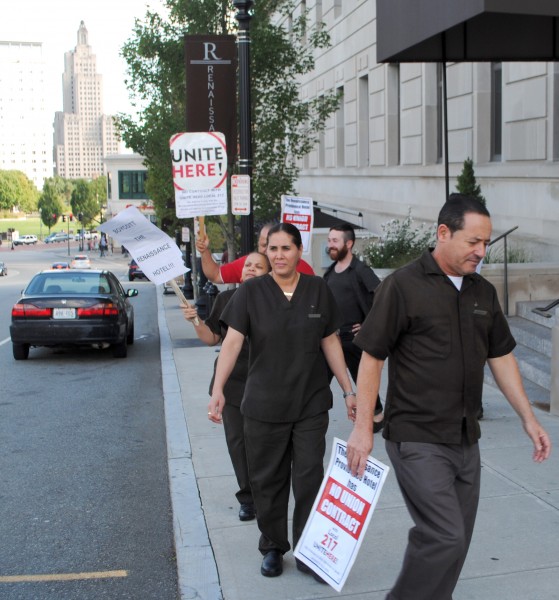
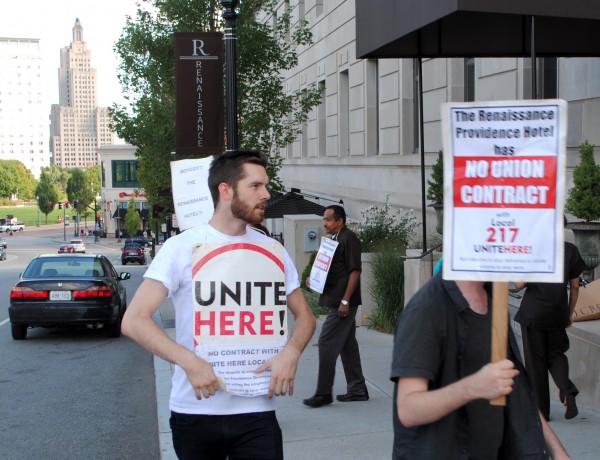
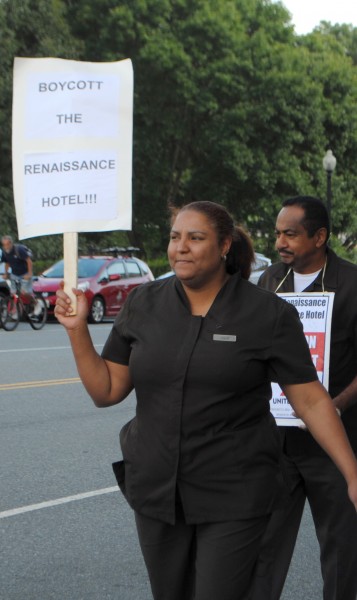
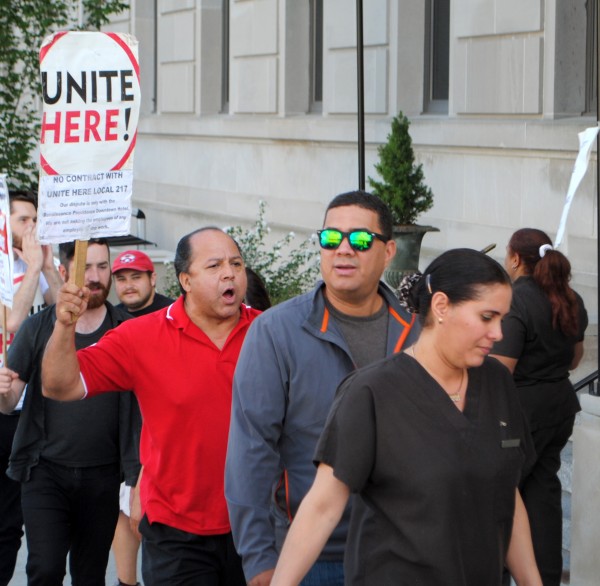
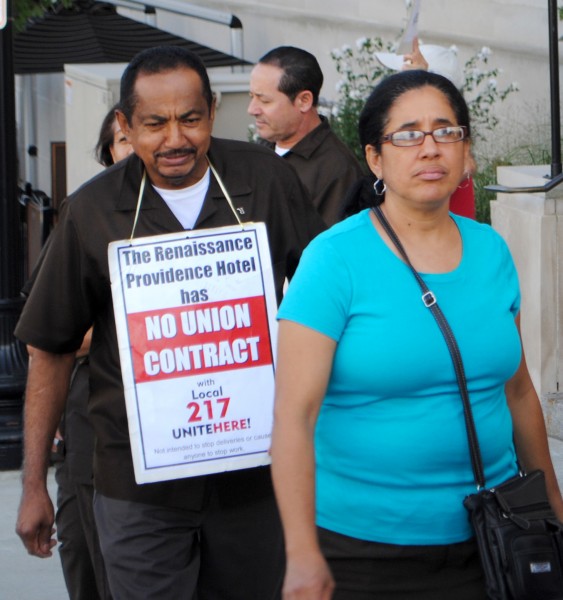
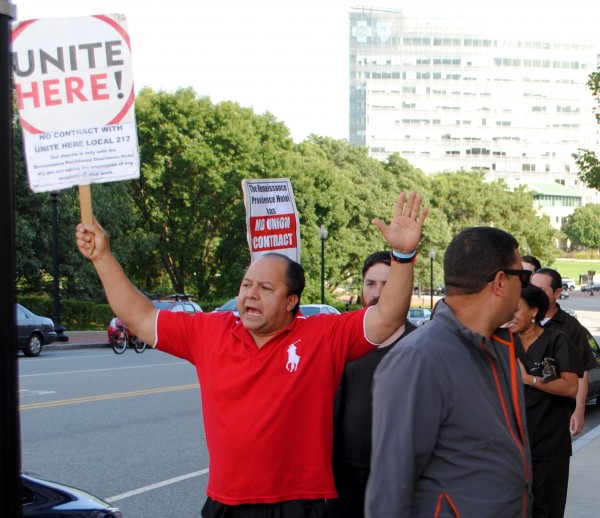
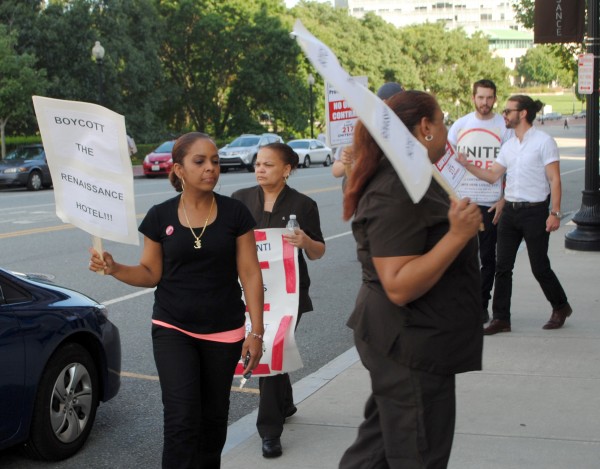
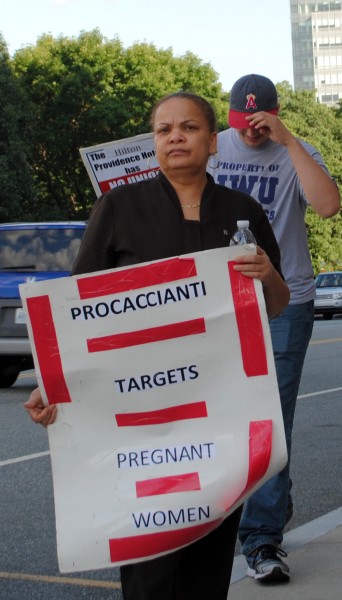
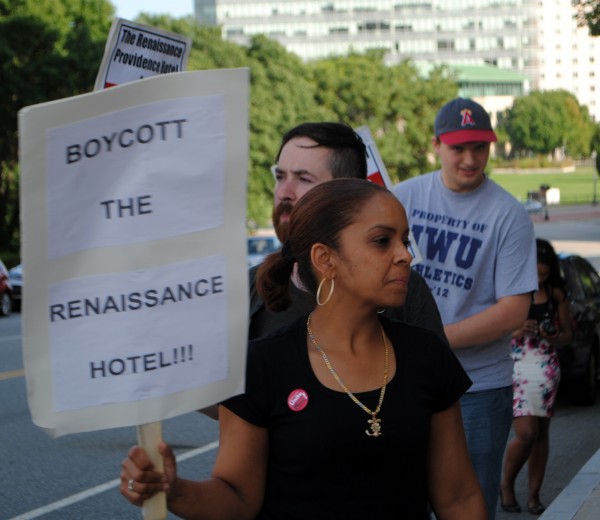
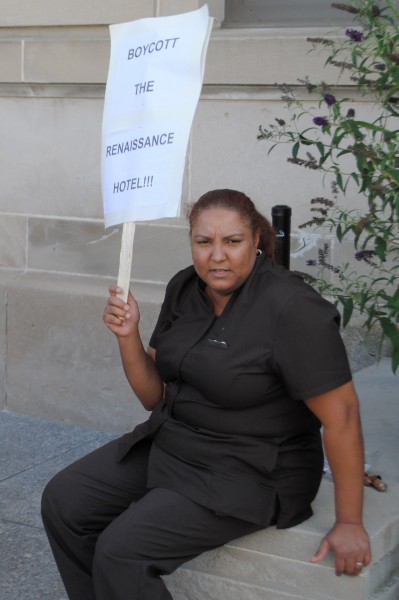
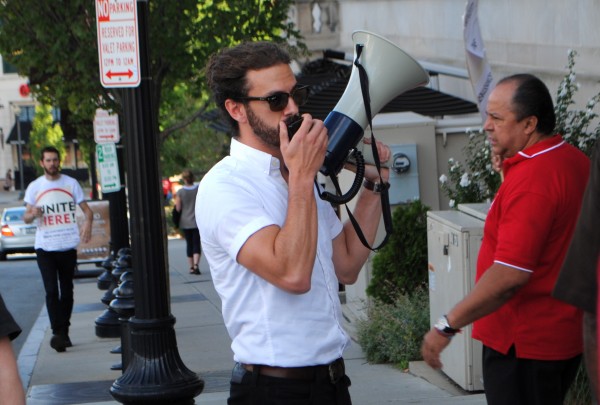
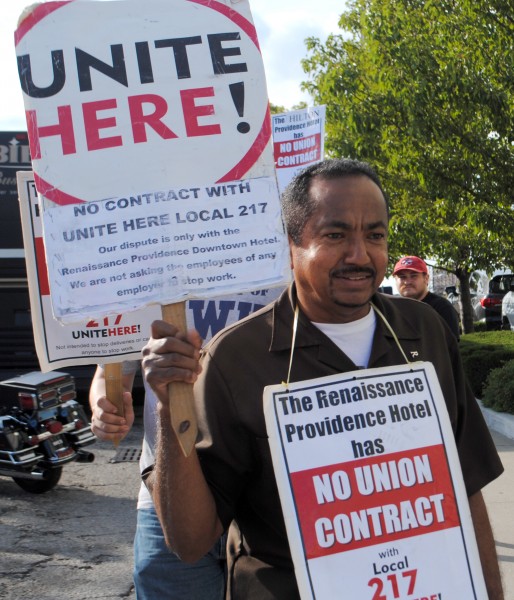
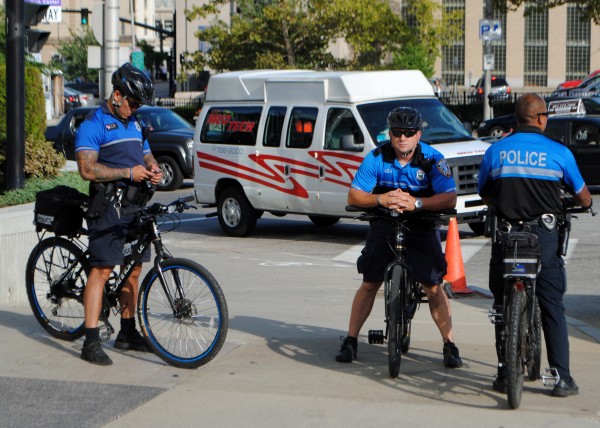
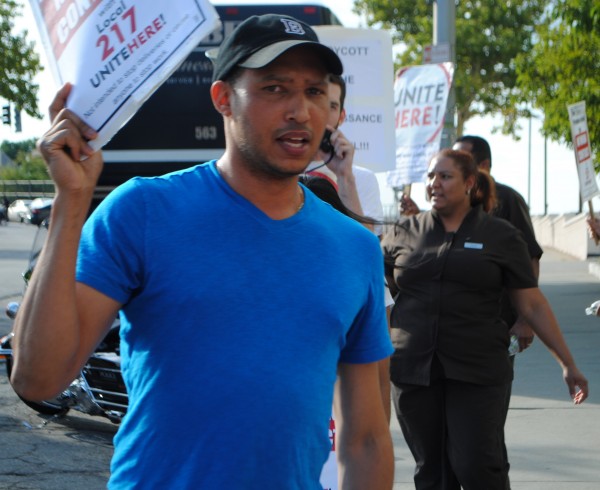
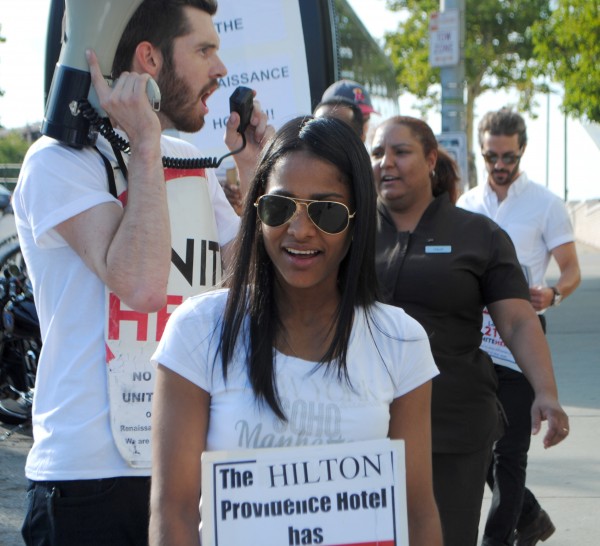
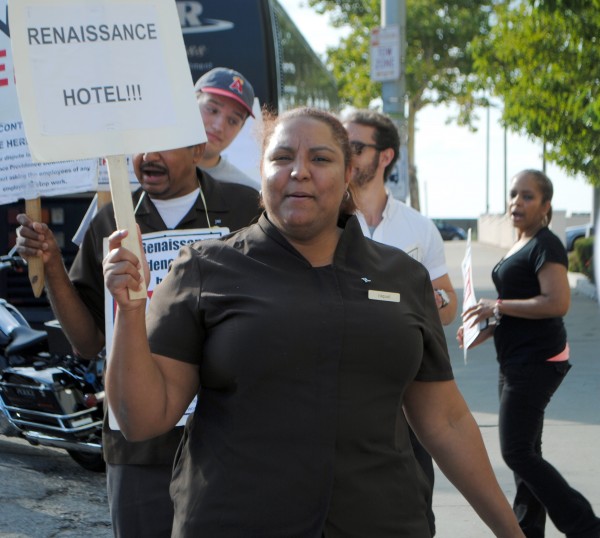
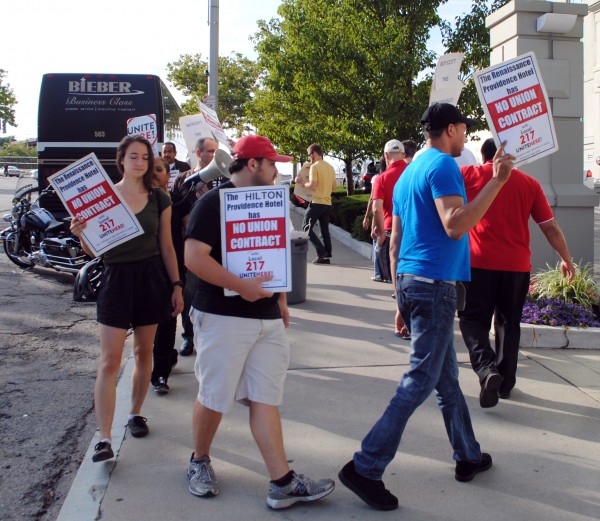
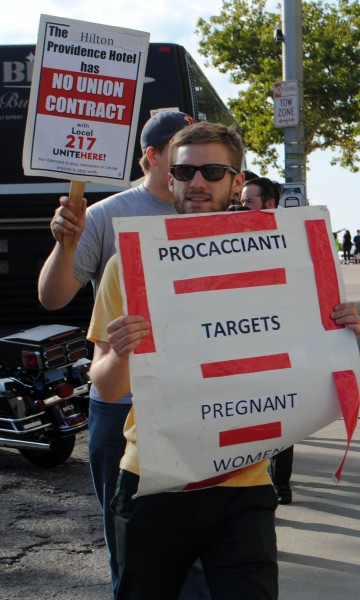
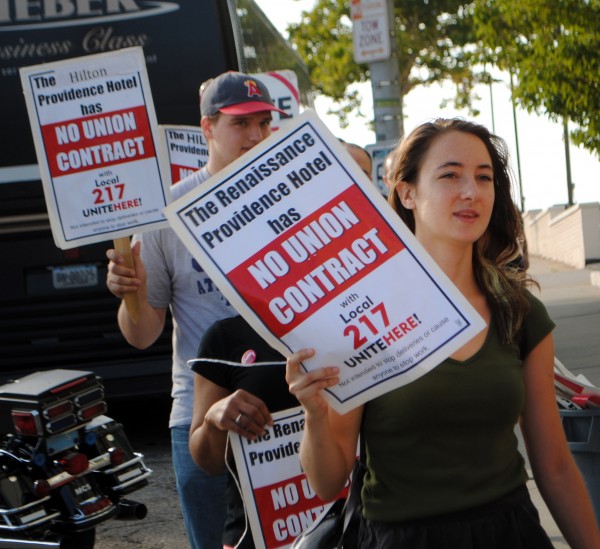
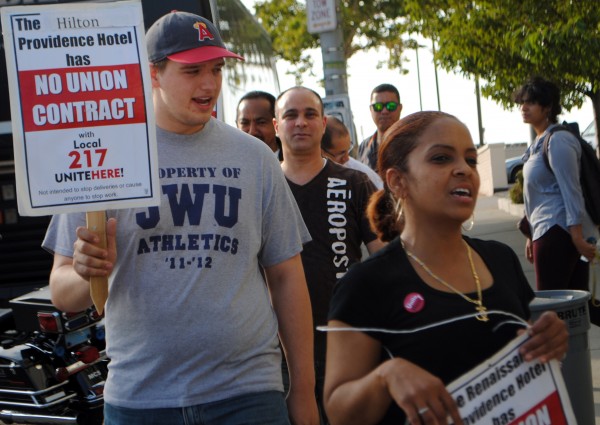
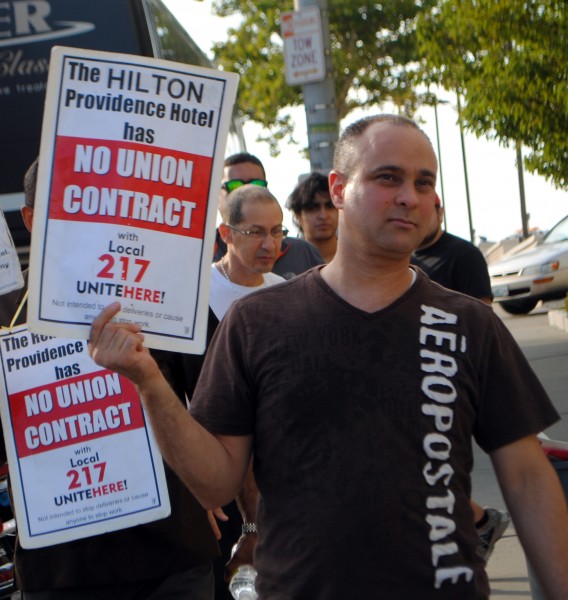
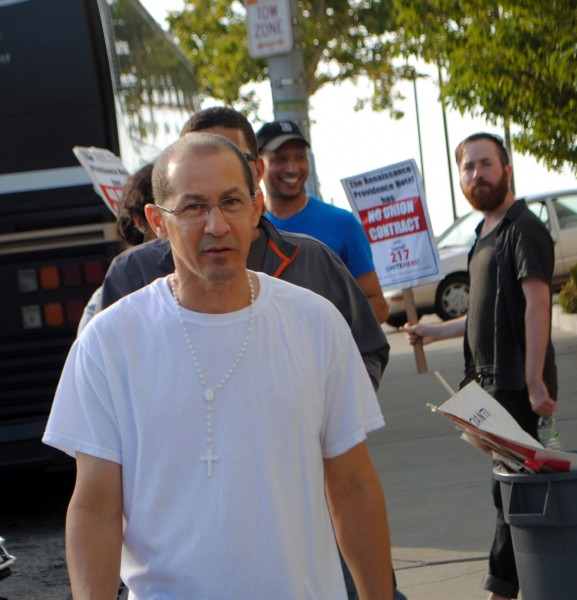
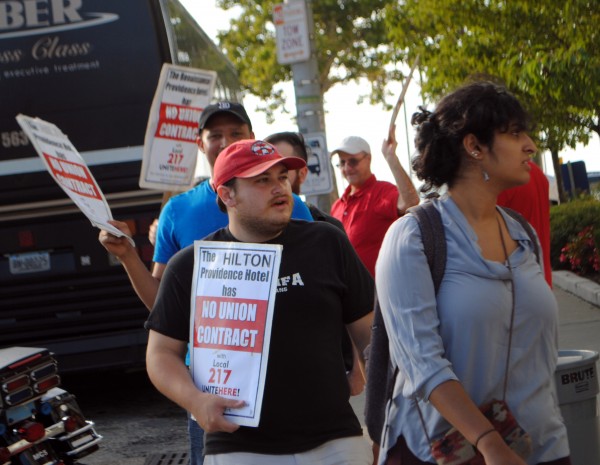

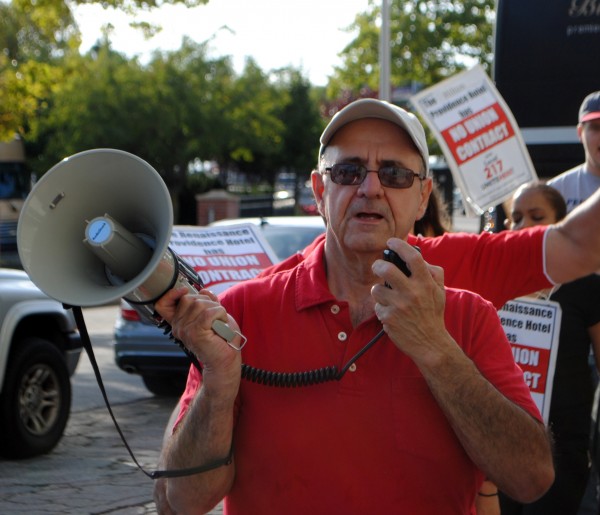
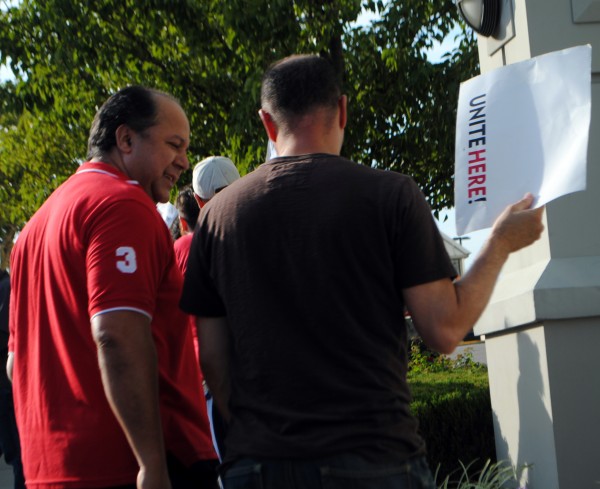
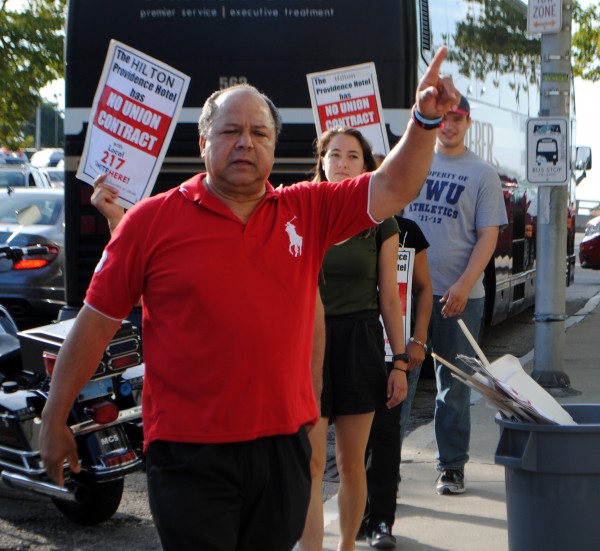
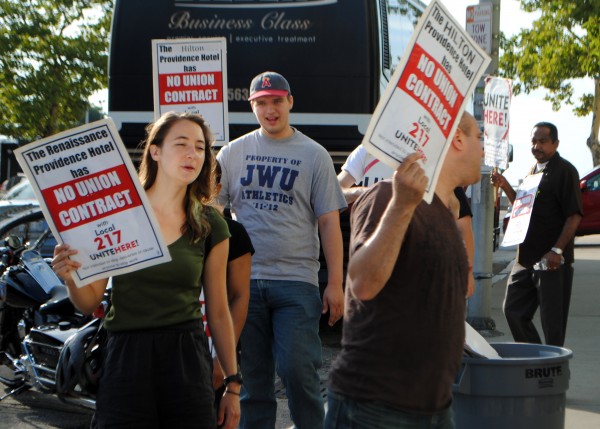
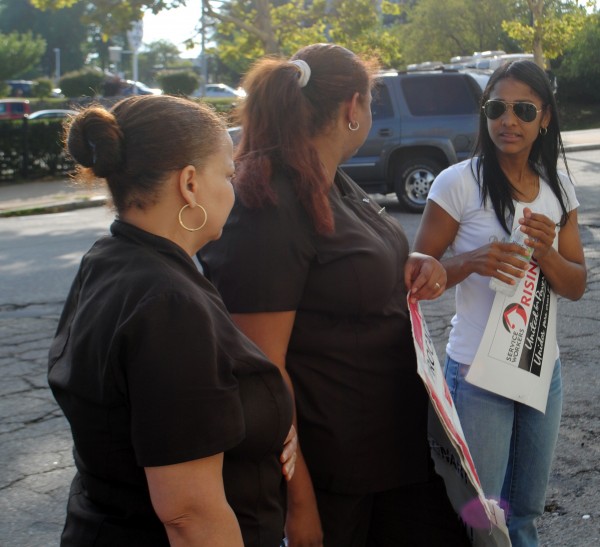

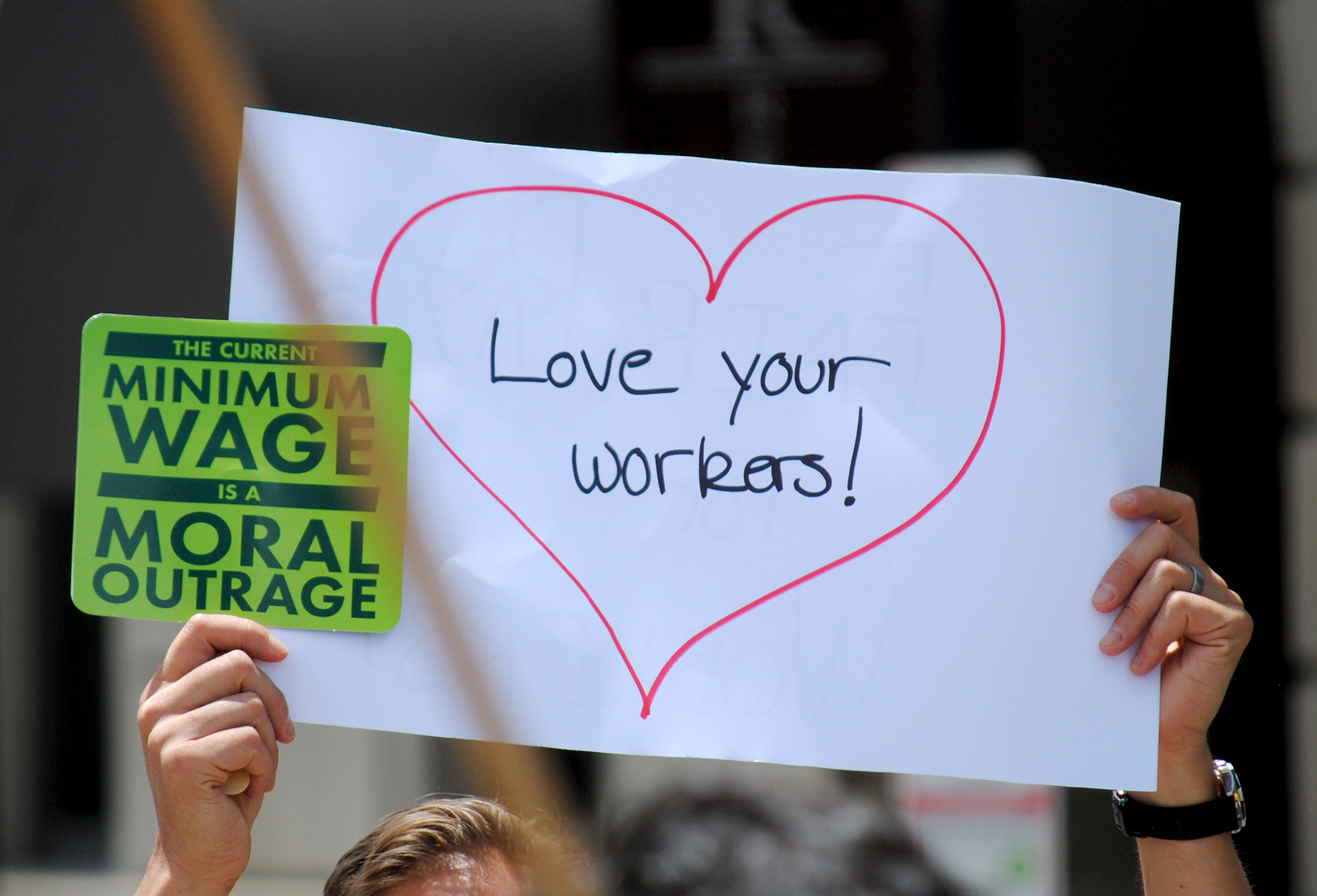
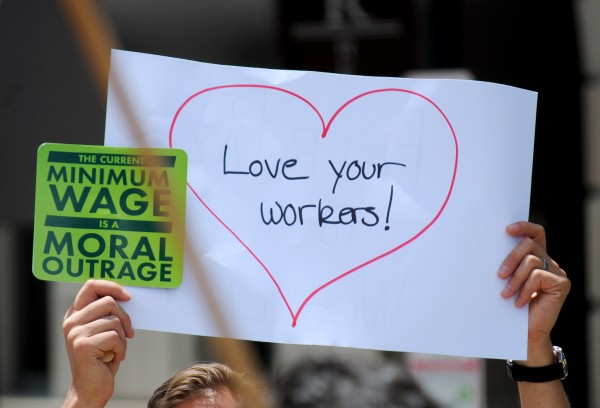 The Unitarian Universalist Association (UUA) is having their annual General assembly in Providence this weekend, and today around noon they held a rally outside the Renaissance Hotel near the State House to support worker’s rights to a fair and just living wage, and to demonstrate against the draconian and anti-democratic tactics used by state officials to stop hotel workers from raising the minimum wage in Providence. Well over two hundred people made the trek from the Convention Center, where the UUA GA is being held, to the empty lot outside the Renaissance to chant, hear speeches and sing for economic and social justice.
The Unitarian Universalist Association (UUA) is having their annual General assembly in Providence this weekend, and today around noon they held a rally outside the Renaissance Hotel near the State House to support worker’s rights to a fair and just living wage, and to demonstrate against the draconian and anti-democratic tactics used by state officials to stop hotel workers from raising the minimum wage in Providence. Well over two hundred people made the trek from the Convention Center, where the UUA GA is being held, to the empty lot outside the Renaissance to chant, hear speeches and sing for economic and social justice.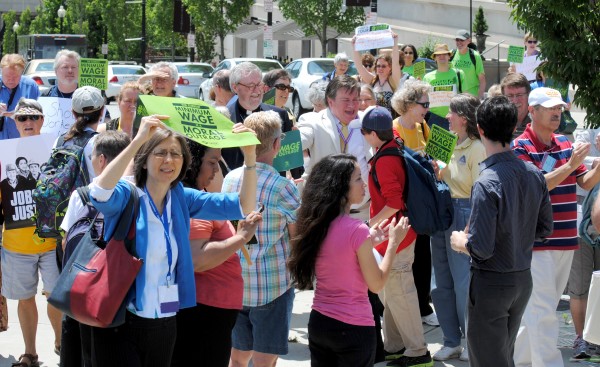
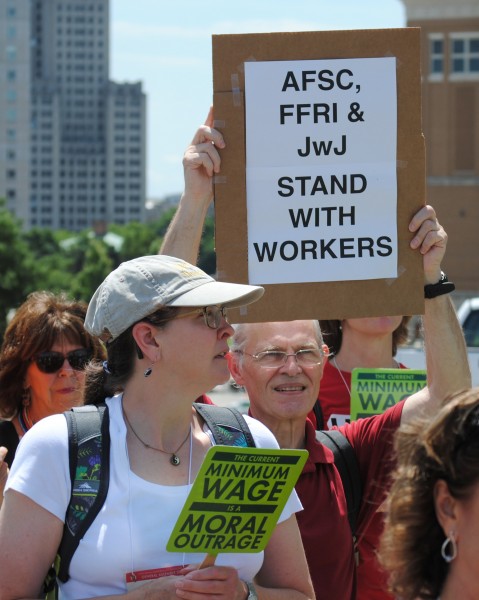


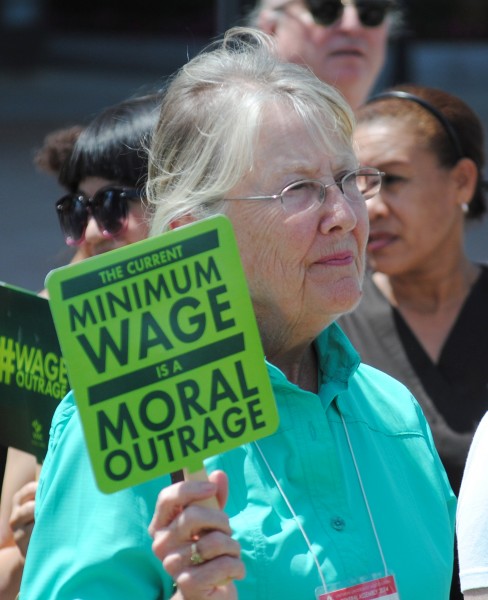
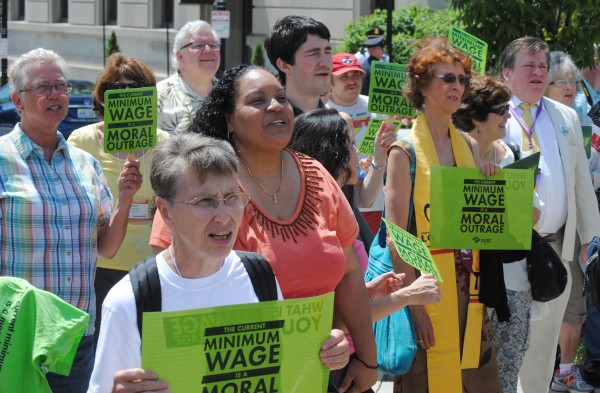
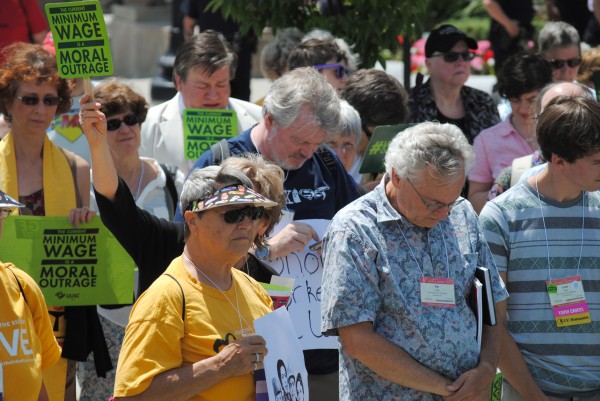
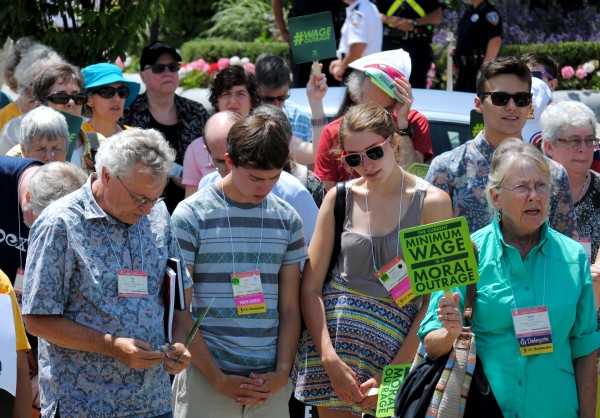
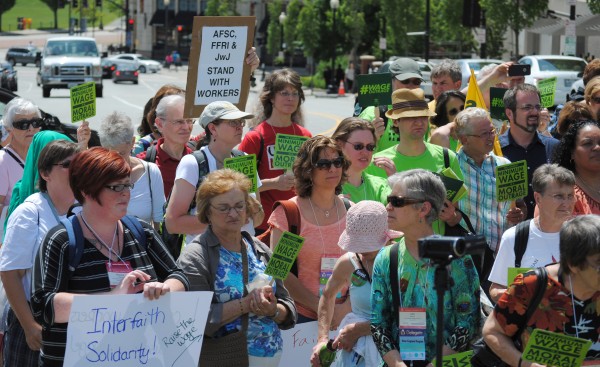

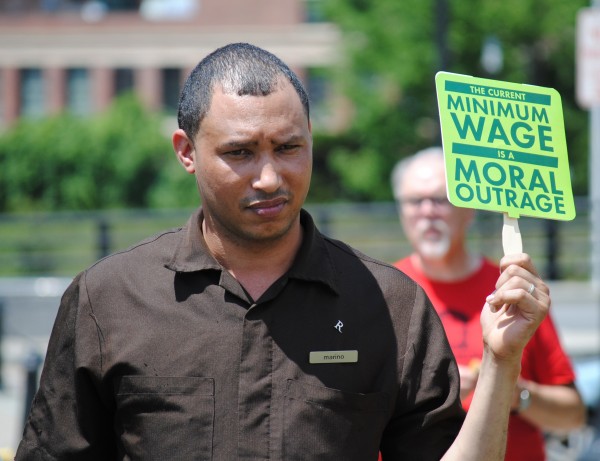



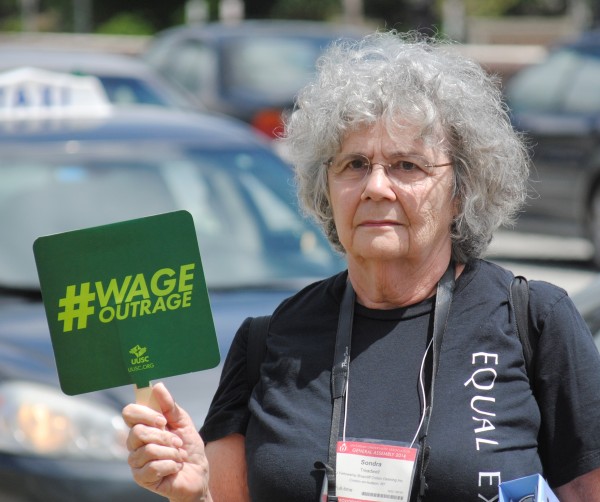
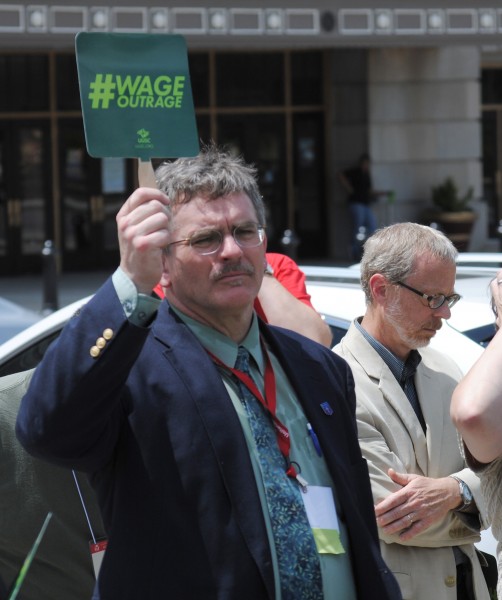
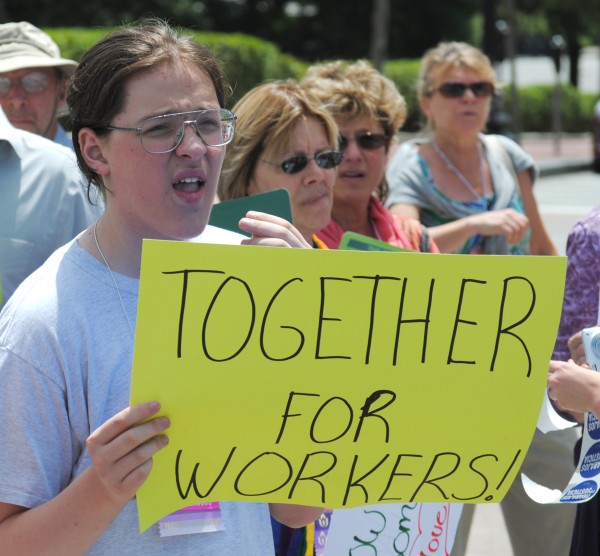
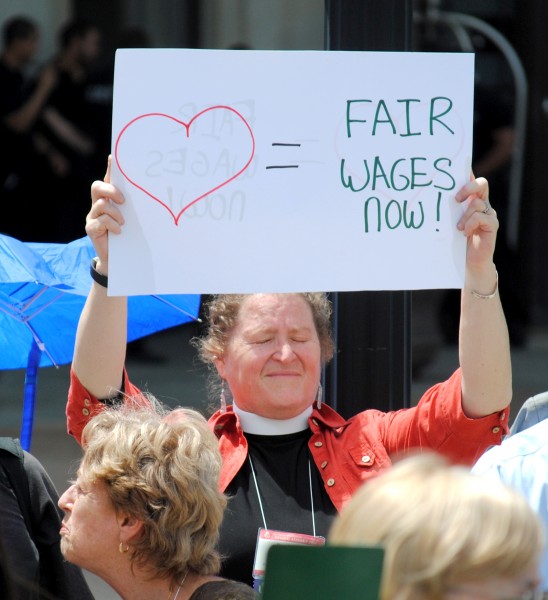
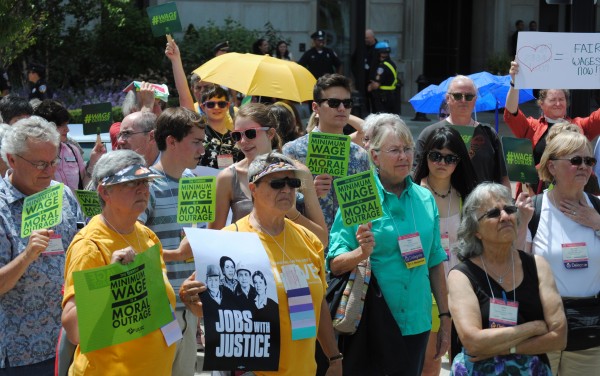




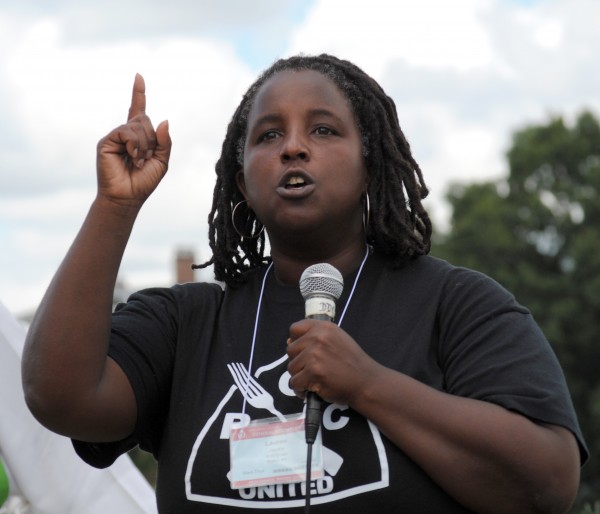
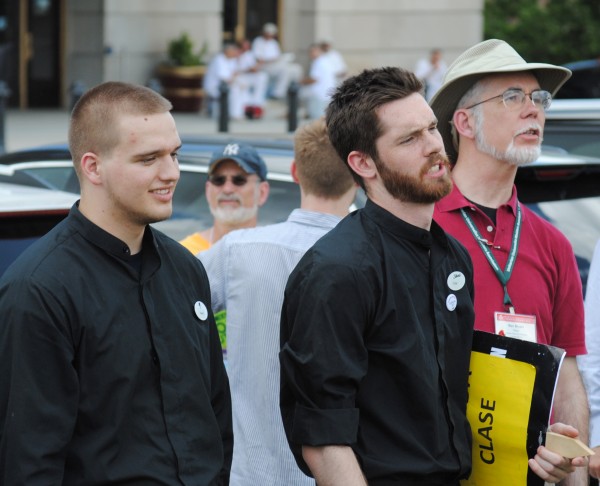

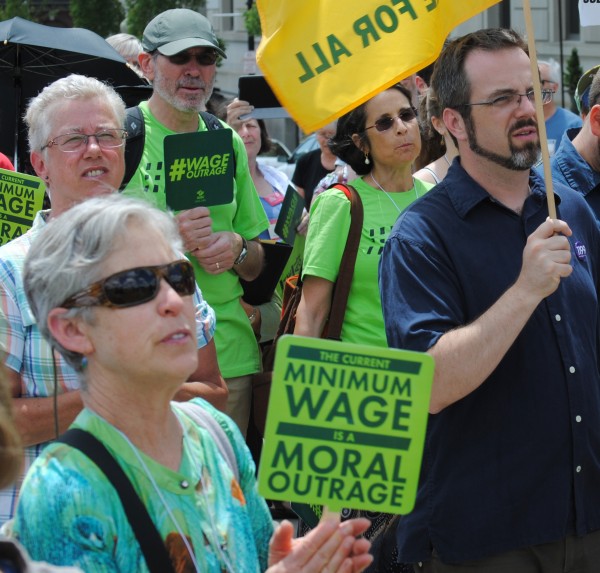
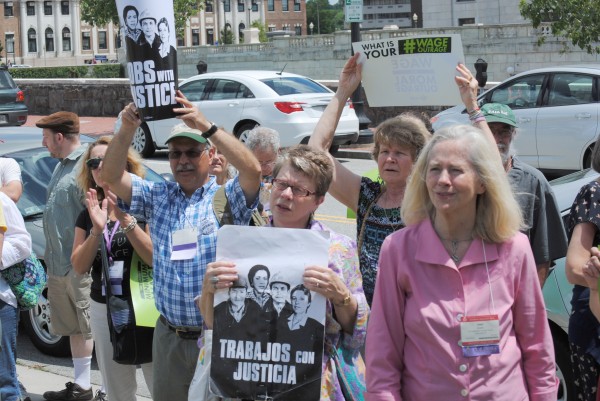
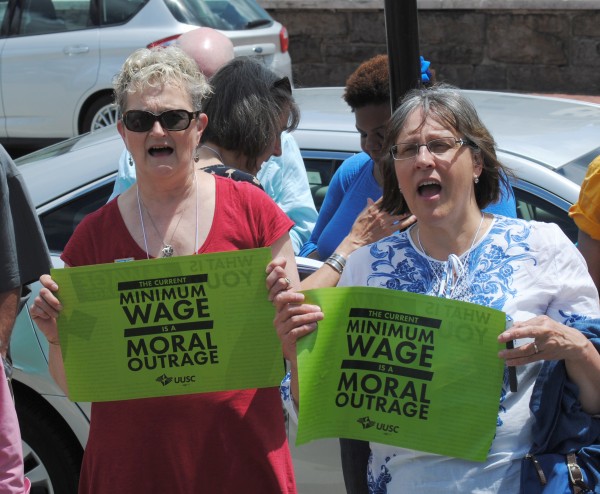
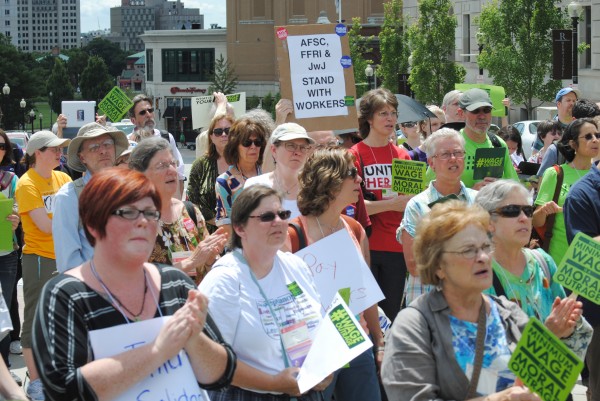
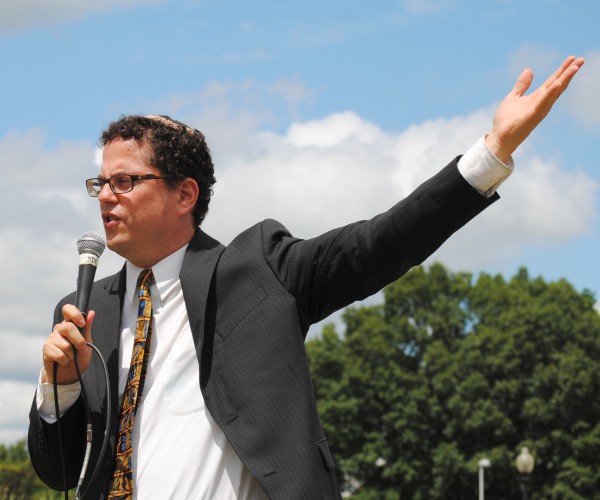
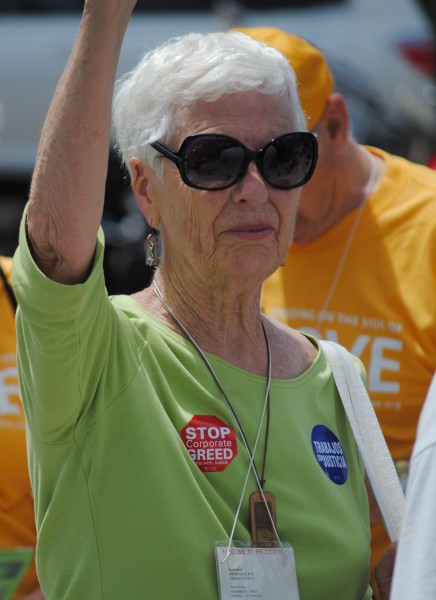

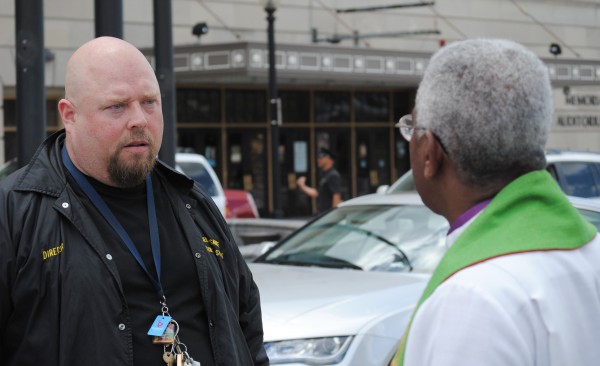
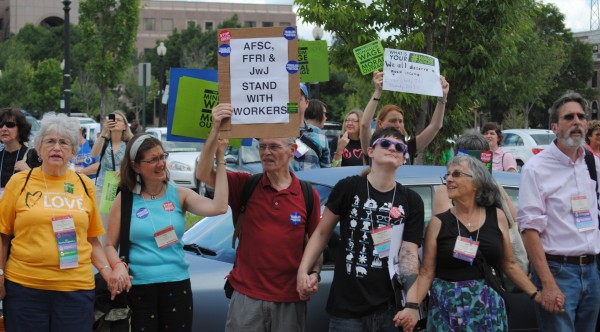
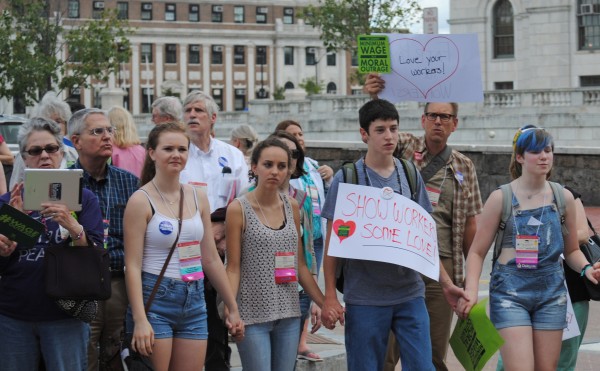
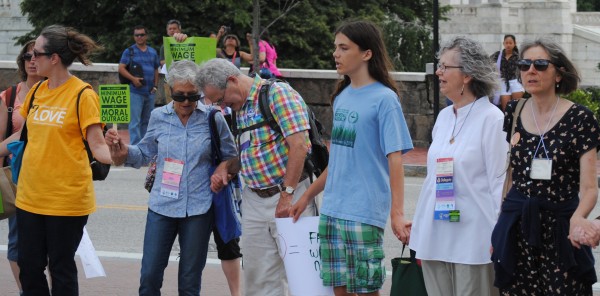
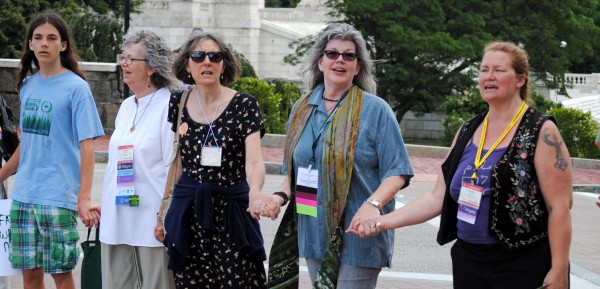
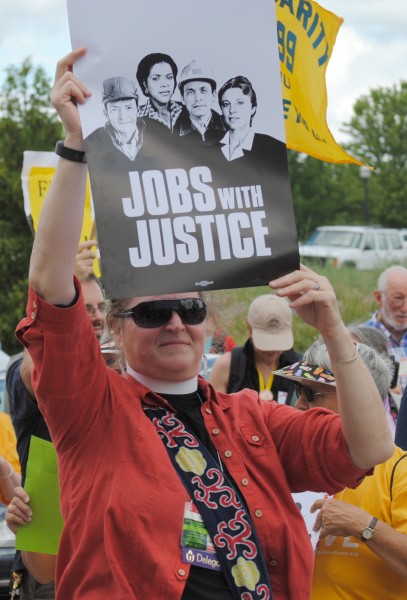
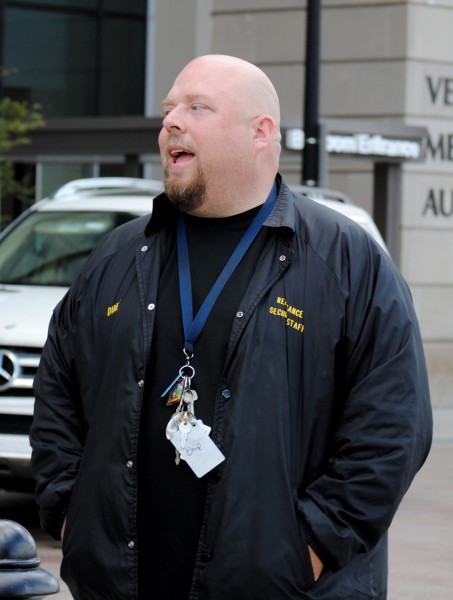


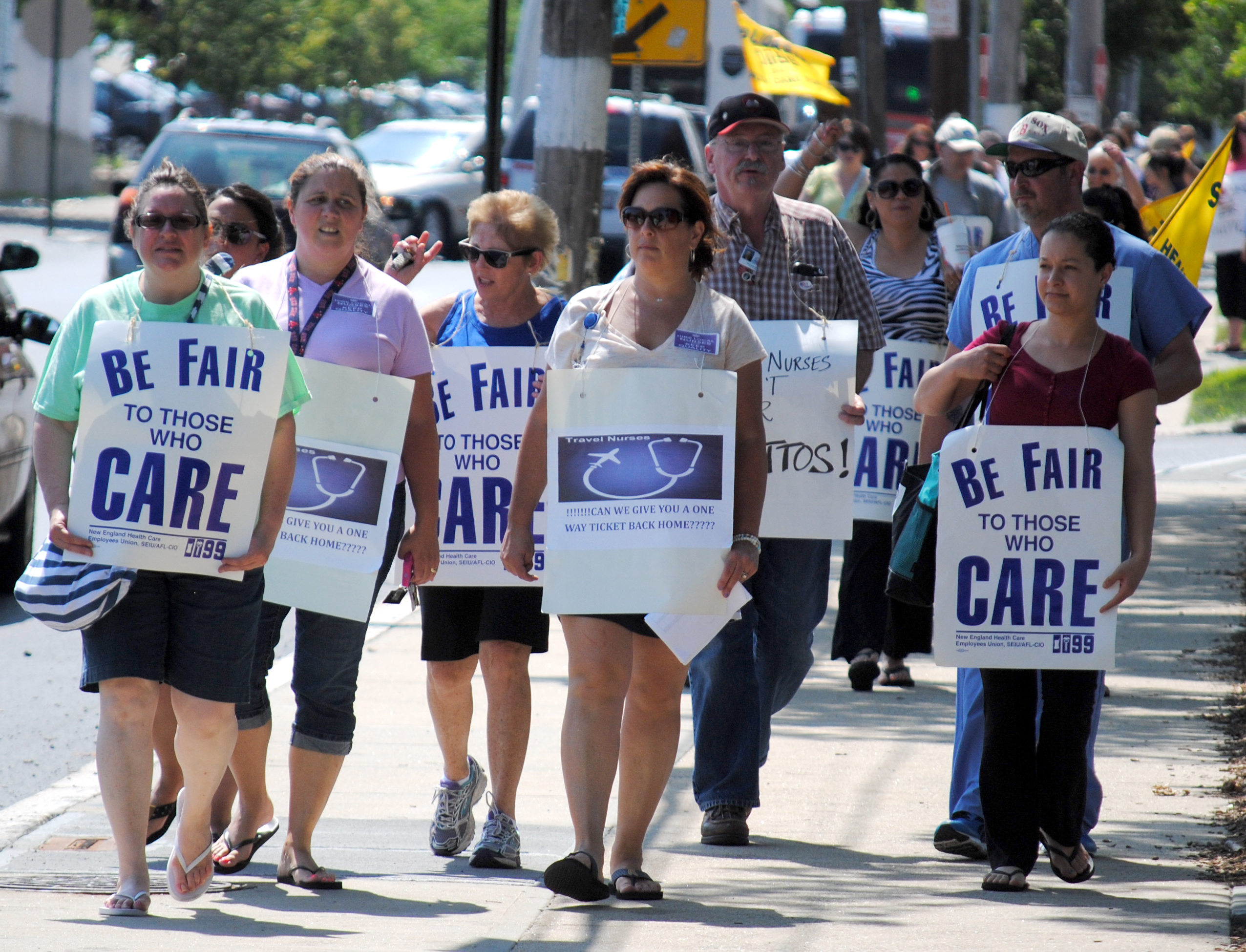
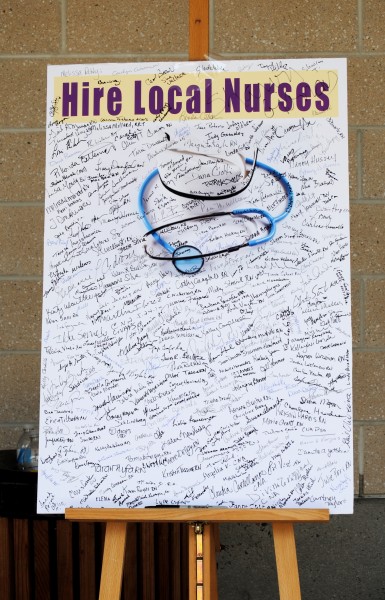 An all day picket was held at Women & Infants Hospital yesterday to call attention to the problem of temporary, out-of-state “travel nurses” filling scheduling holes than hiring in-state nurses graduating from one of the many fine colleges offering nursing degrees in Rhode Island.
An all day picket was held at Women & Infants Hospital yesterday to call attention to the problem of temporary, out-of-state “travel nurses” filling scheduling holes than hiring in-state nurses graduating from one of the many fine colleges offering nursing degrees in Rhode Island.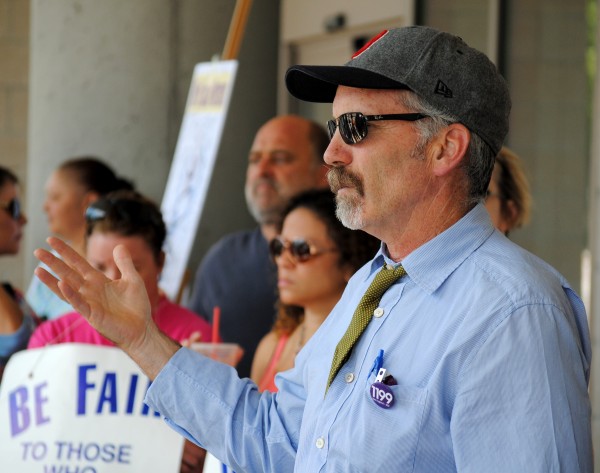
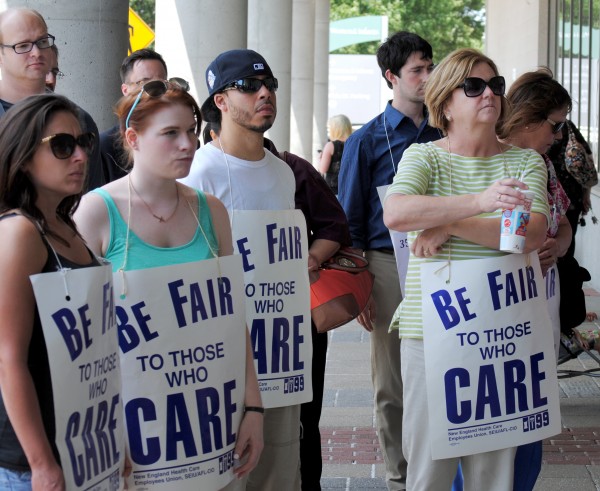
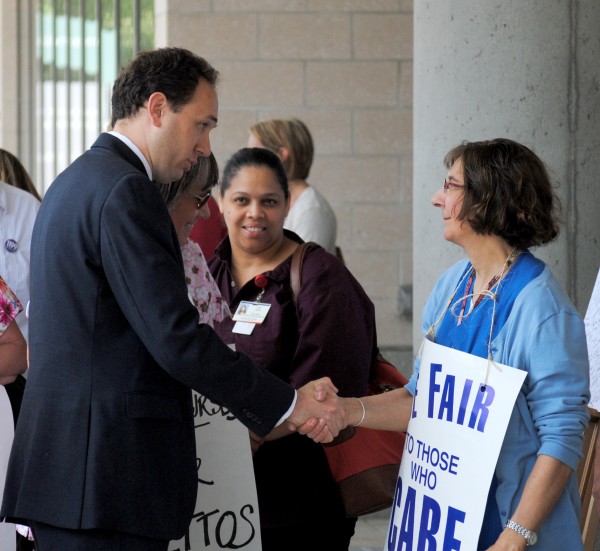
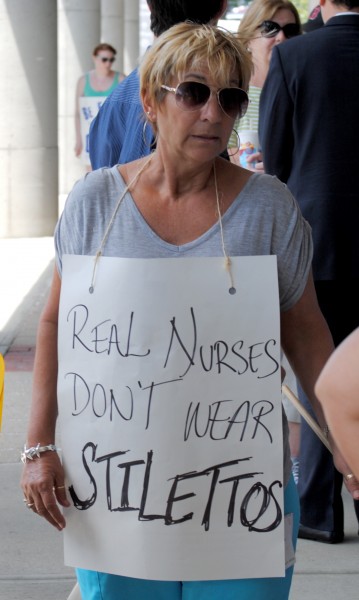

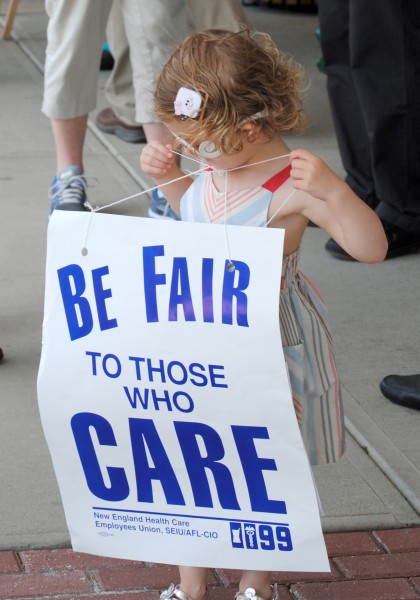
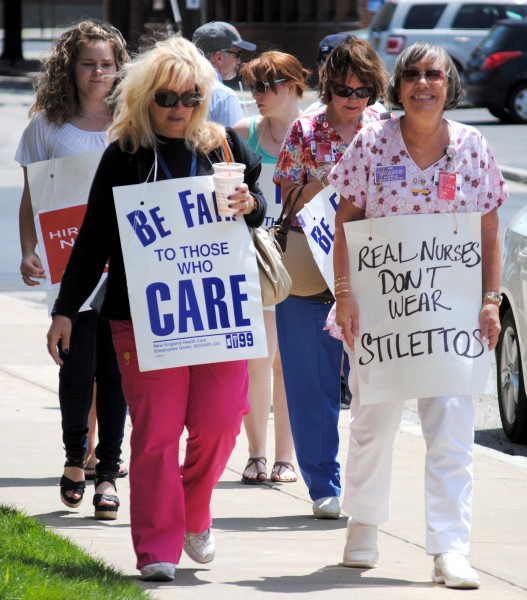
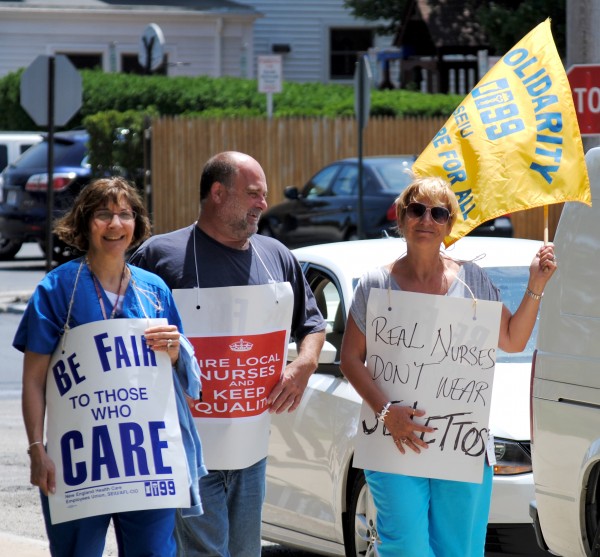
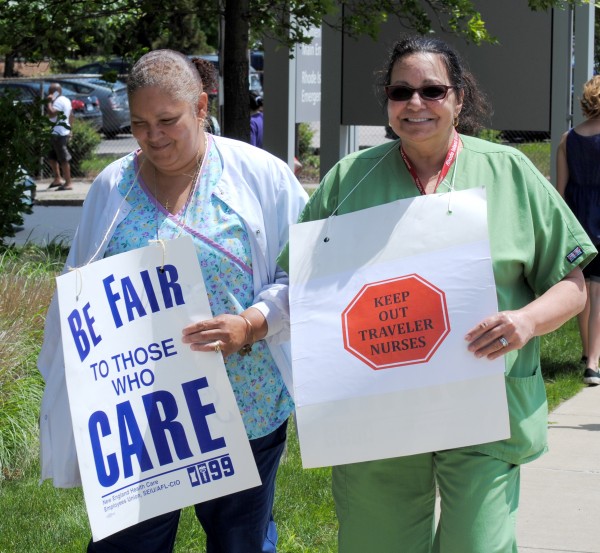
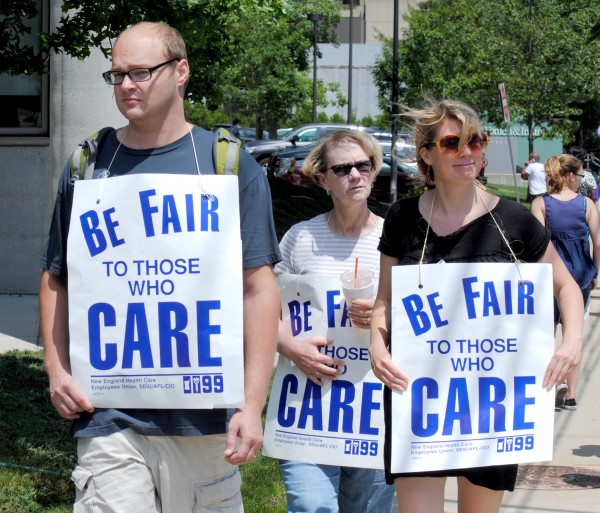
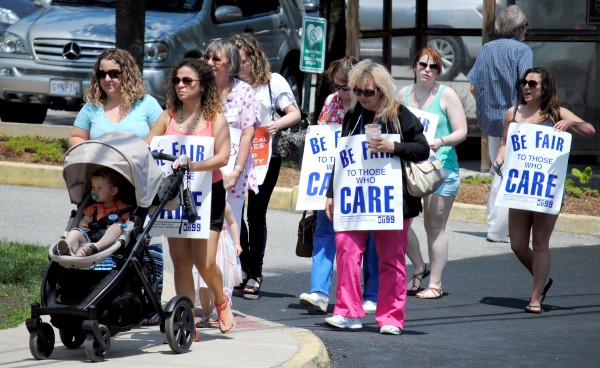
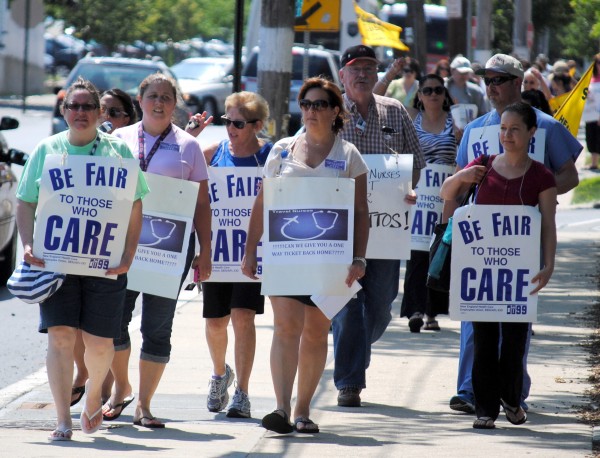
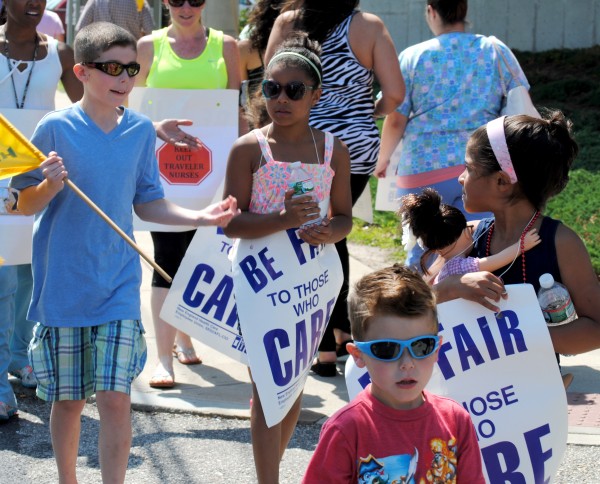

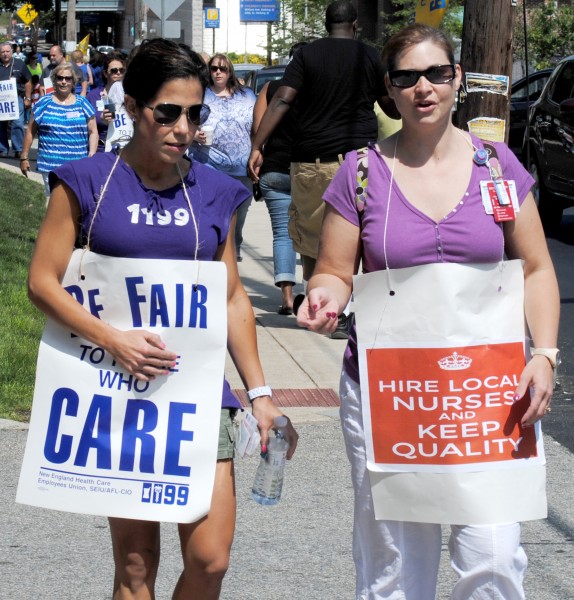
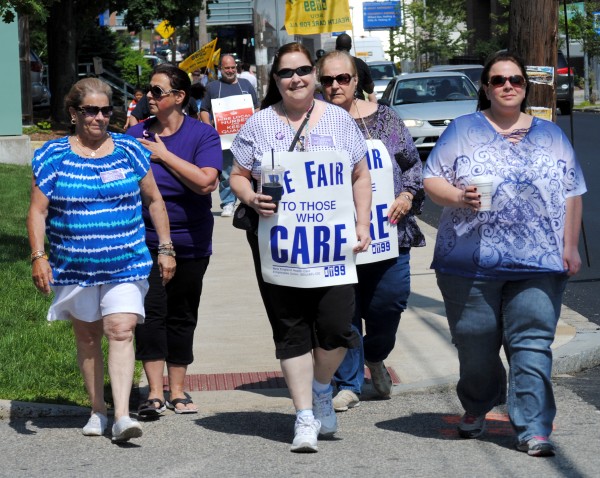

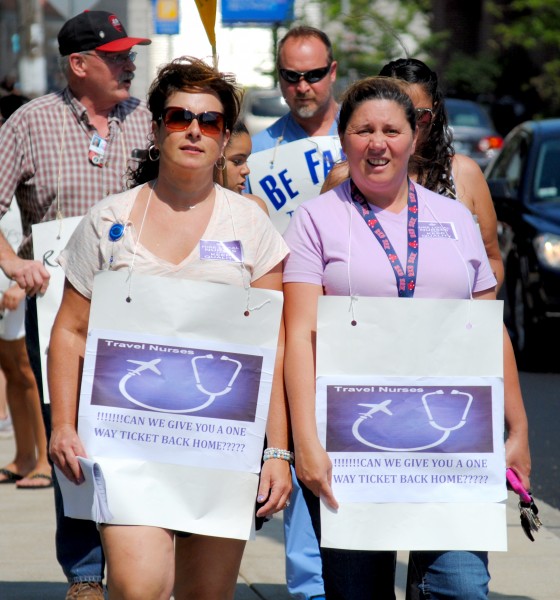
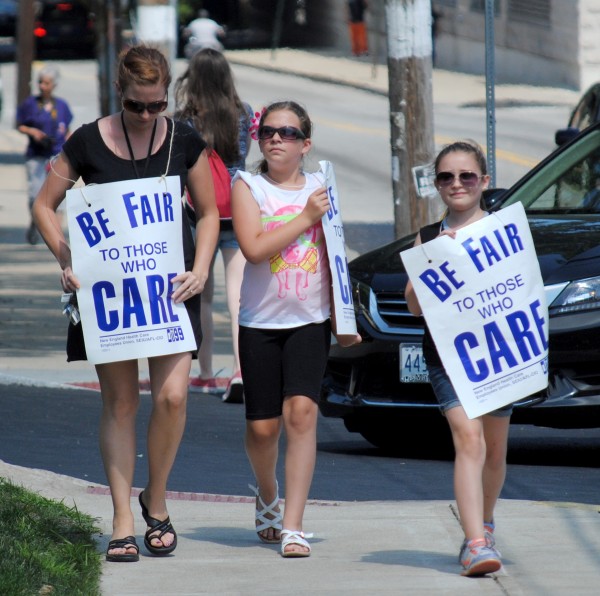
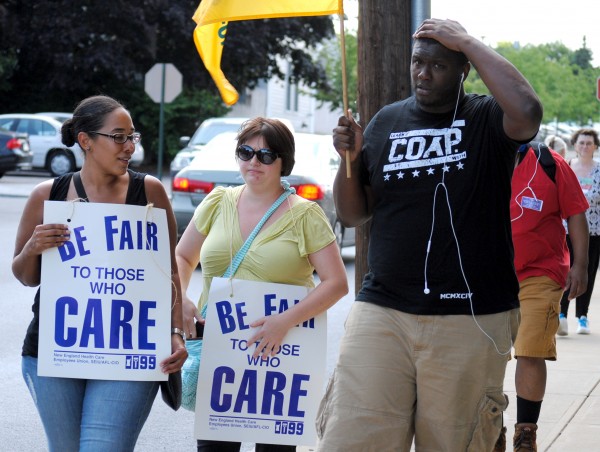
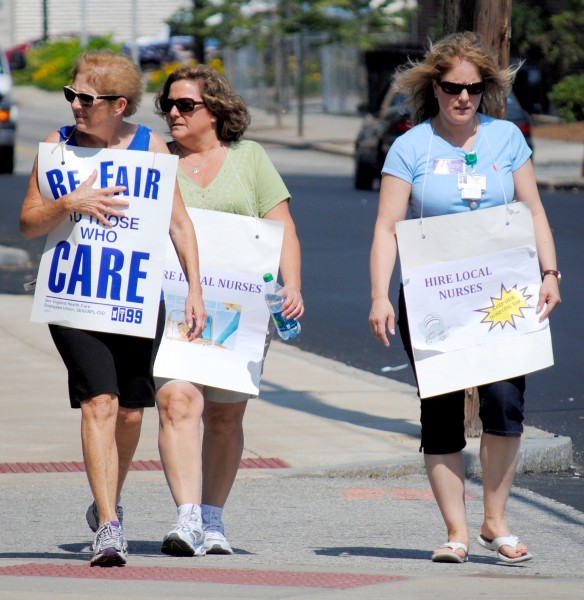

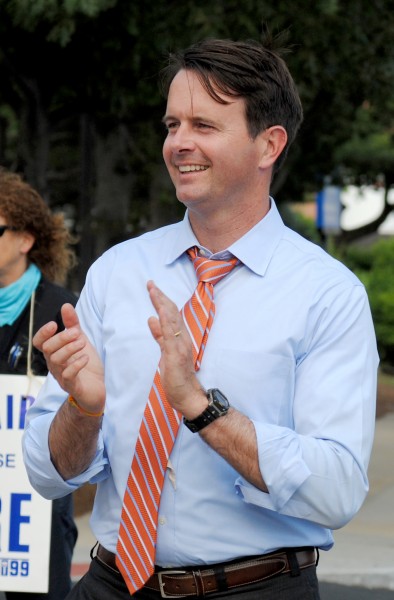
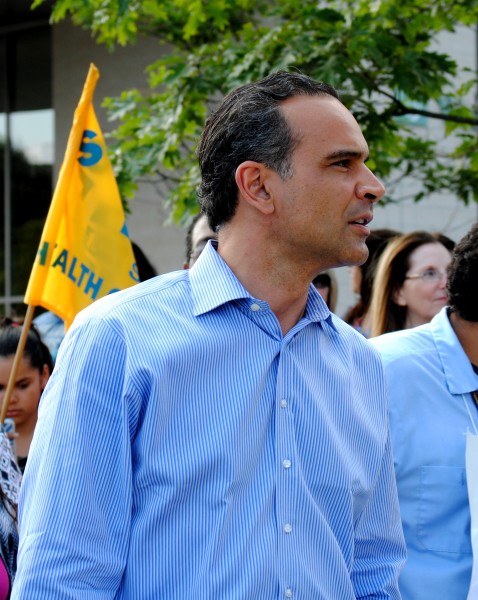
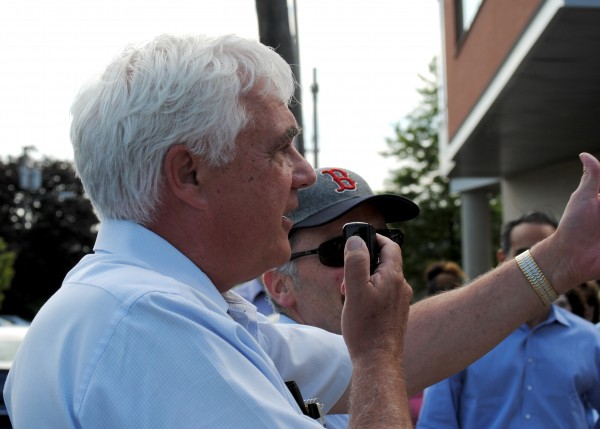
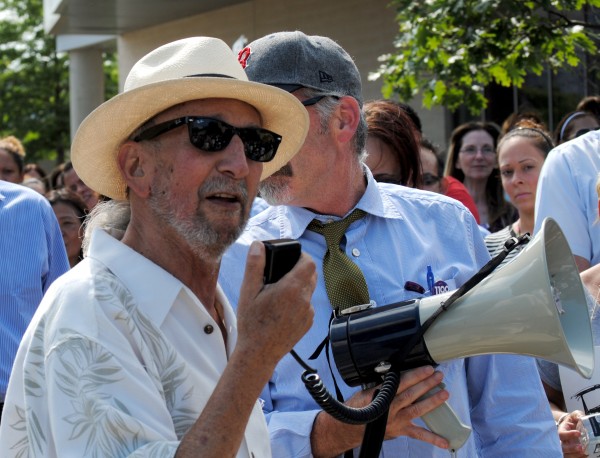

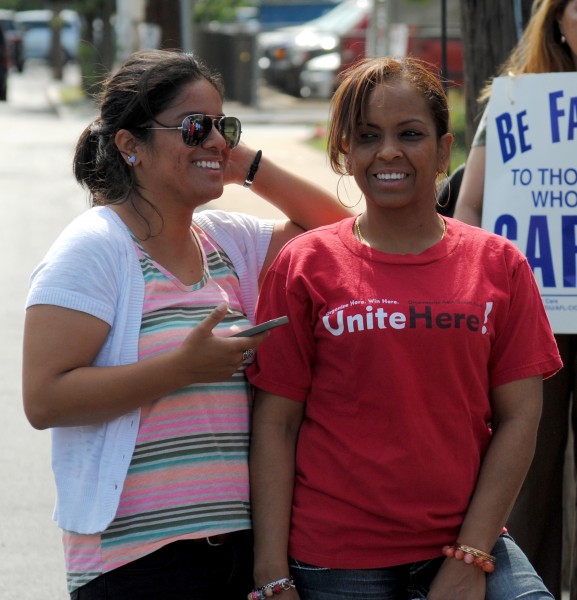
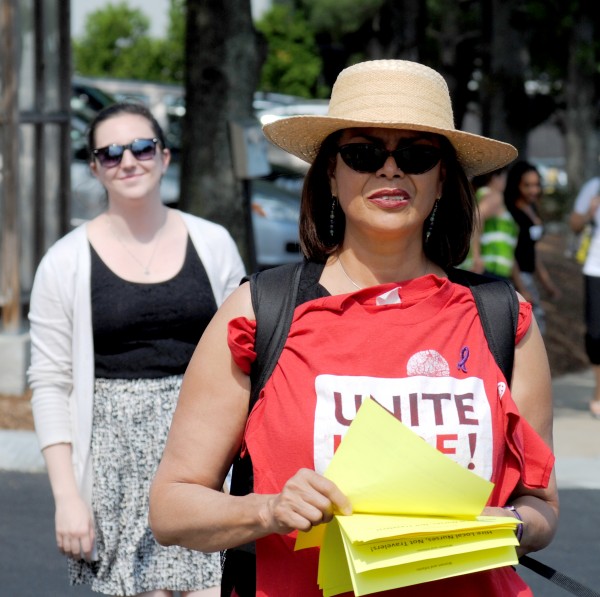


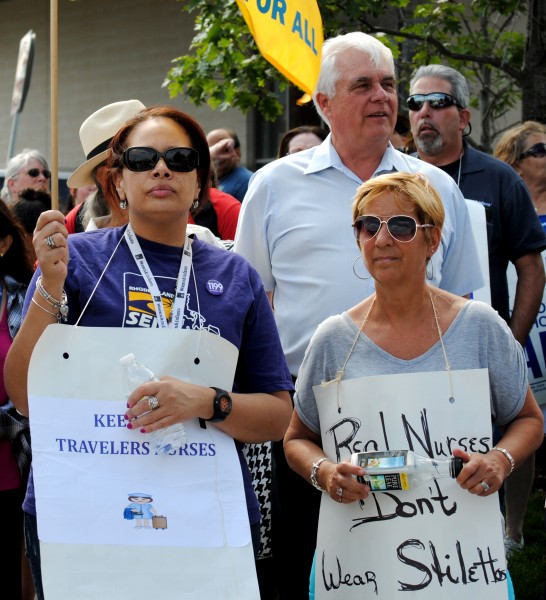





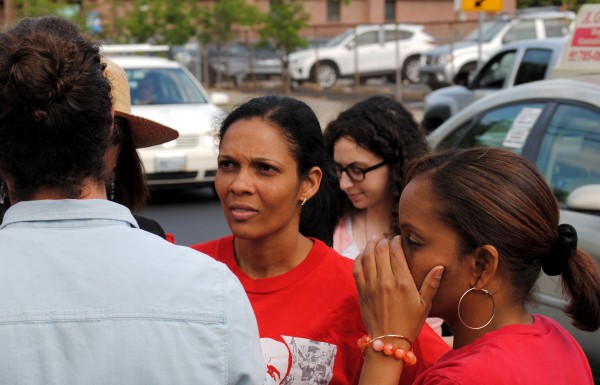
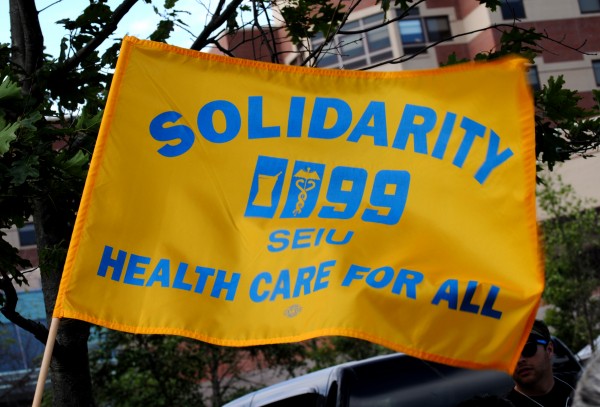
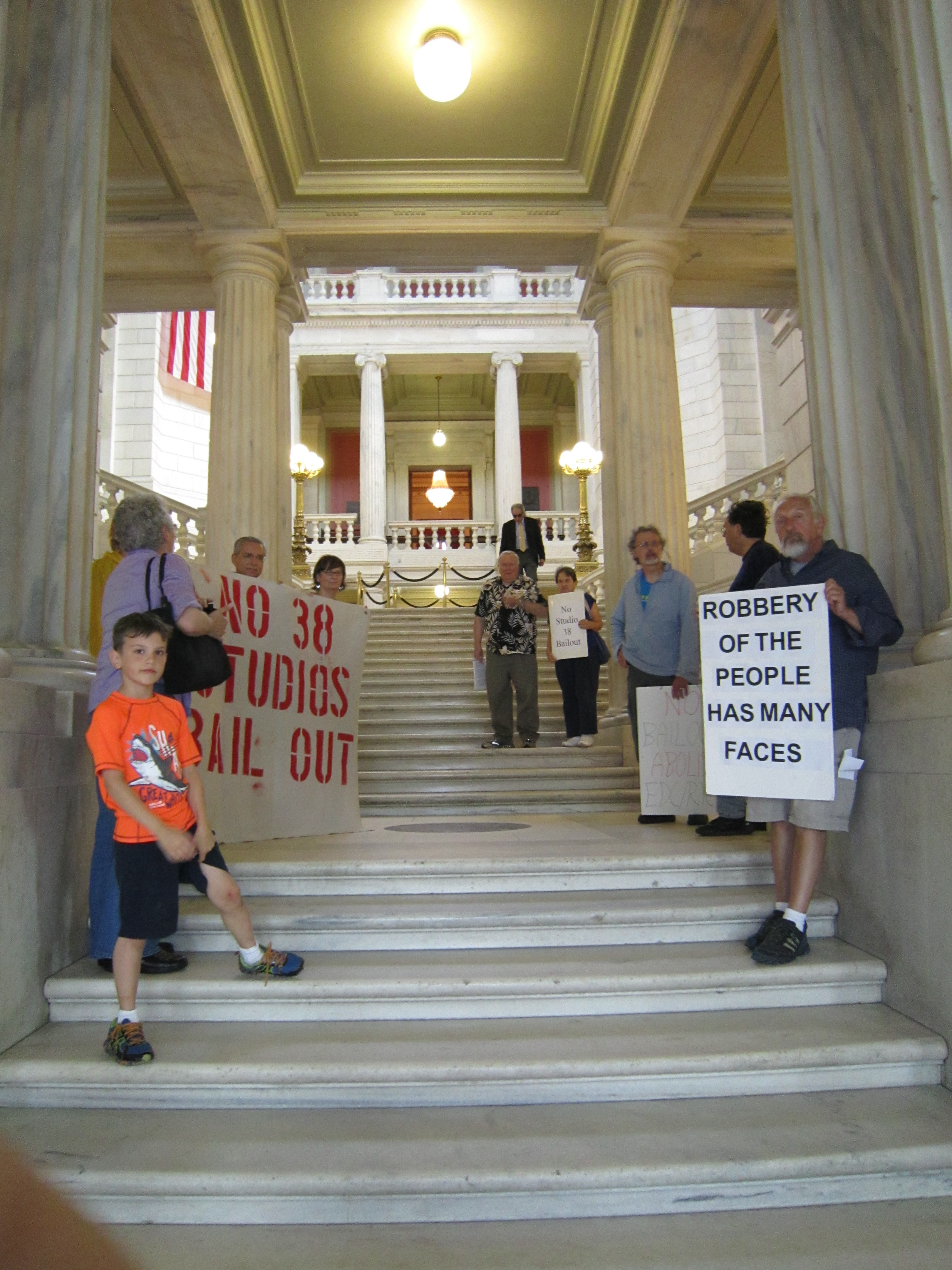
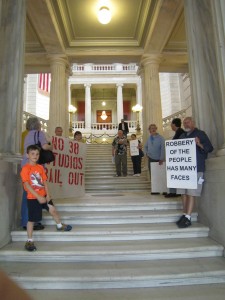


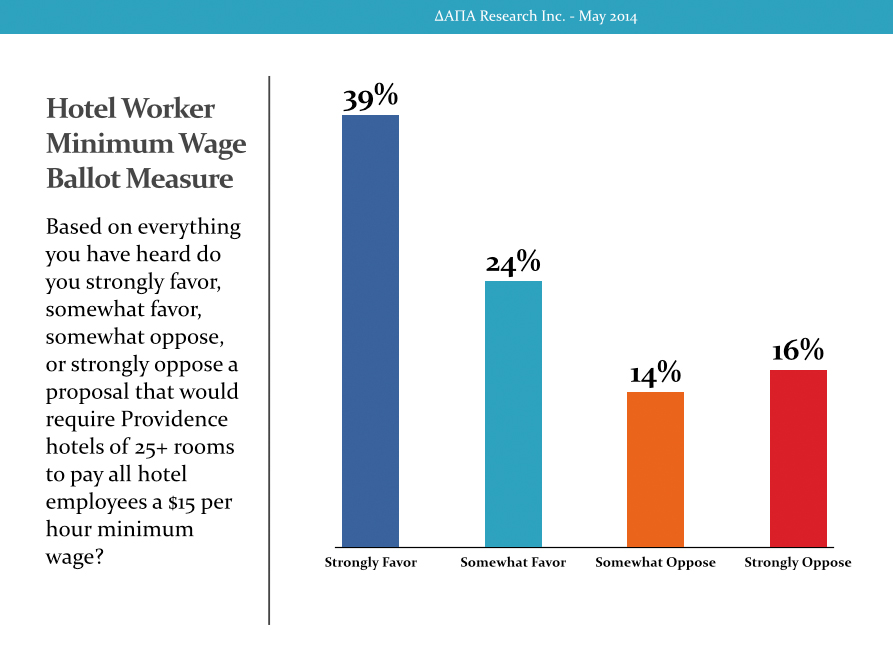
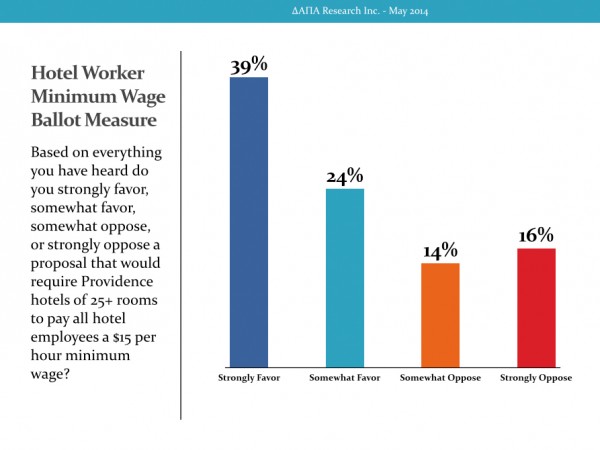
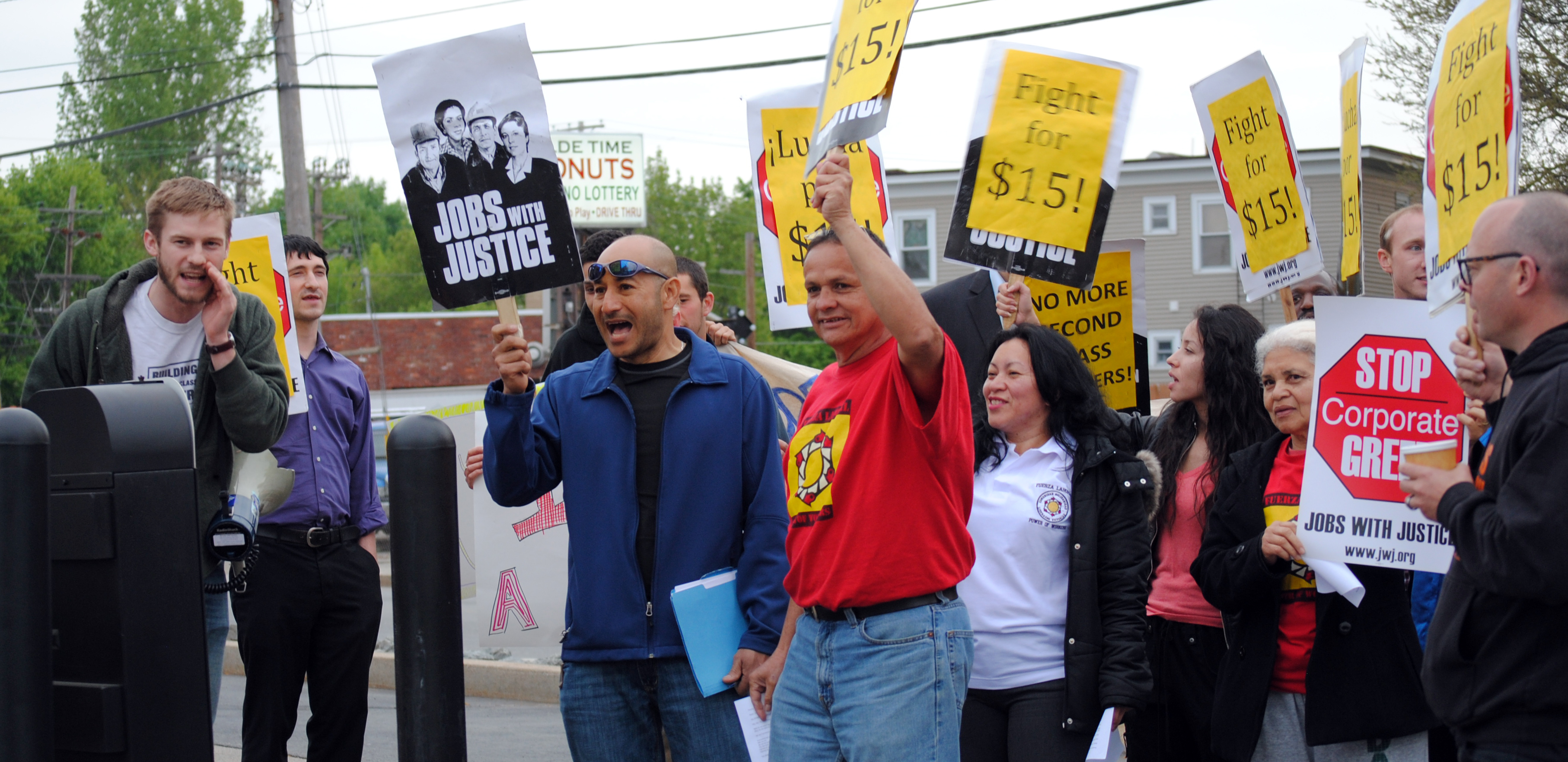
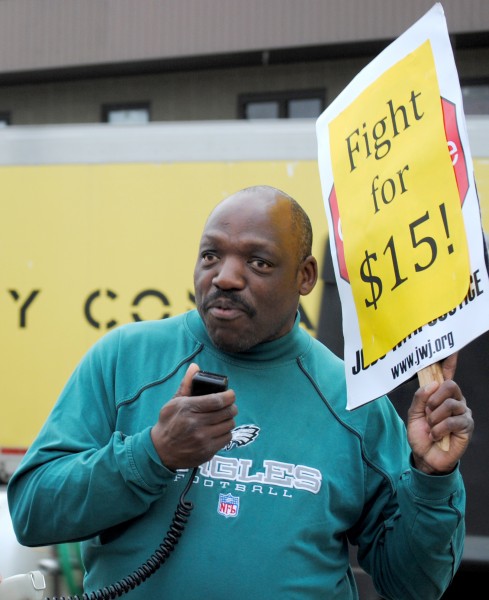
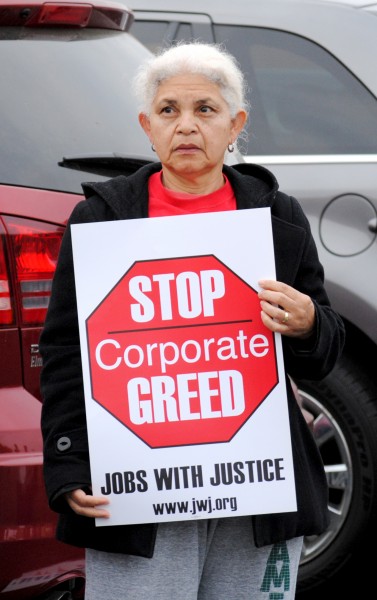
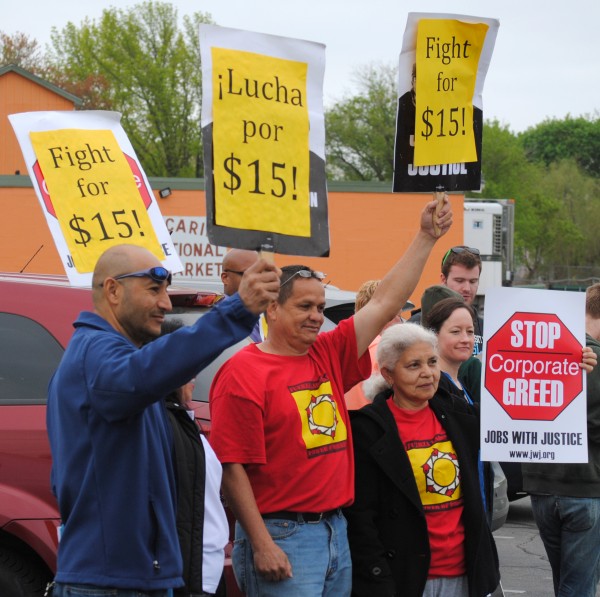
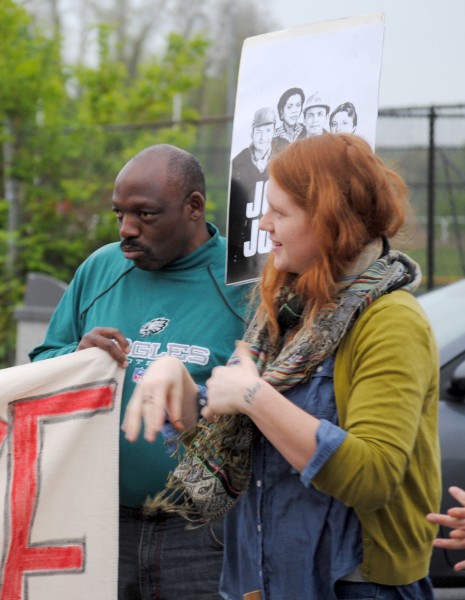

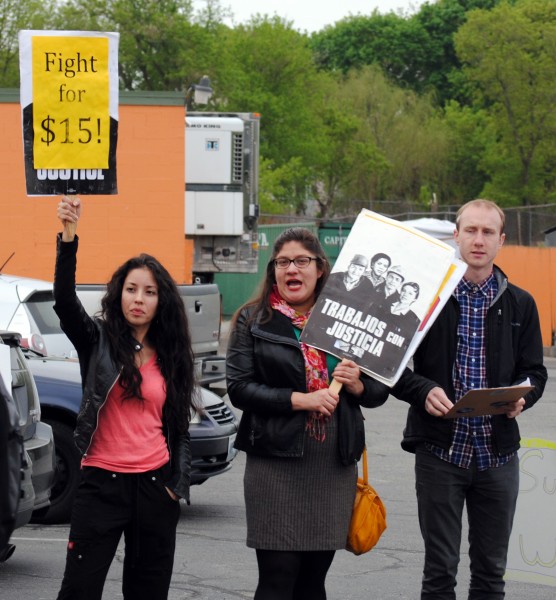
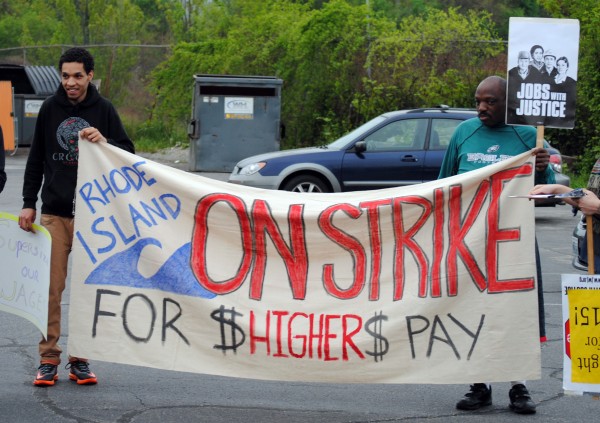
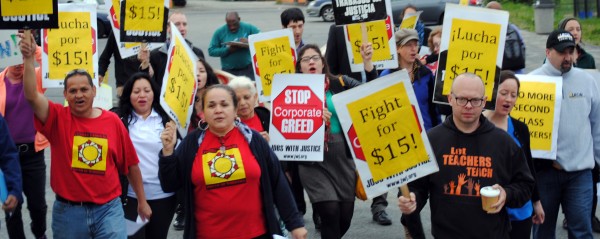
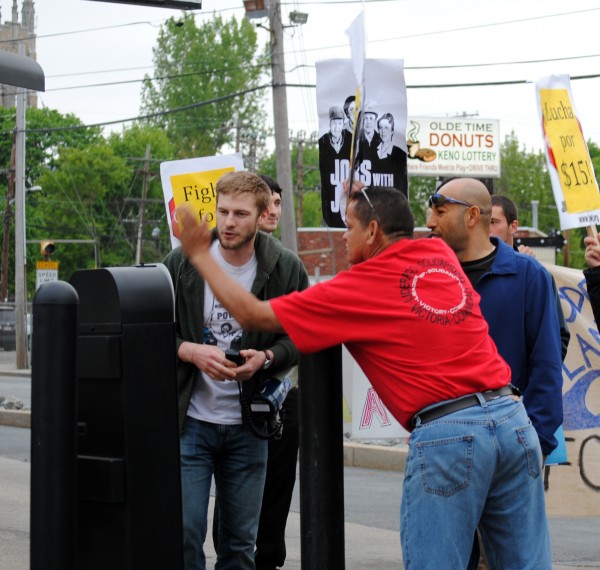
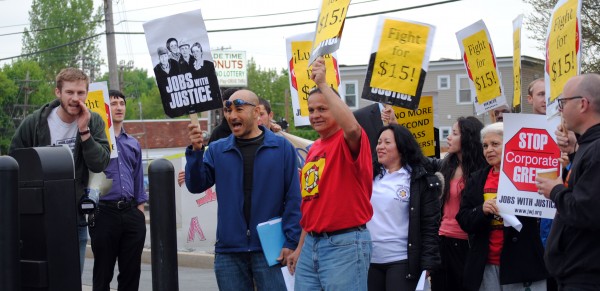
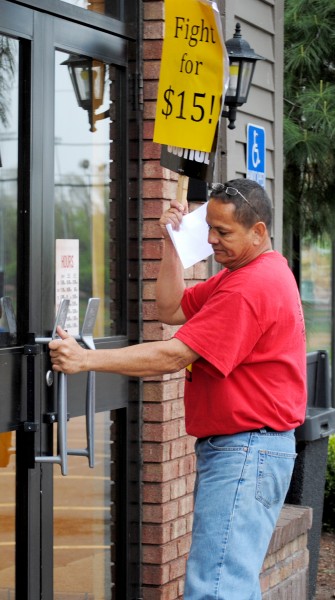
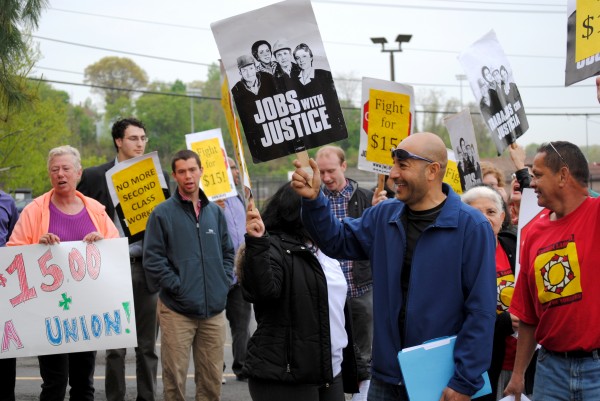
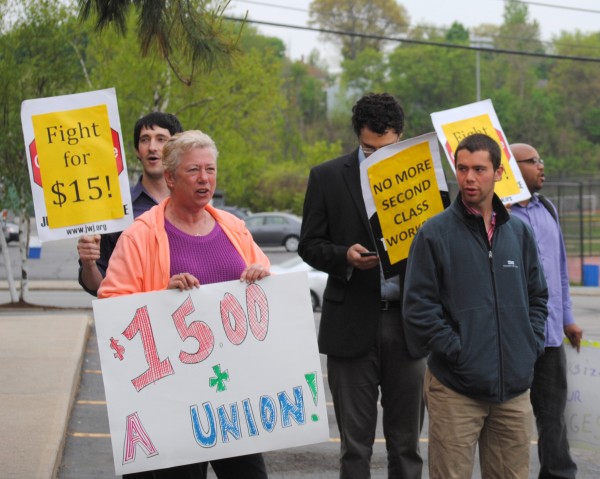
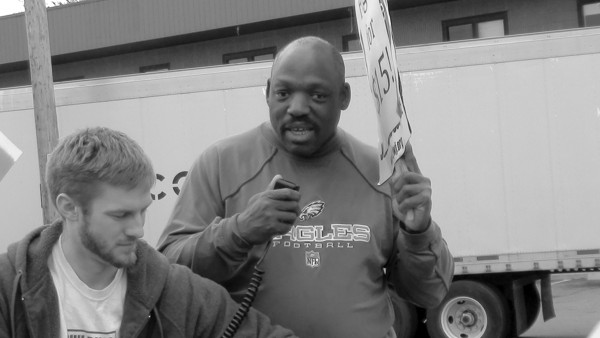

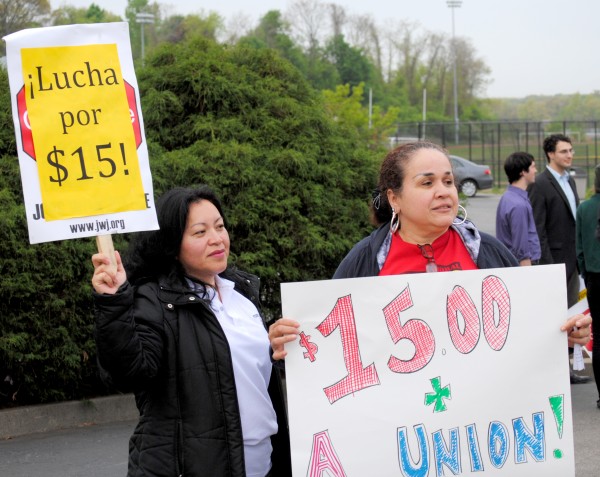
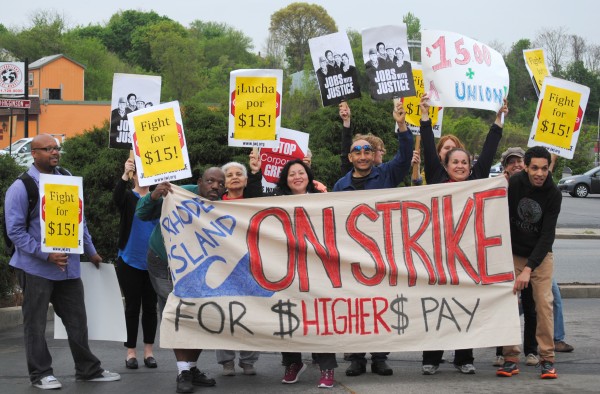

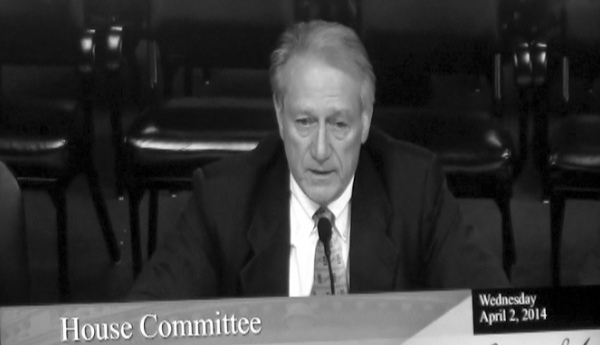
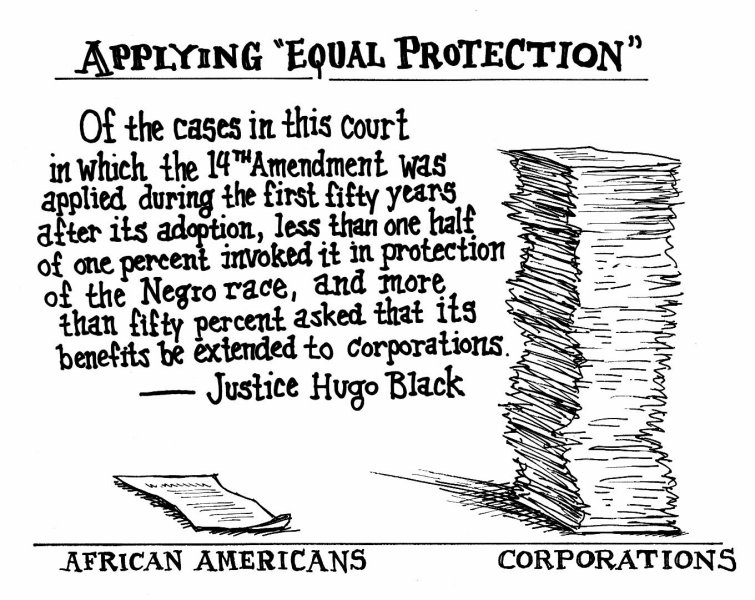
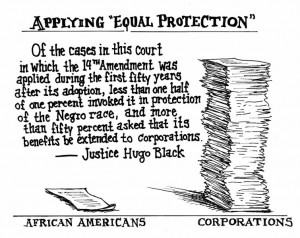

 Krystle Martin is the third leader of the unionization effort at the Hilton Providence to lose her job.
Krystle Martin is the third leader of the unionization effort at the Hilton Providence to lose her job.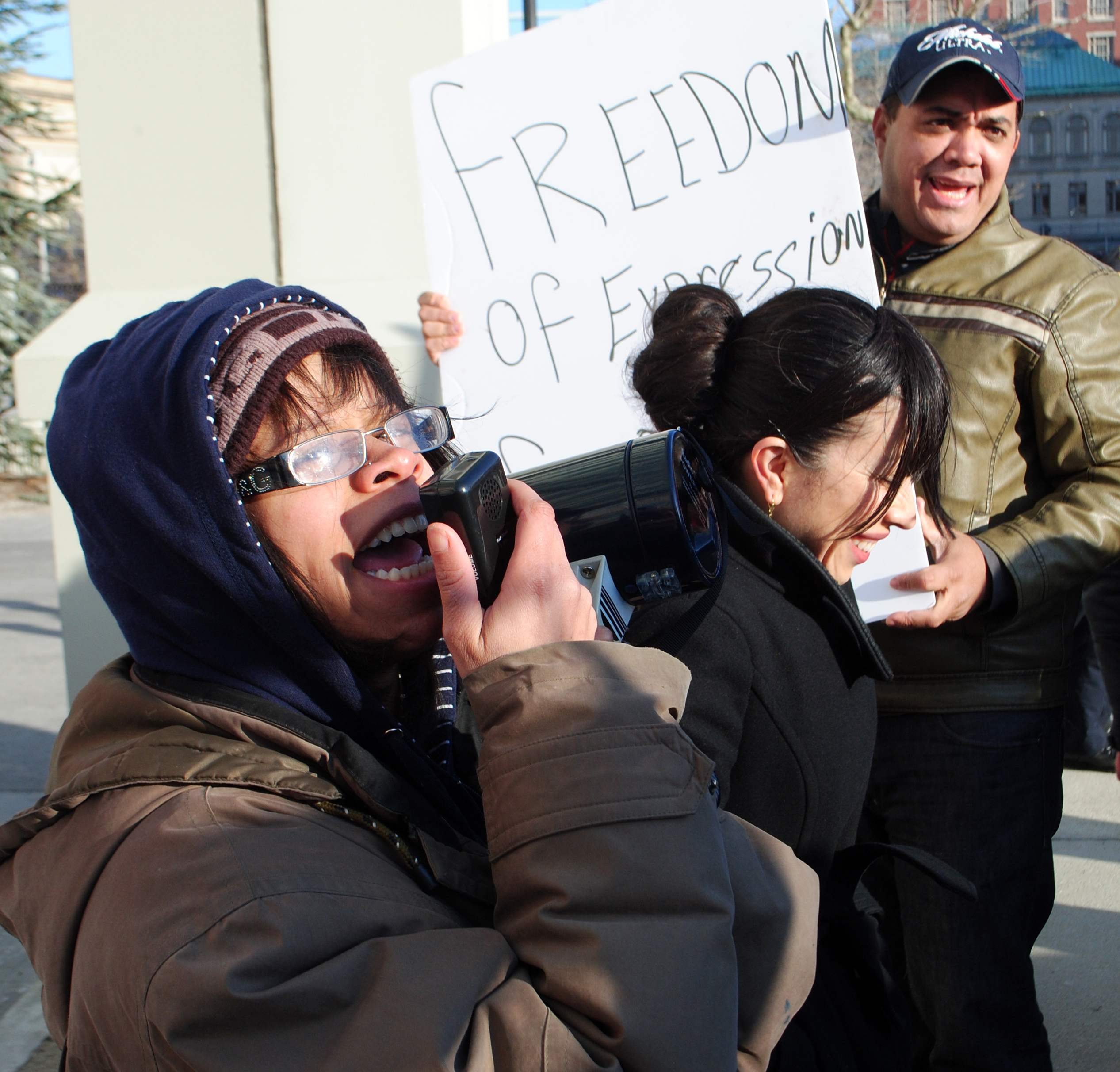
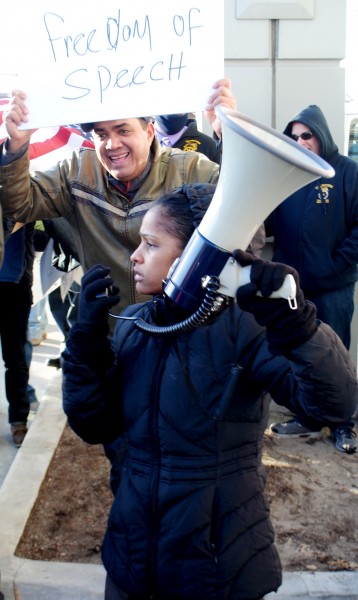 The first thing I noticed as I approached the Hilton Providence on Friday evening was the rented U-Haul truck parked conspicuously between the sidewalk where unionizing workers were staging their protest and the main entrance to the hotel.
The first thing I noticed as I approached the Hilton Providence on Friday evening was the rented U-Haul truck parked conspicuously between the sidewalk where unionizing workers were staging their protest and the main entrance to the hotel.
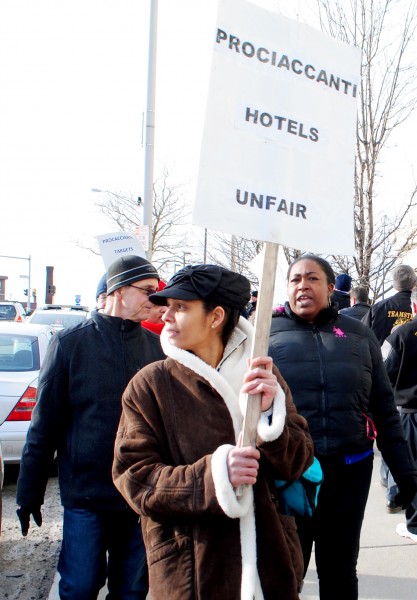
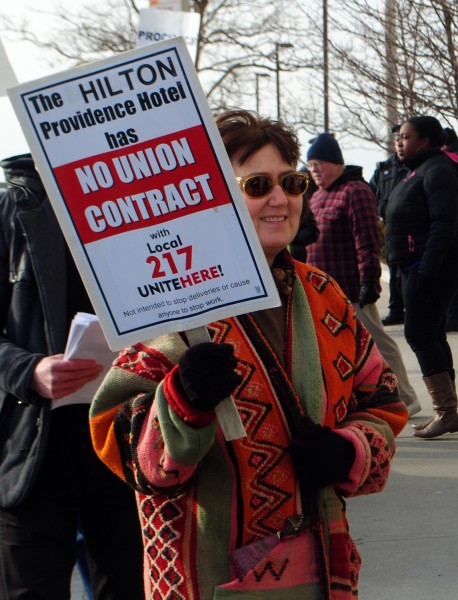
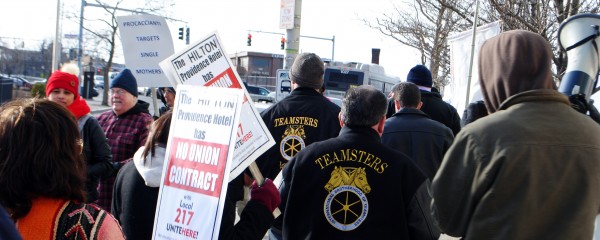
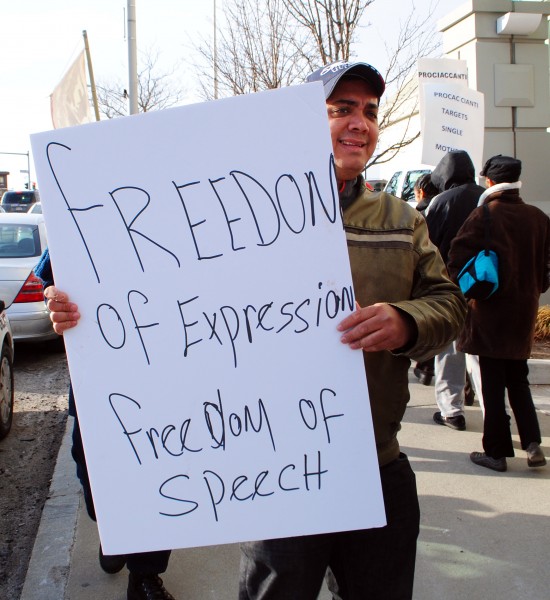
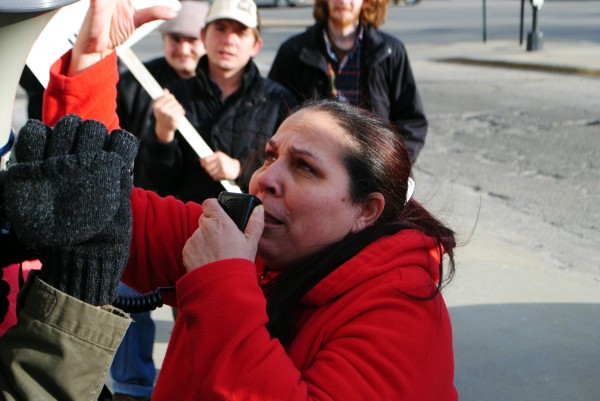
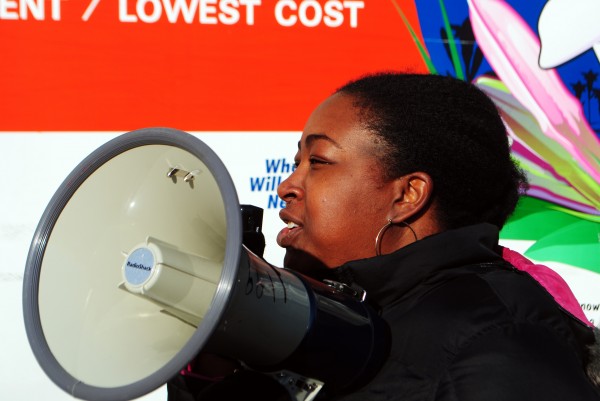
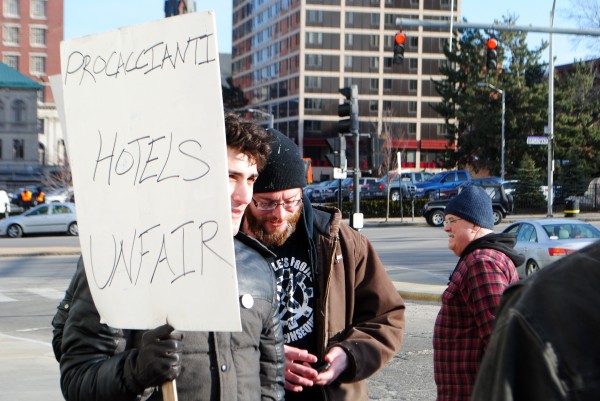
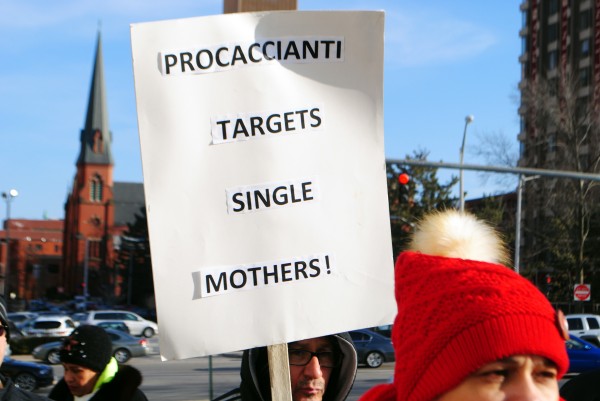
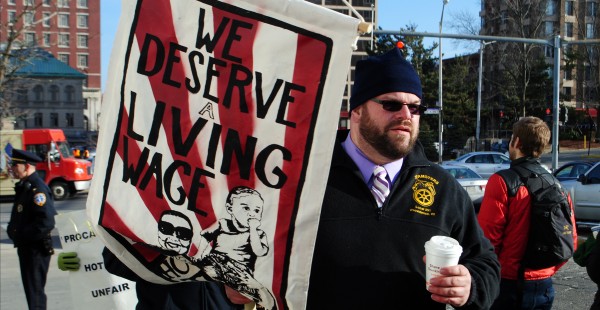
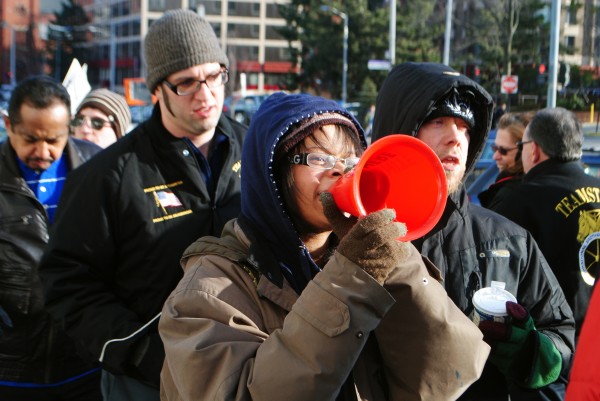
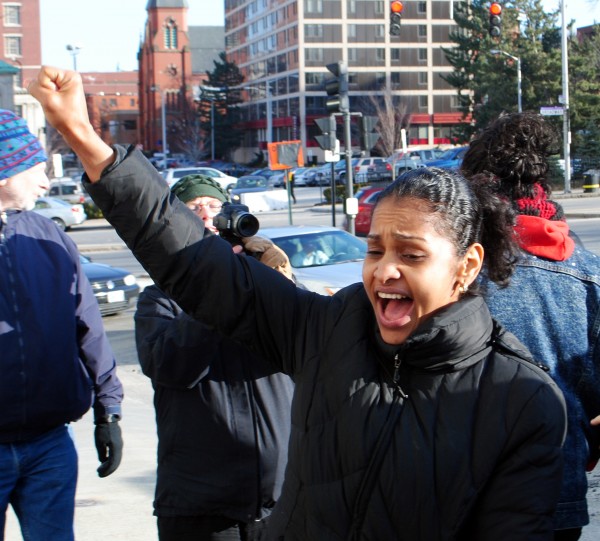
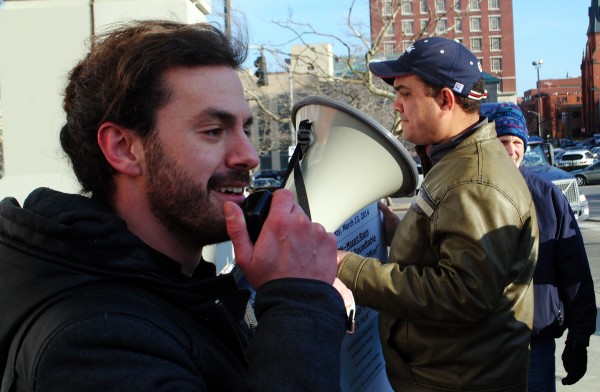
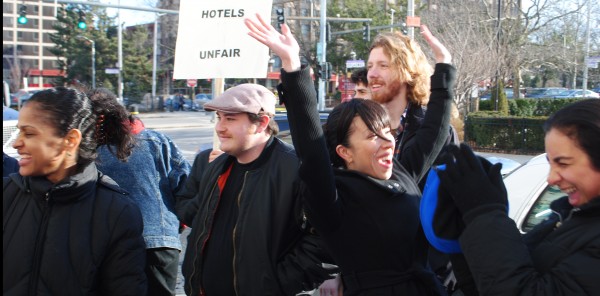
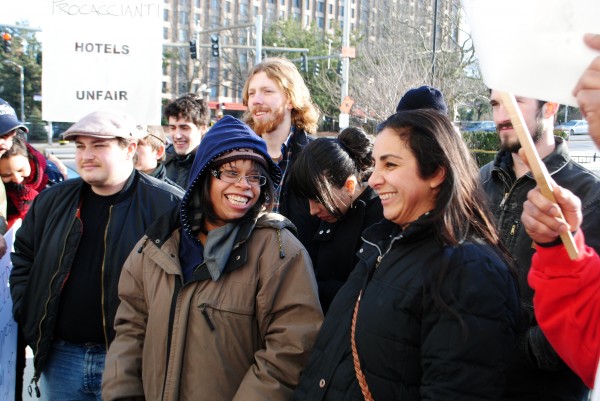
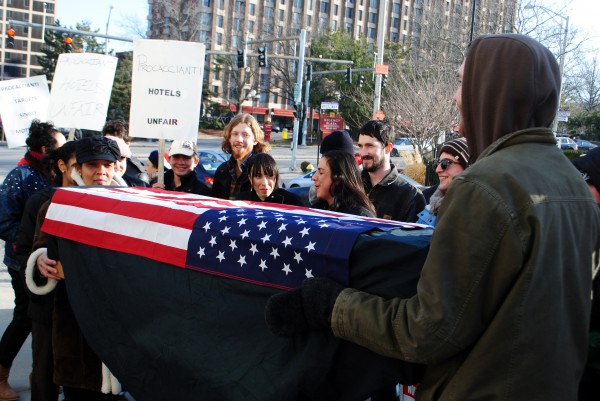
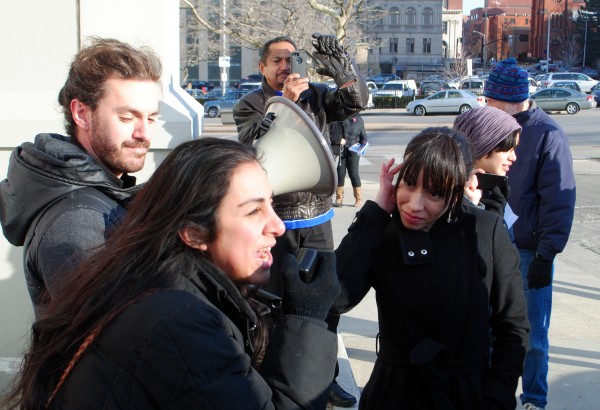
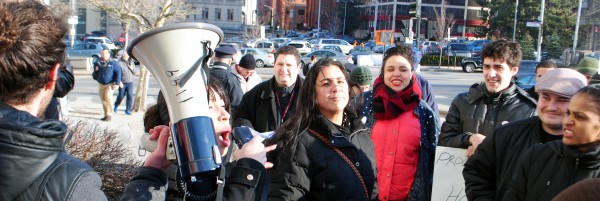
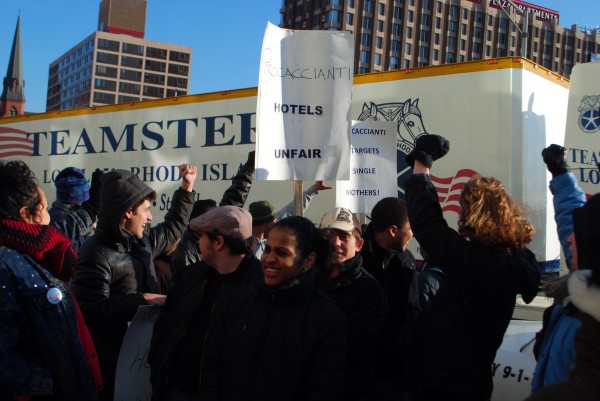
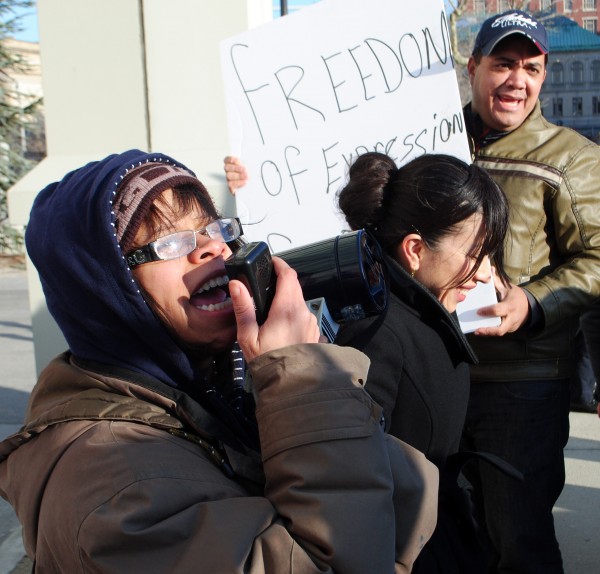
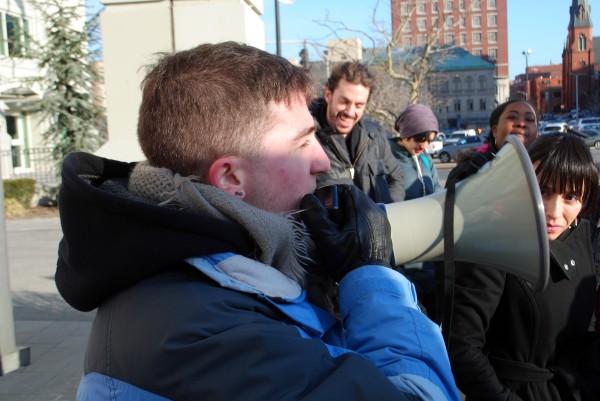
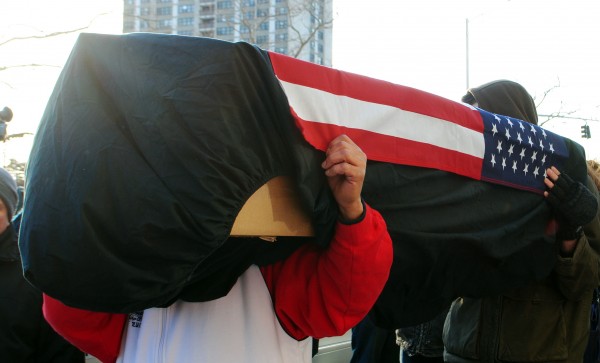

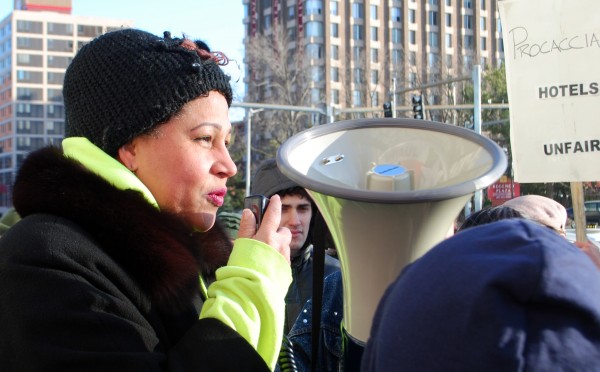
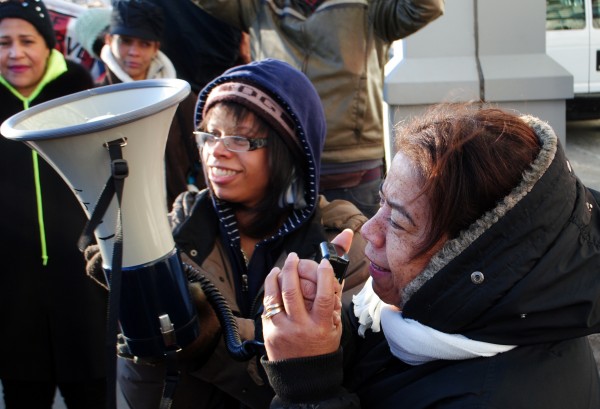
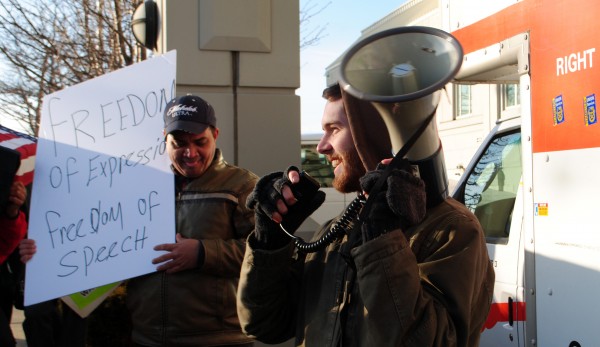
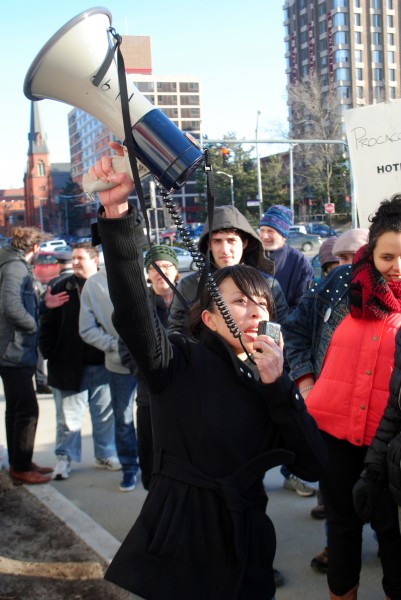
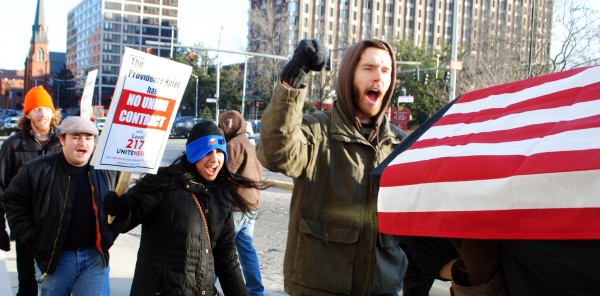

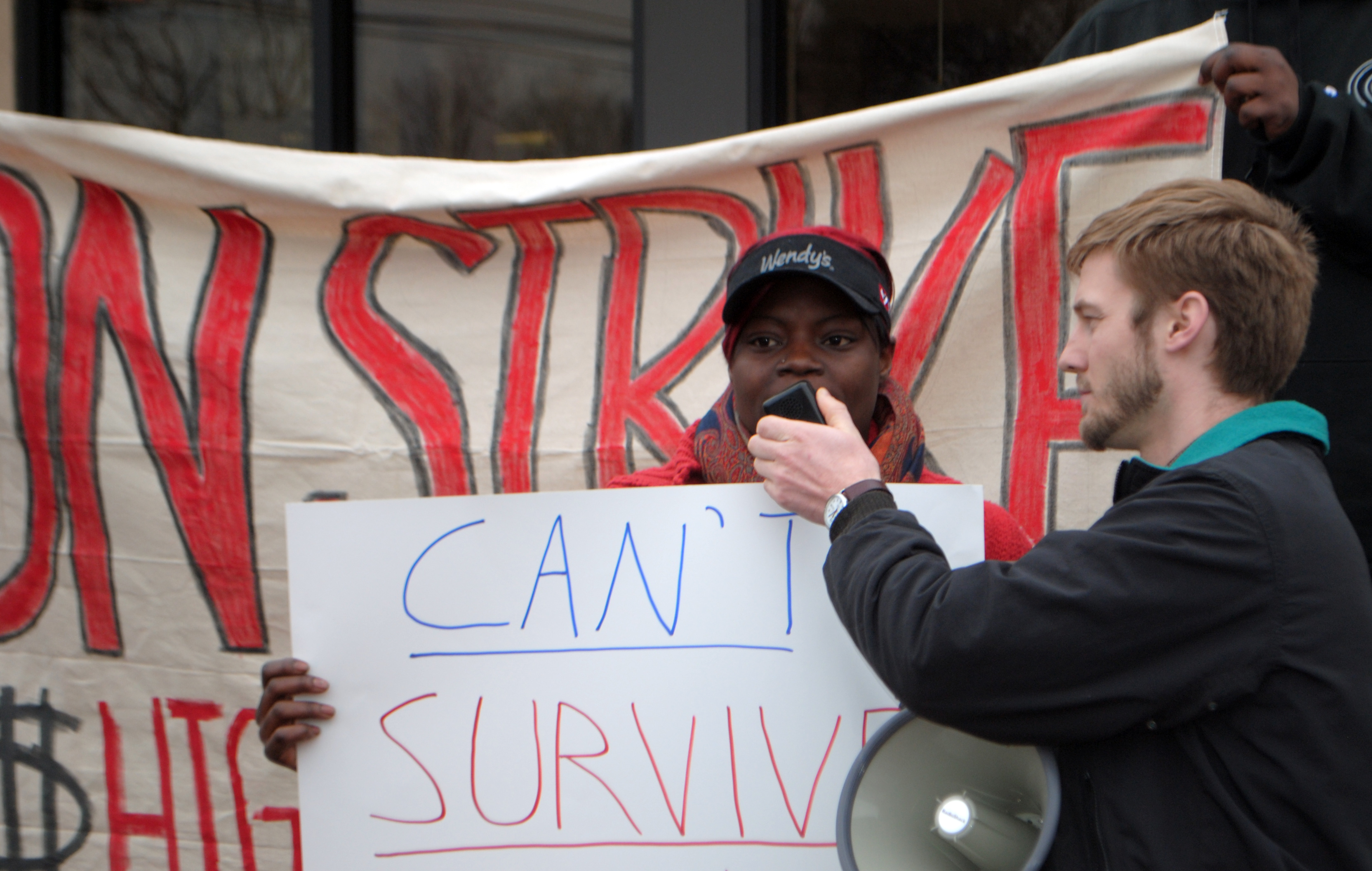
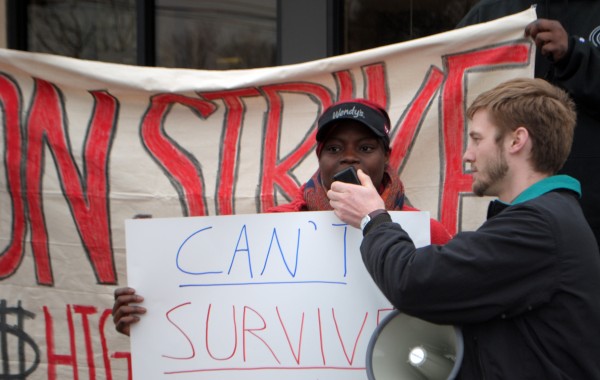 Arguments against raising the minimum wage are tedious, immoral and wrong.
Arguments against raising the minimum wage are tedious, immoral and wrong.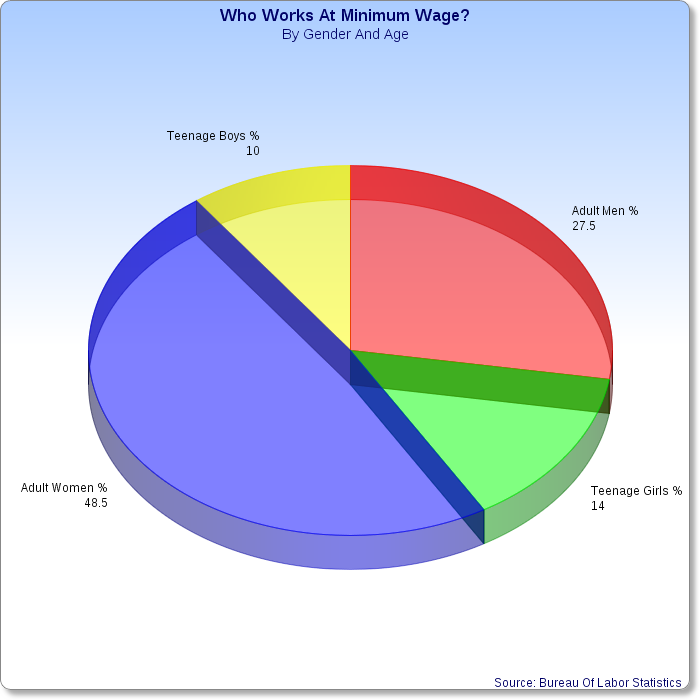
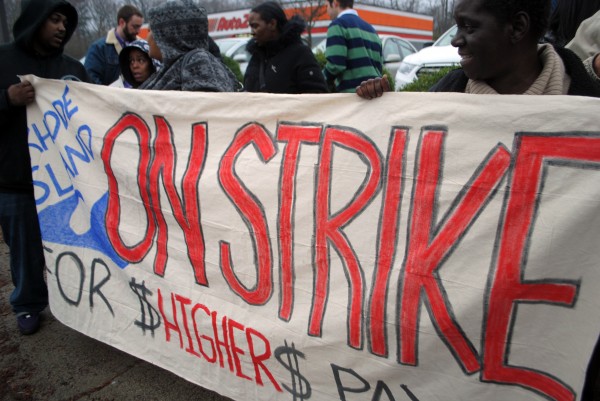 In response to Democratic gubernatorial candidate Angel Taveras supporting a minimum wage increase in Rhode Island from its current $8 to a kingly $10.10, both Republican candidates,
In response to Democratic gubernatorial candidate Angel Taveras supporting a minimum wage increase in Rhode Island from its current $8 to a kingly $10.10, both Republican candidates, 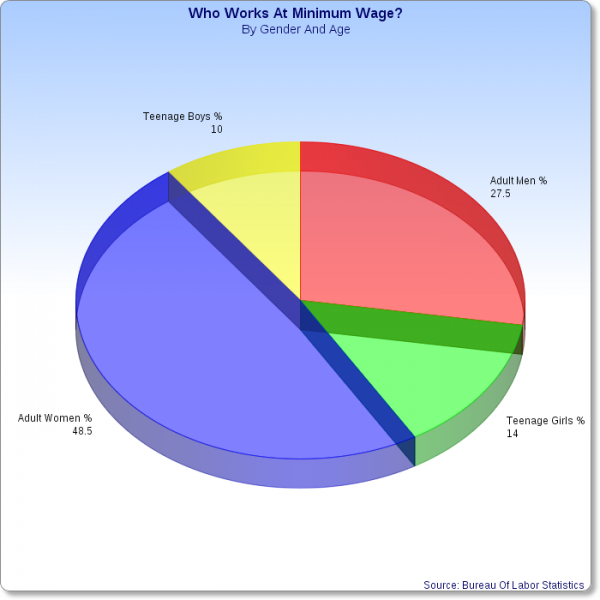
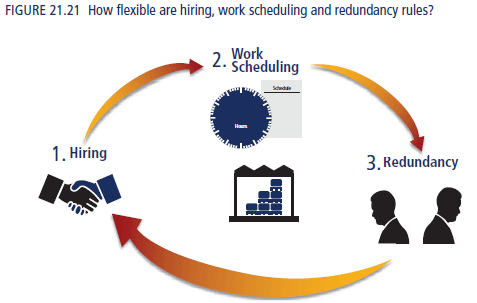
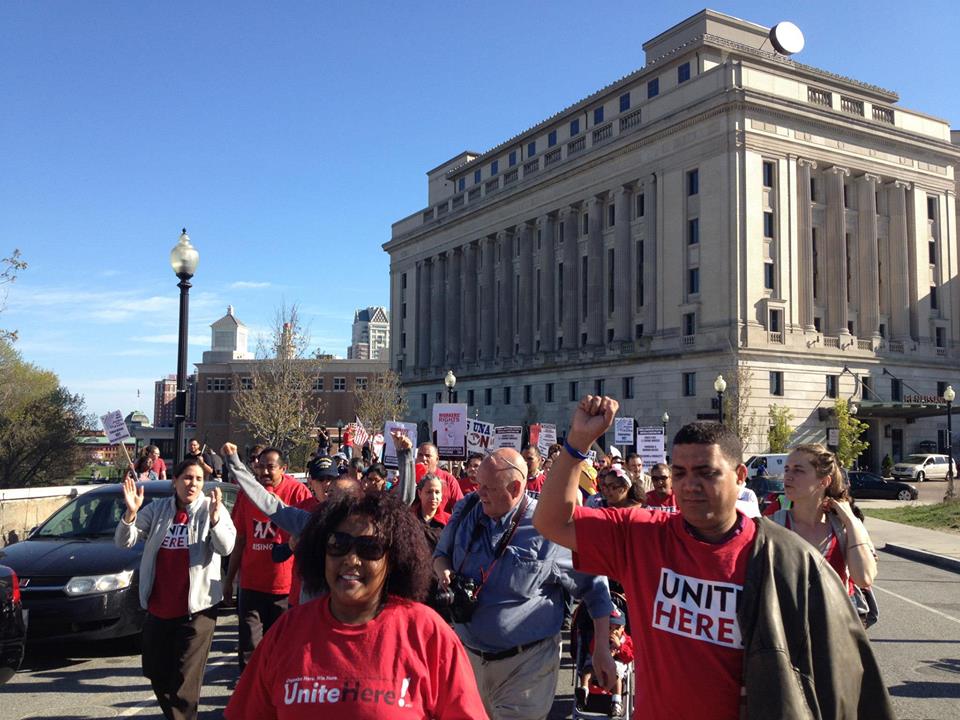
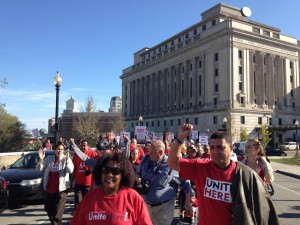 Regional Director Jonathan B. Kreisberg of the National Labor Relations Board (NLRB) out of Boston “issued a Government complaint and notice of hearing against the Renaissance Providence Downtown Hotel and TPG Hospitality, Inc., The Procaccianti Group’s hotel management affiliate. The NLRB Complaint charges the Hotel with multiple unfair labor practices deterring workers from organizing to improve their low wage, low benefit jobs,”
Regional Director Jonathan B. Kreisberg of the National Labor Relations Board (NLRB) out of Boston “issued a Government complaint and notice of hearing against the Renaissance Providence Downtown Hotel and TPG Hospitality, Inc., The Procaccianti Group’s hotel management affiliate. The NLRB Complaint charges the Hotel with multiple unfair labor practices deterring workers from organizing to improve their low wage, low benefit jobs,”